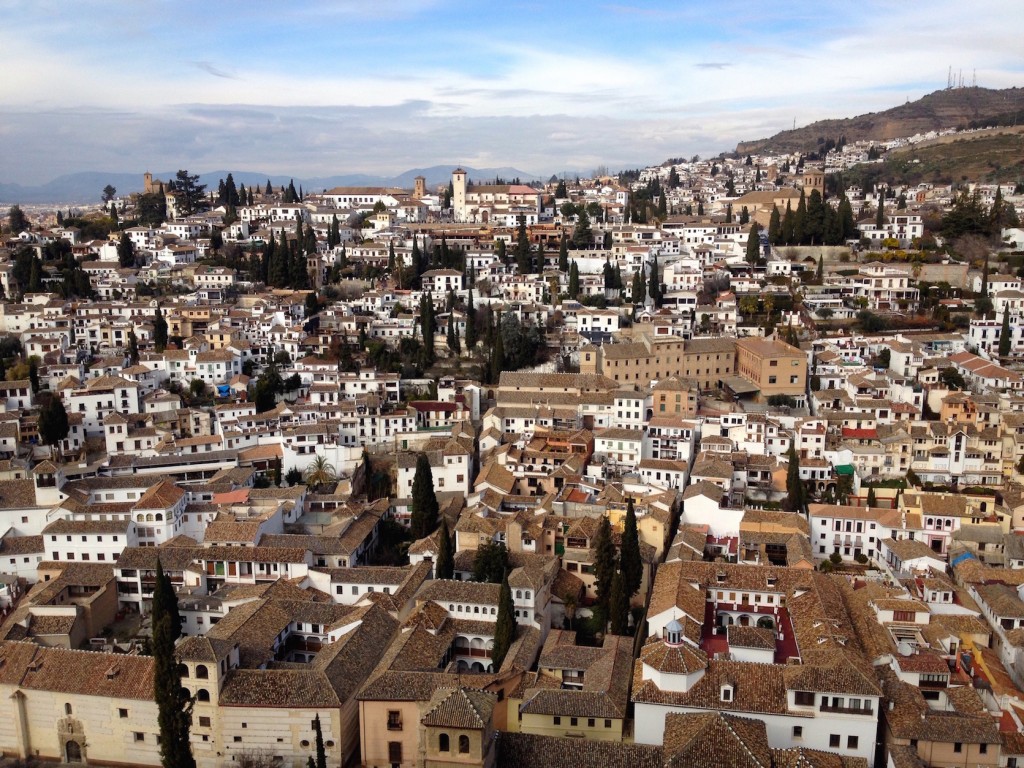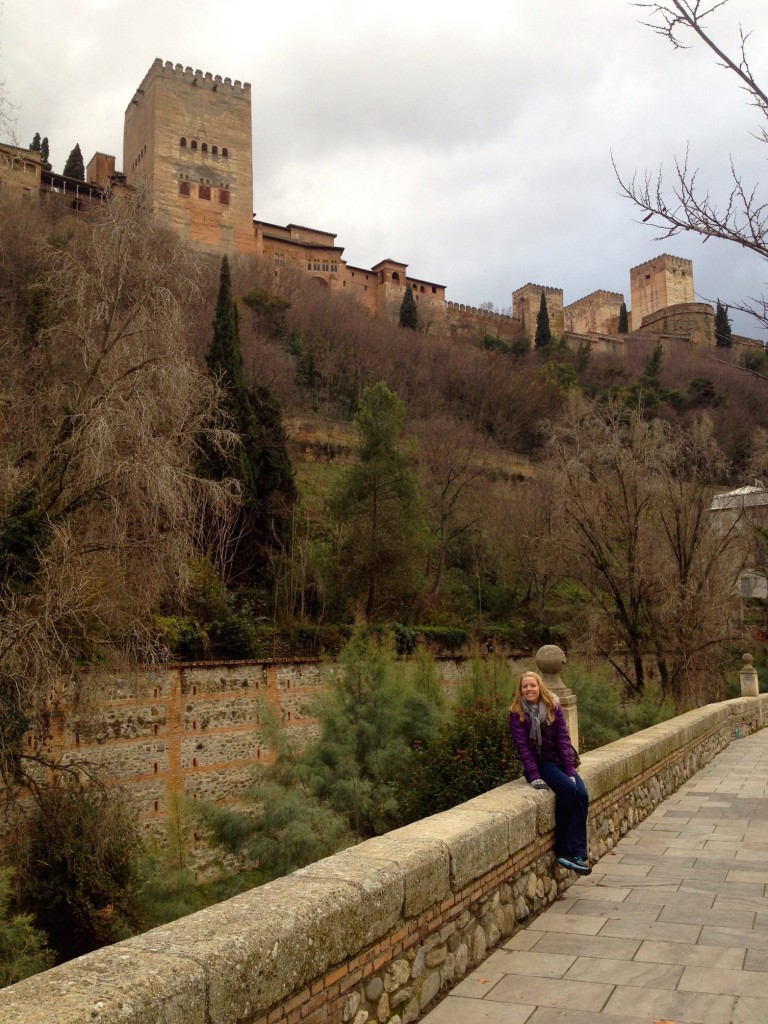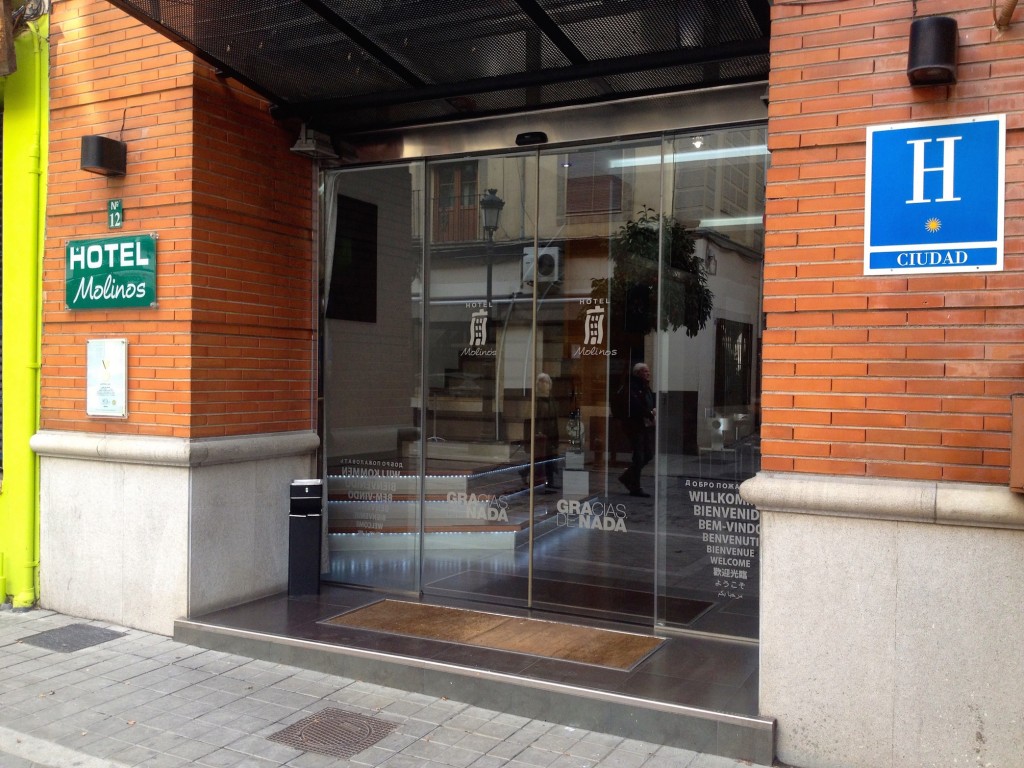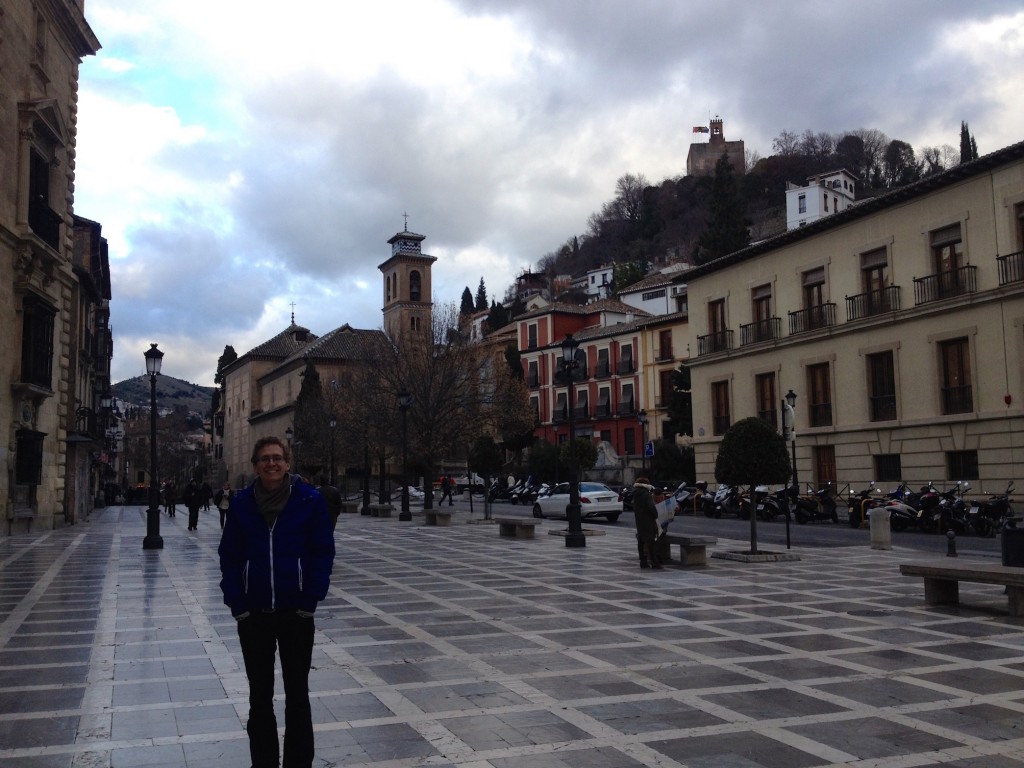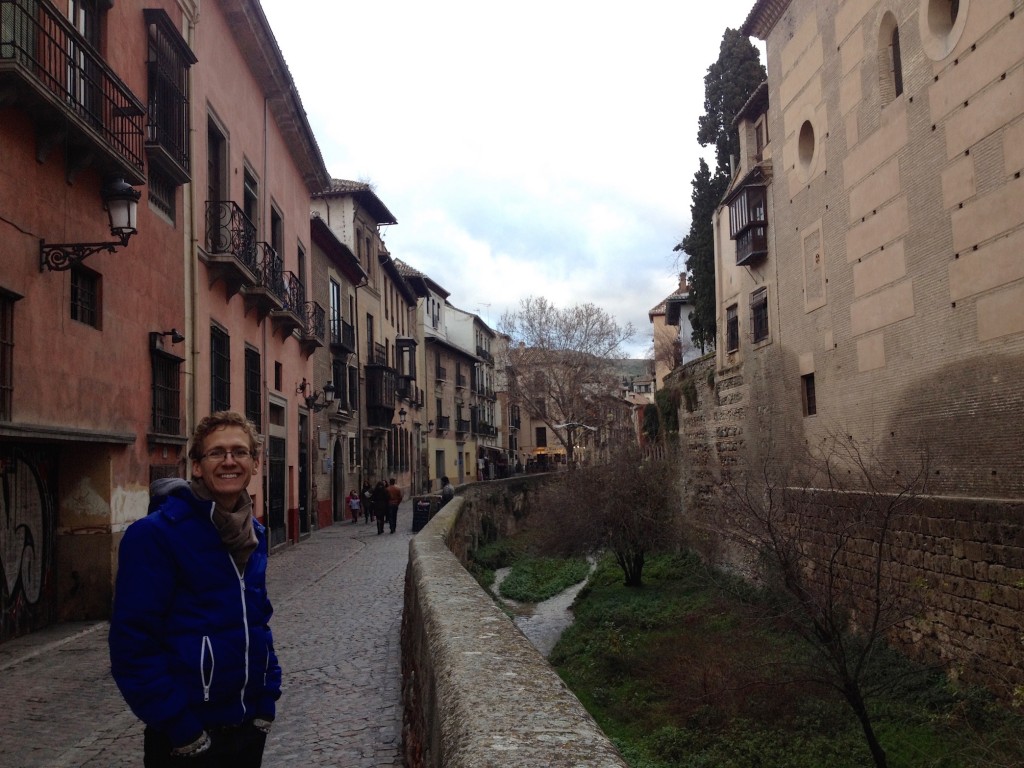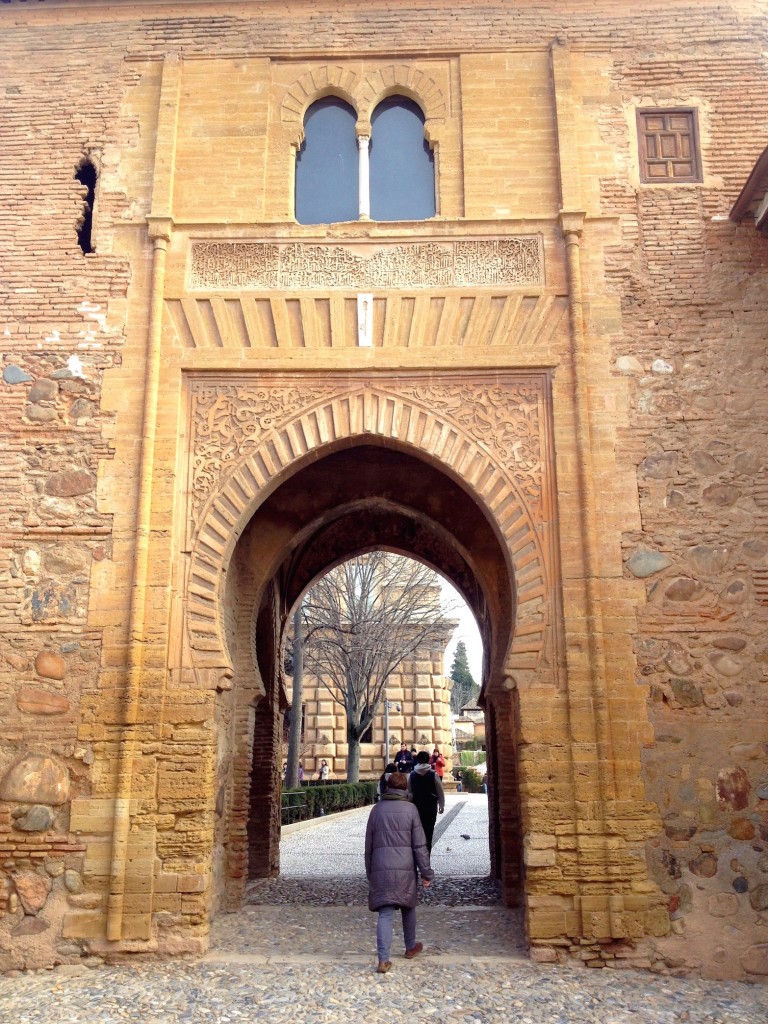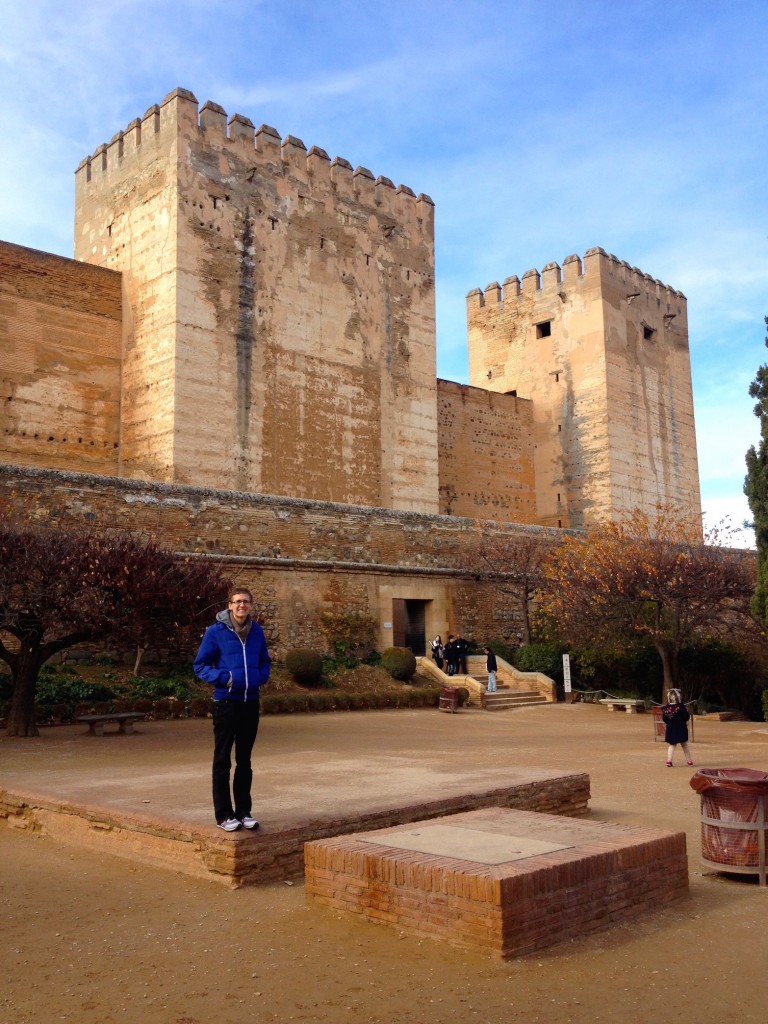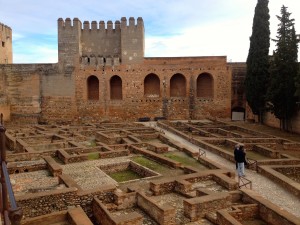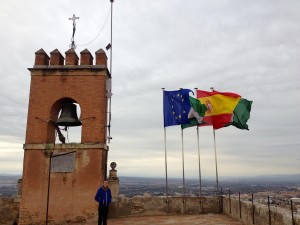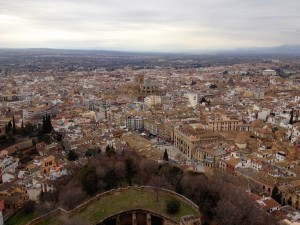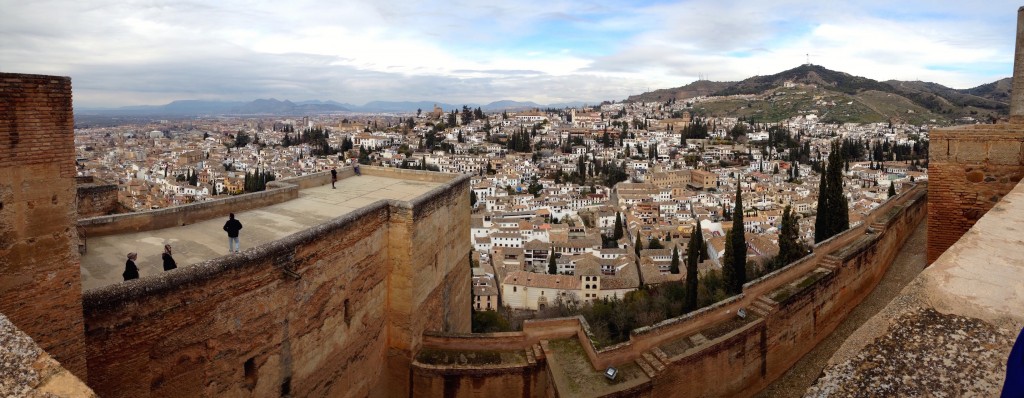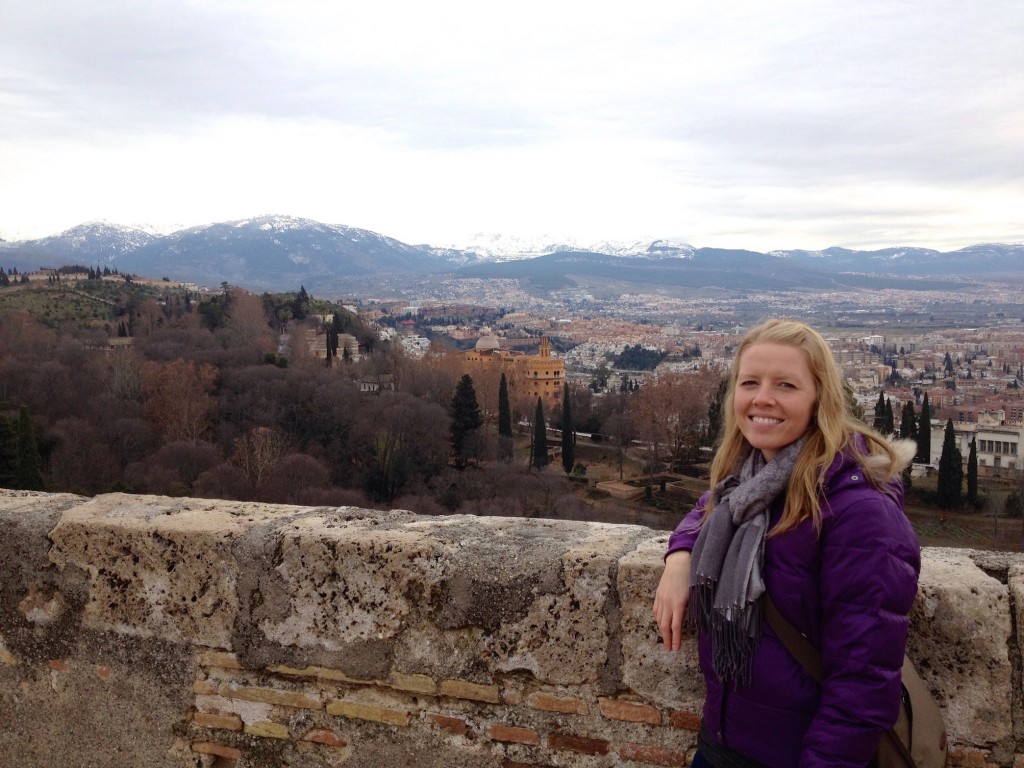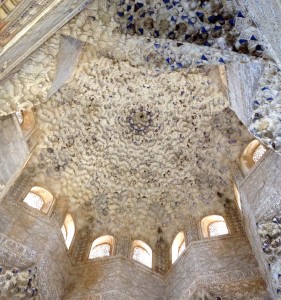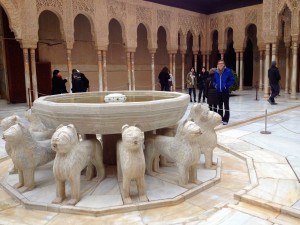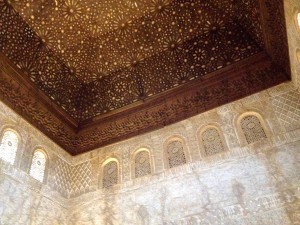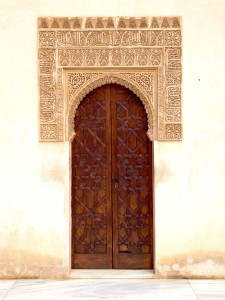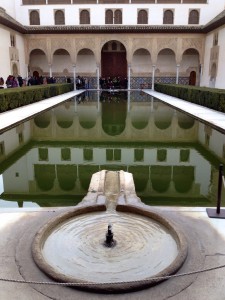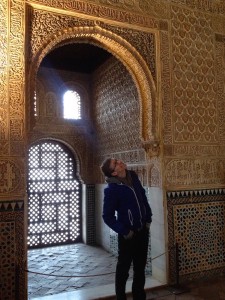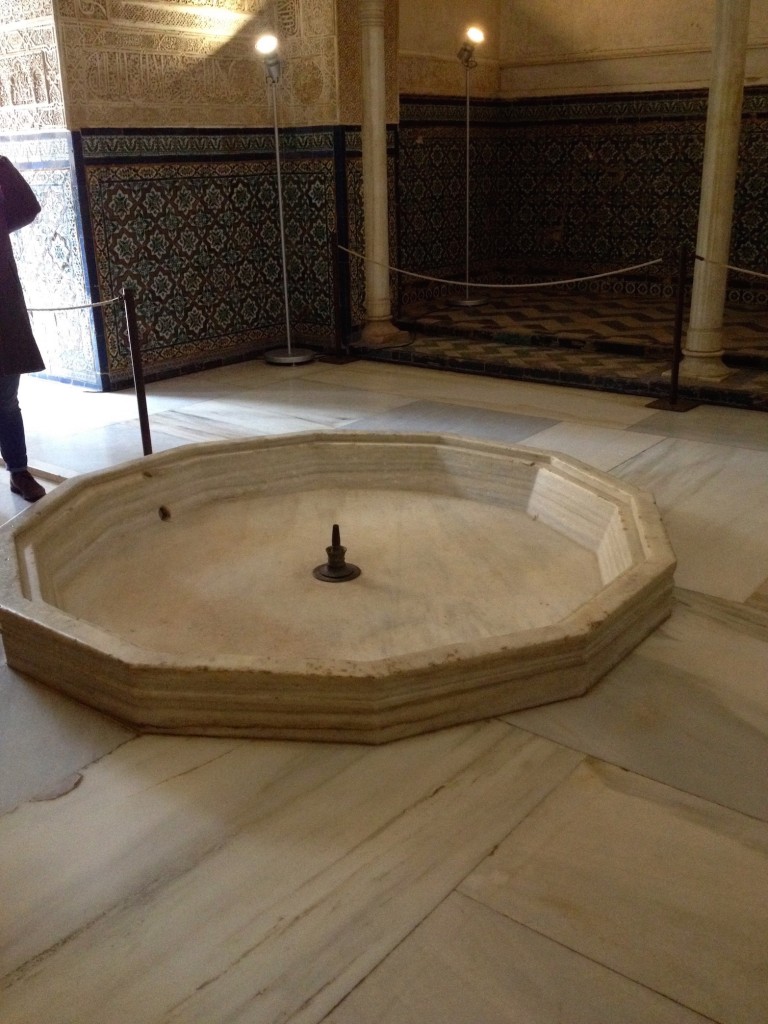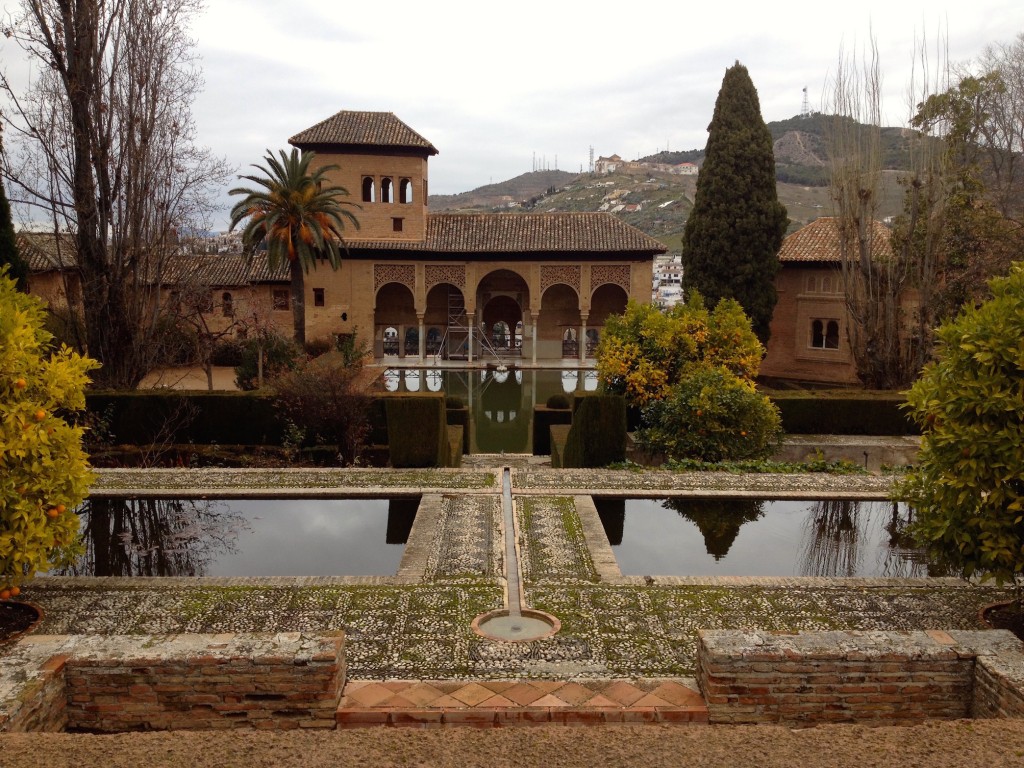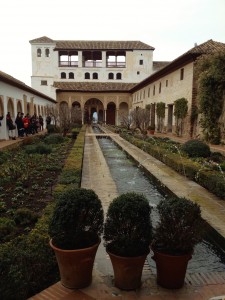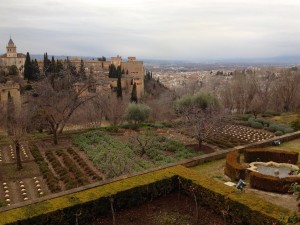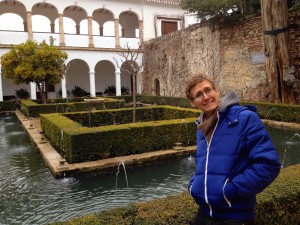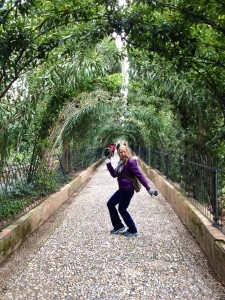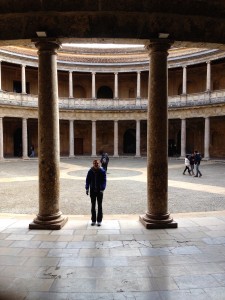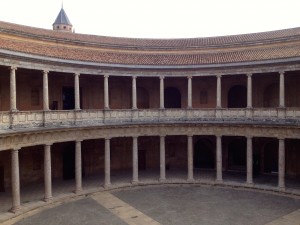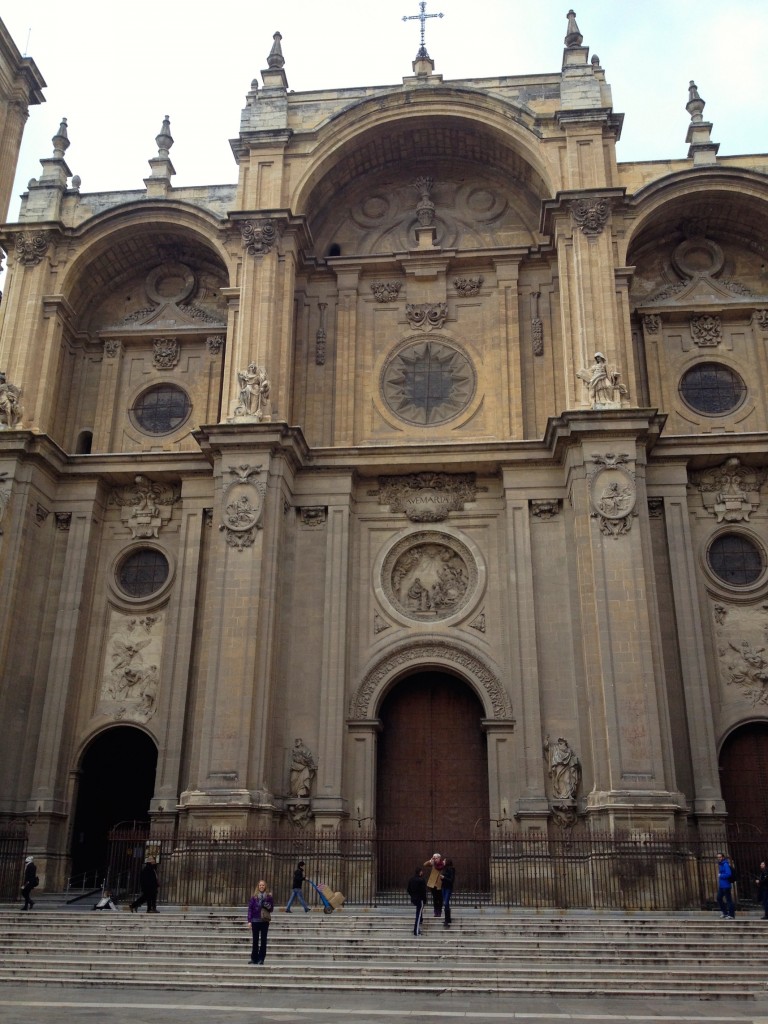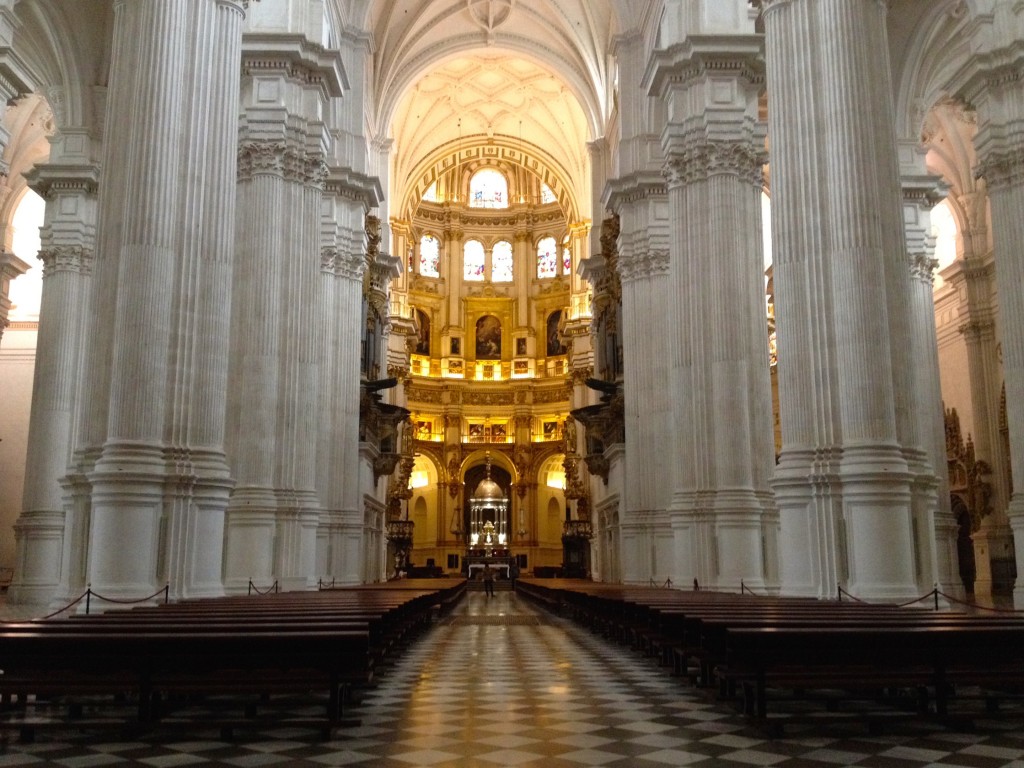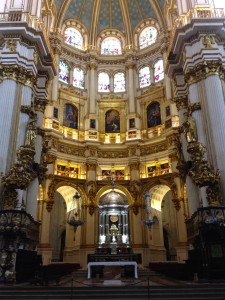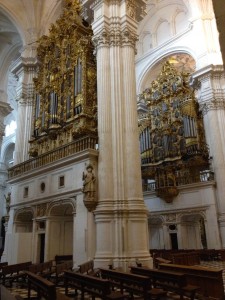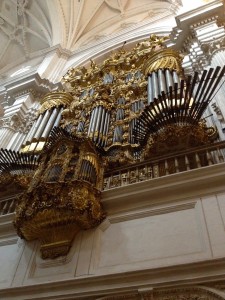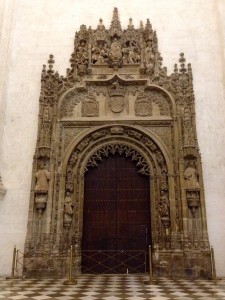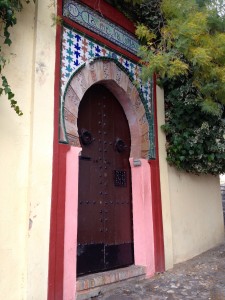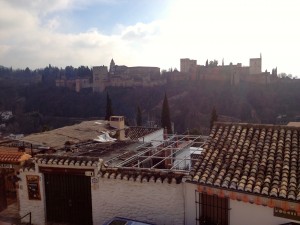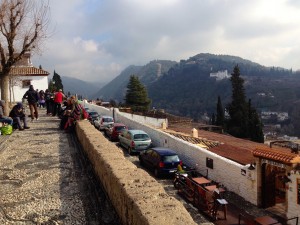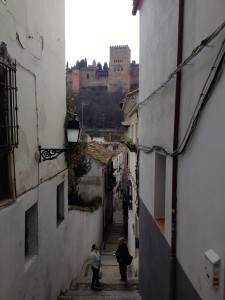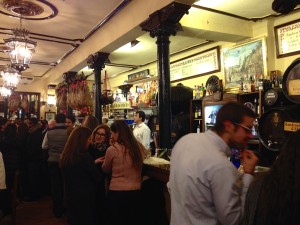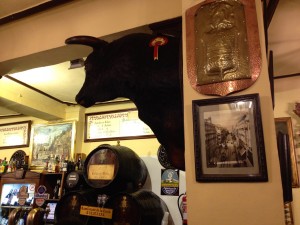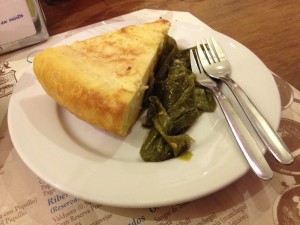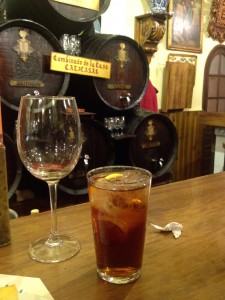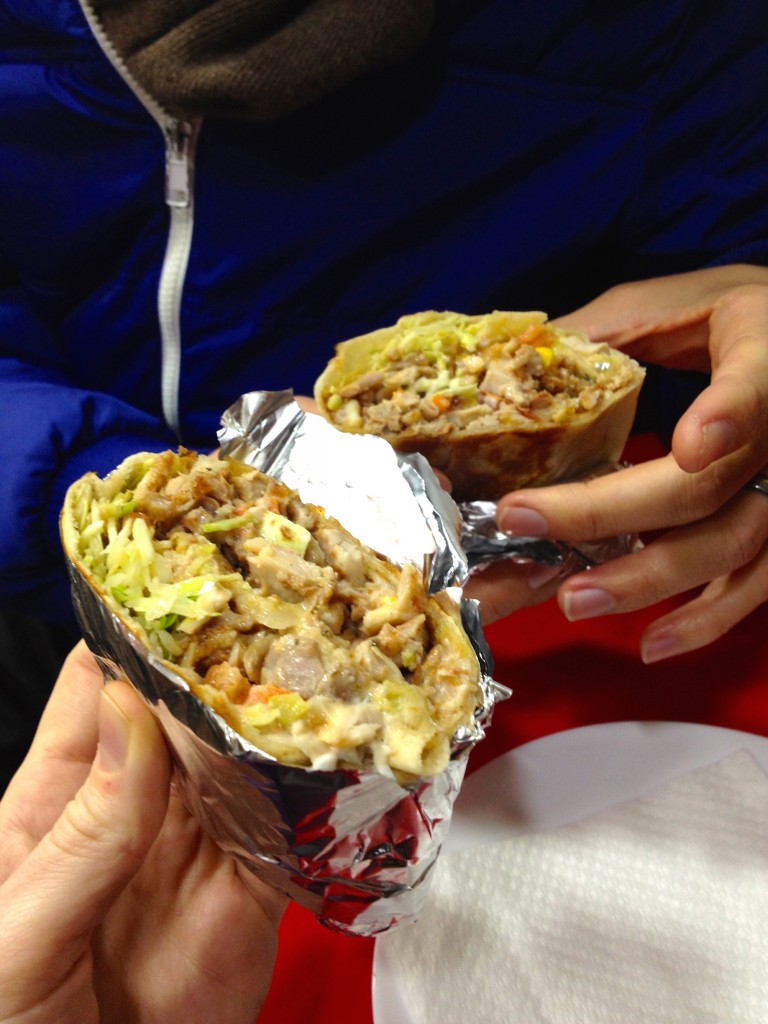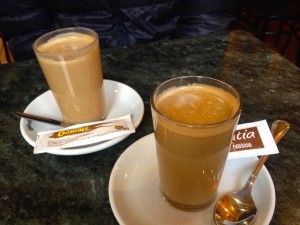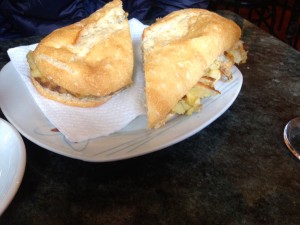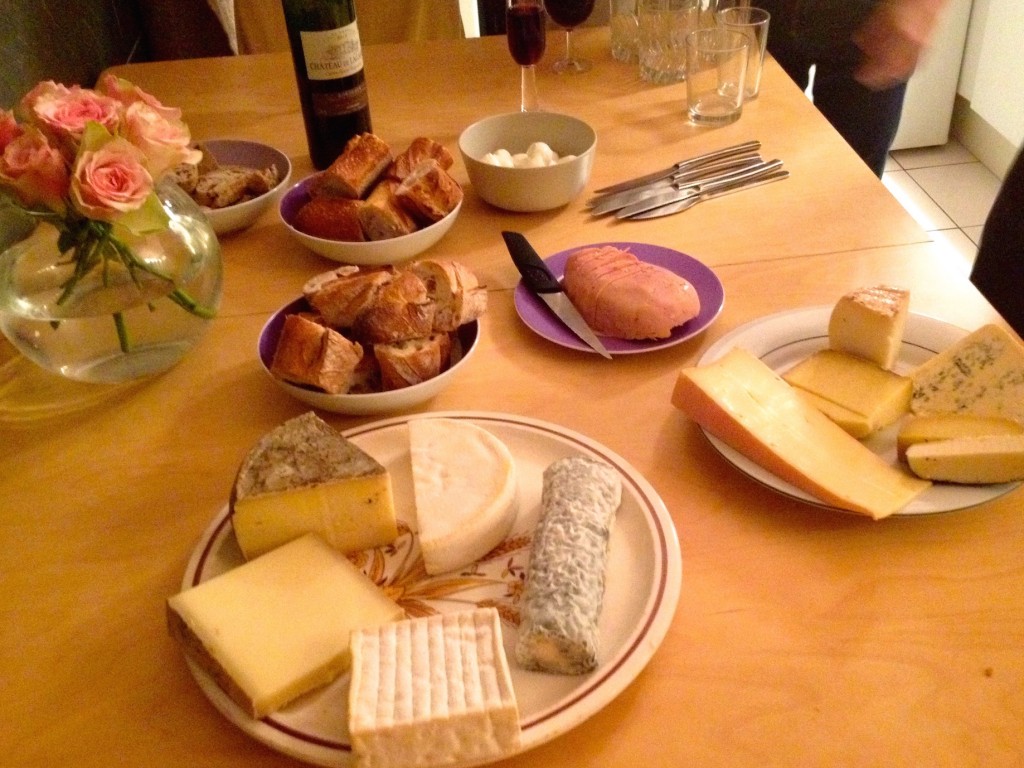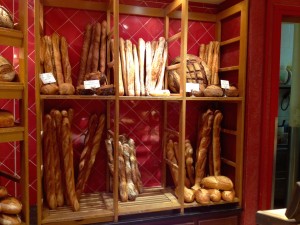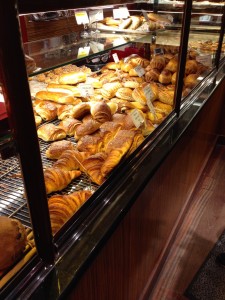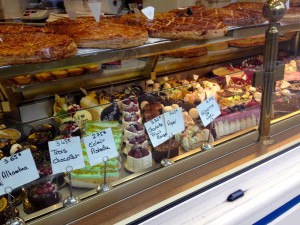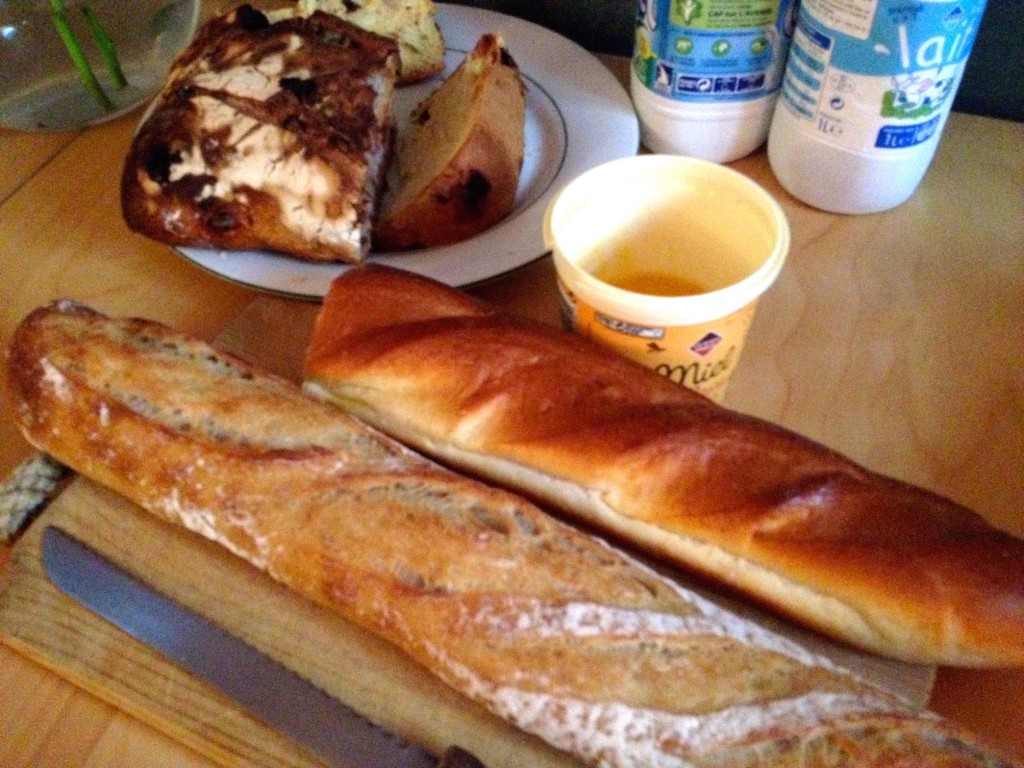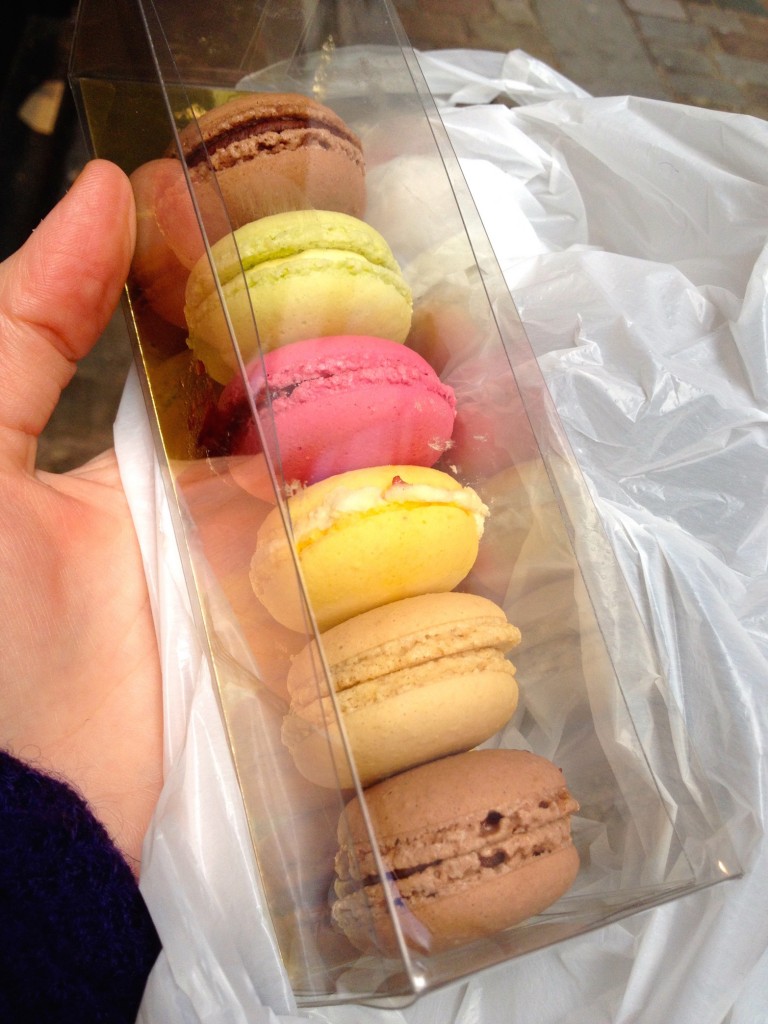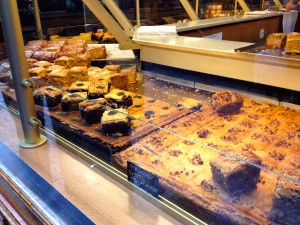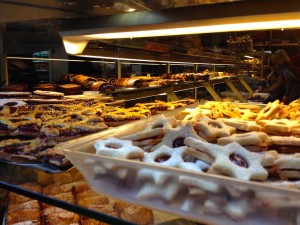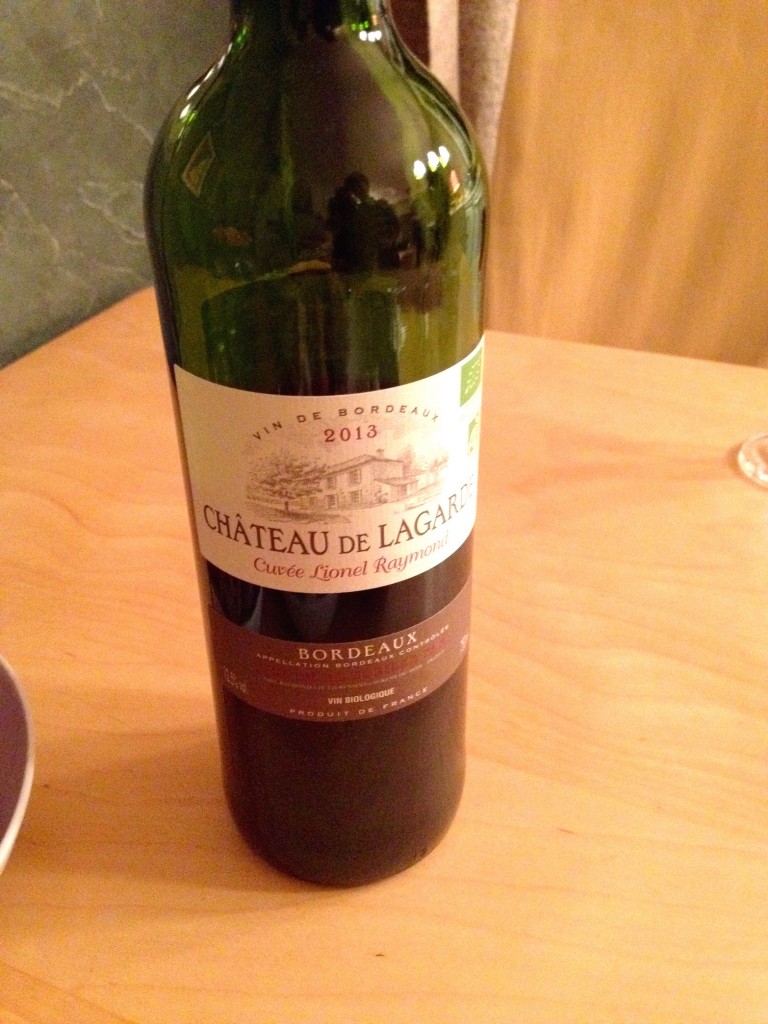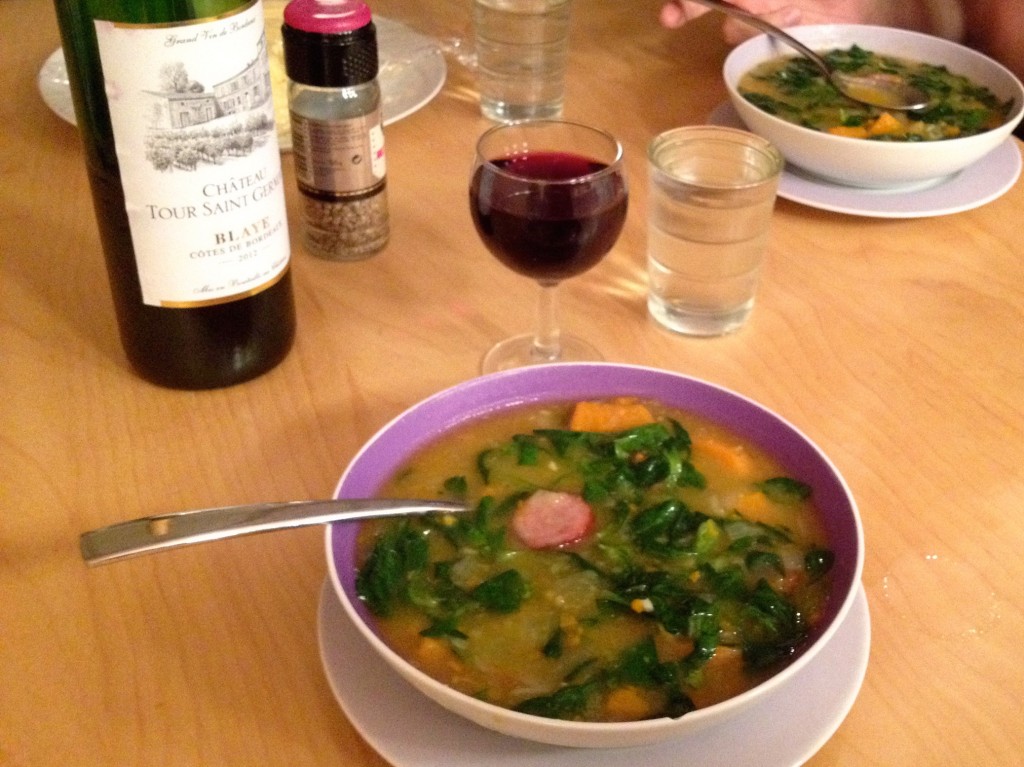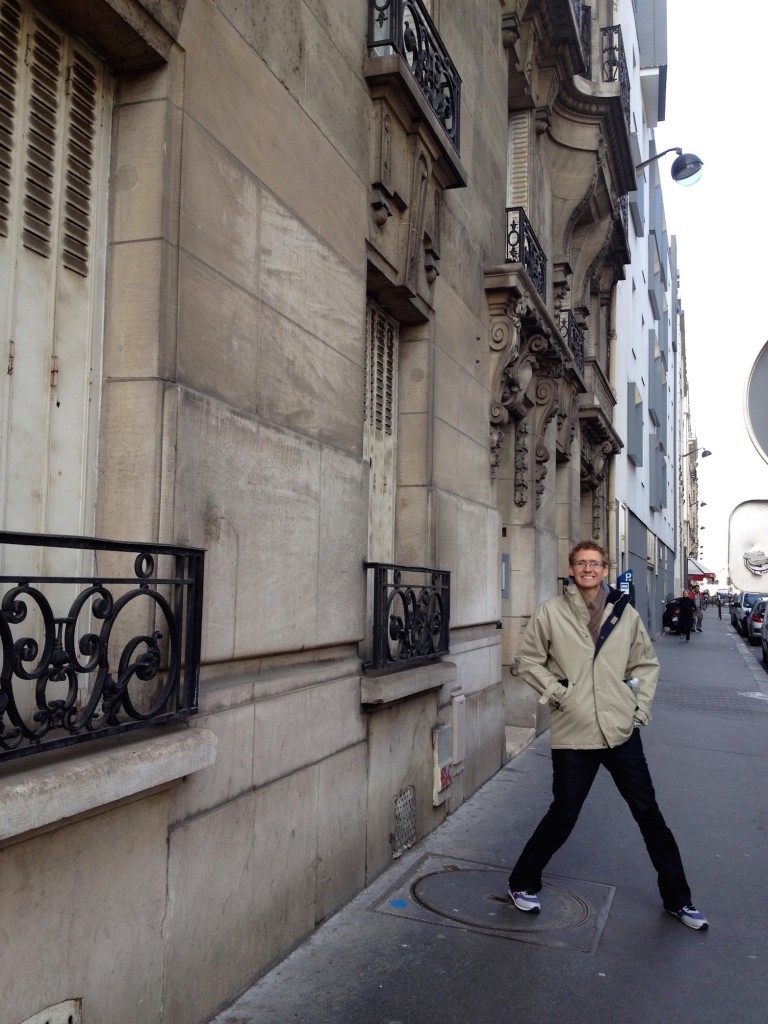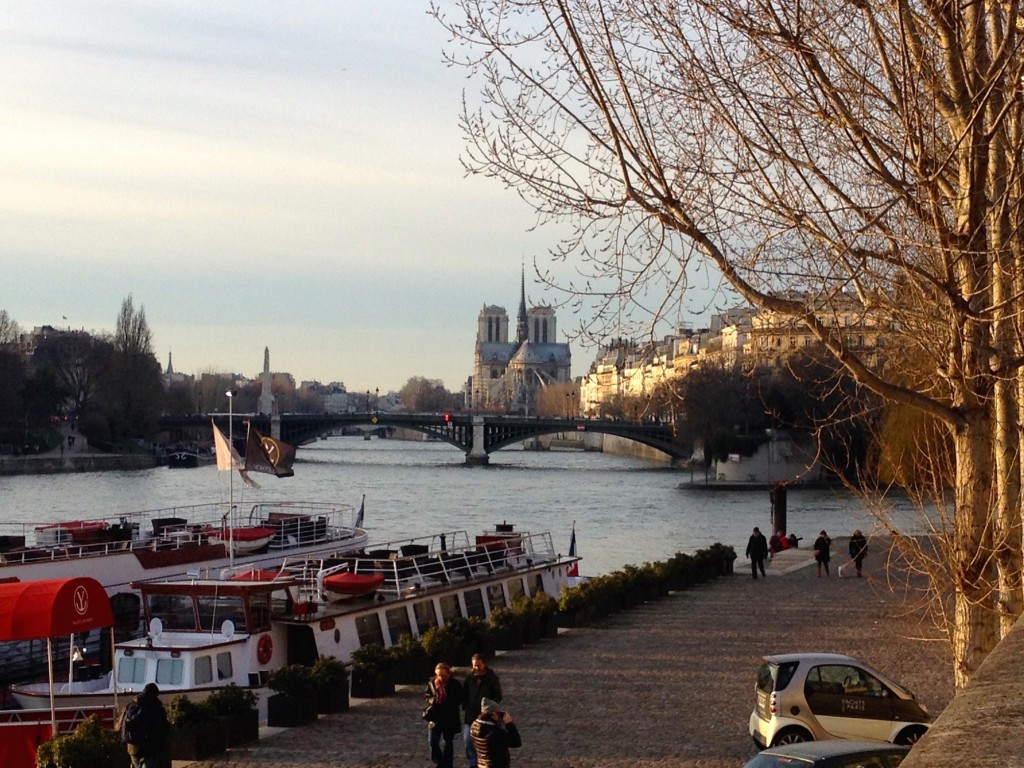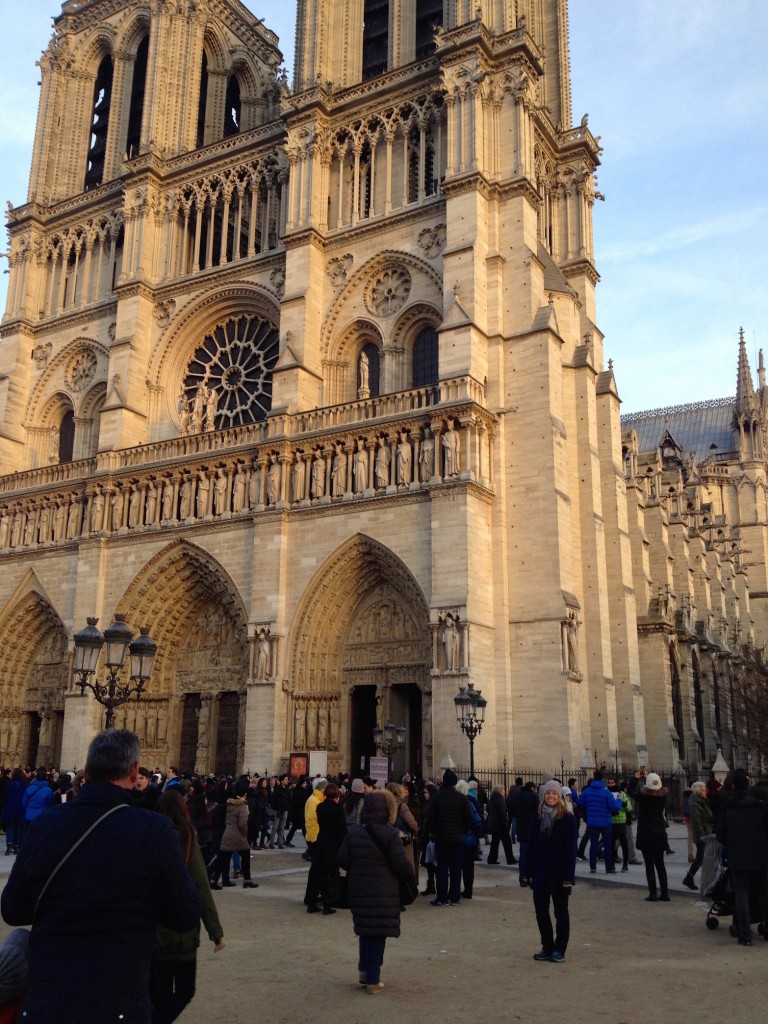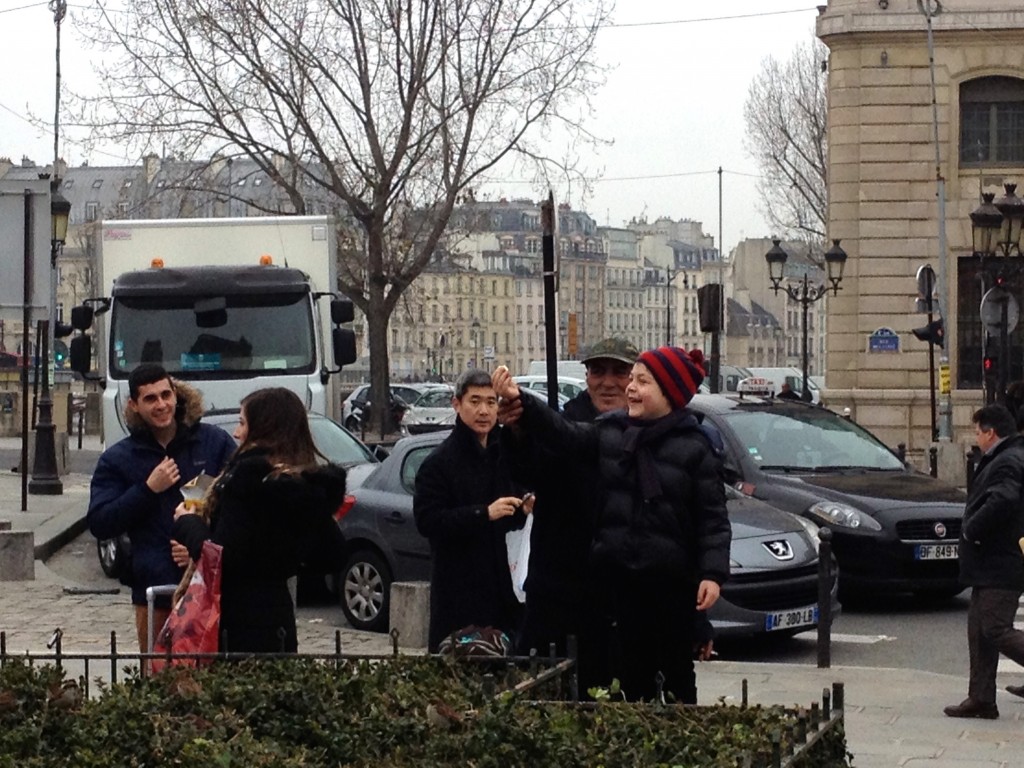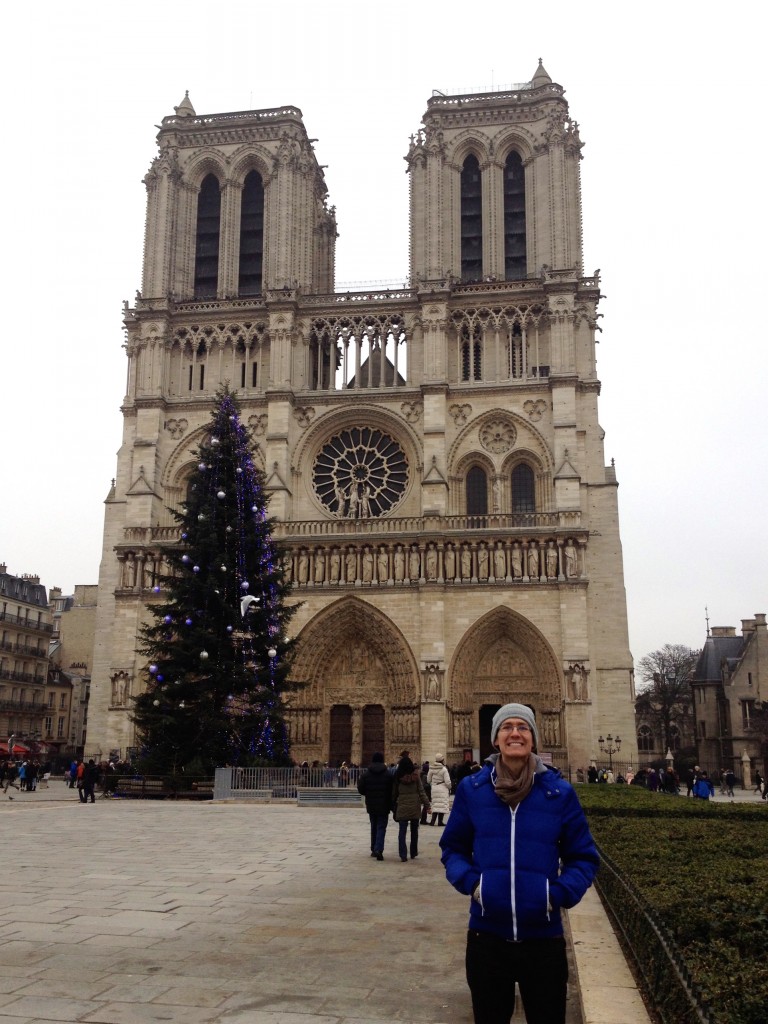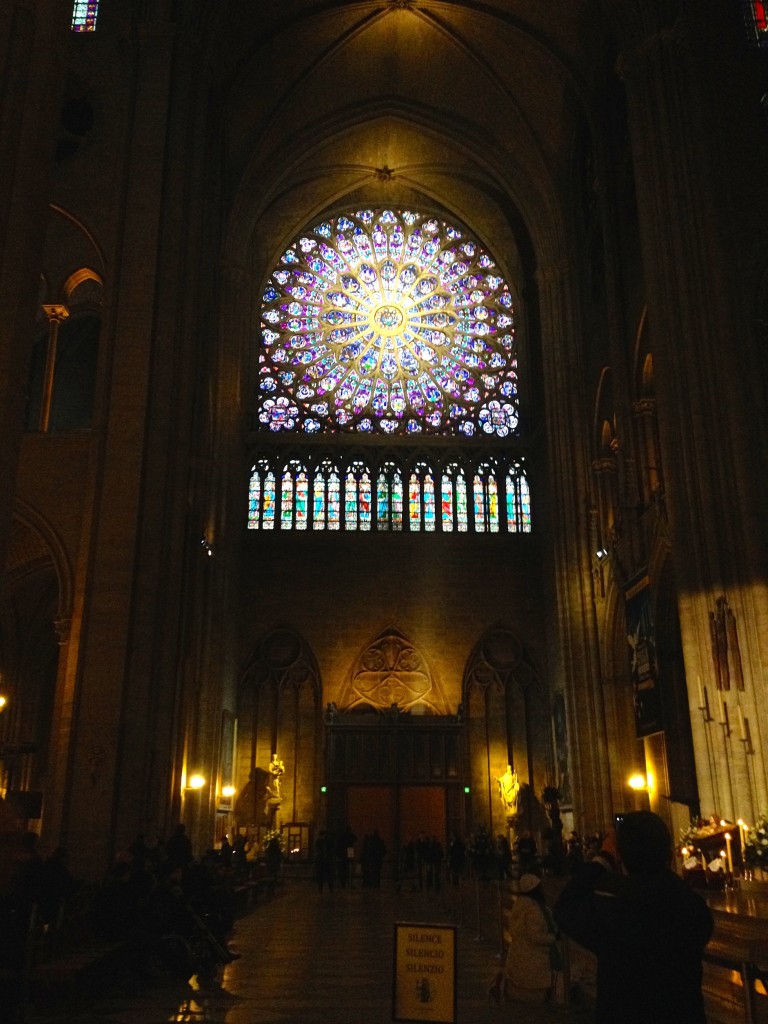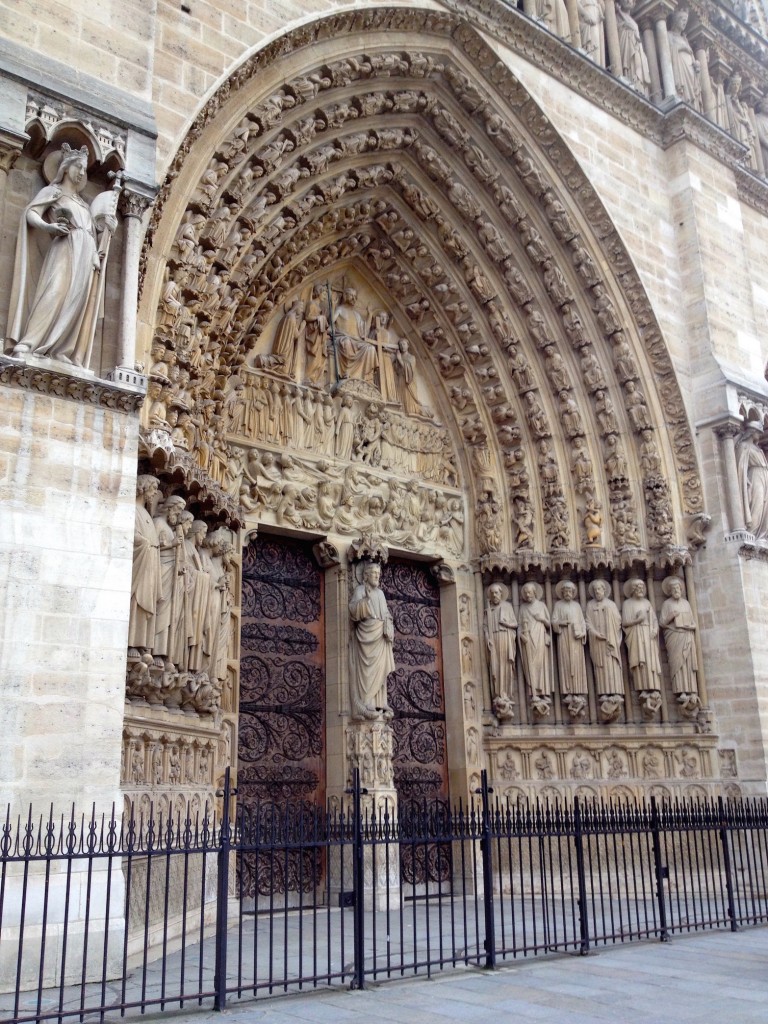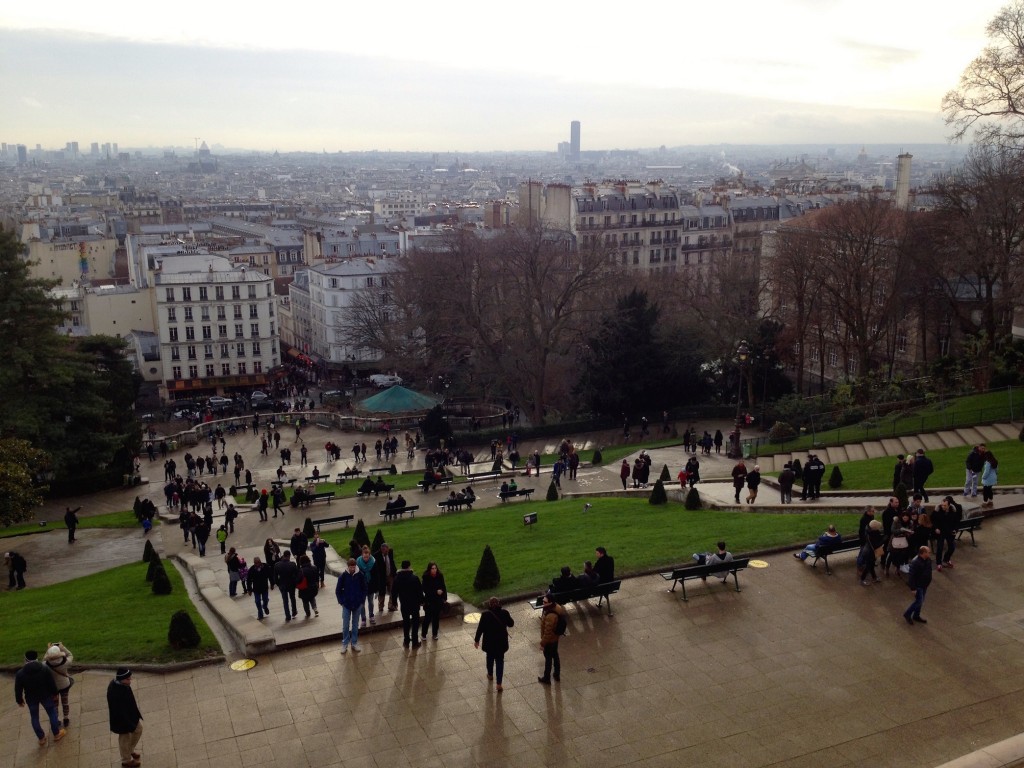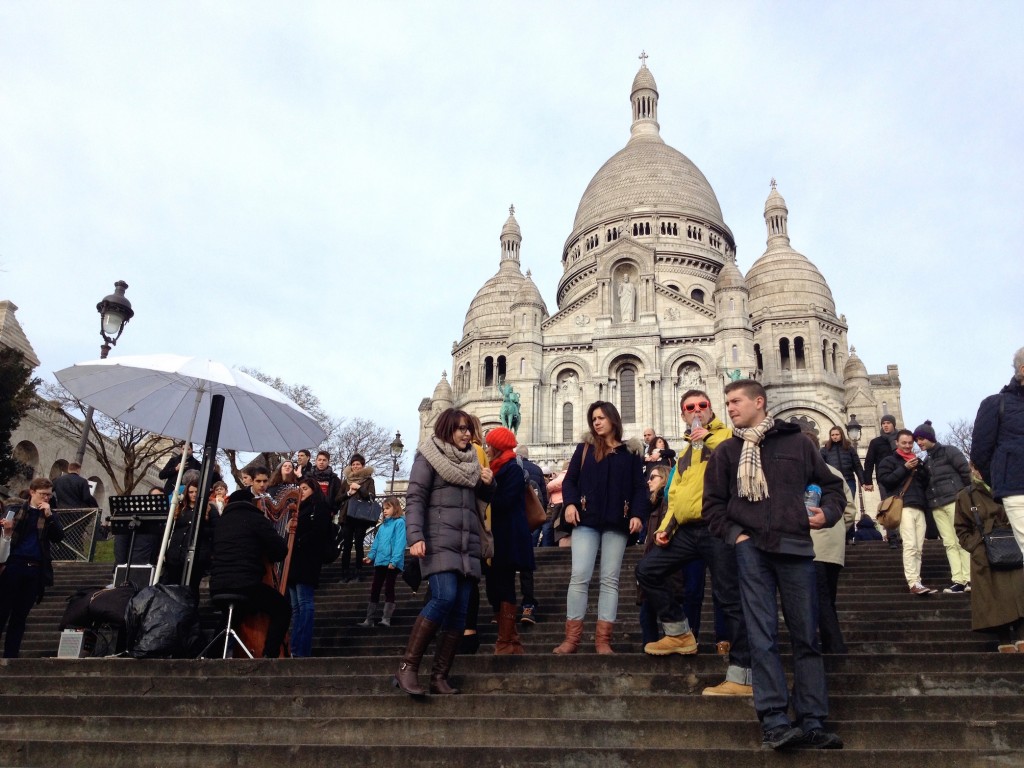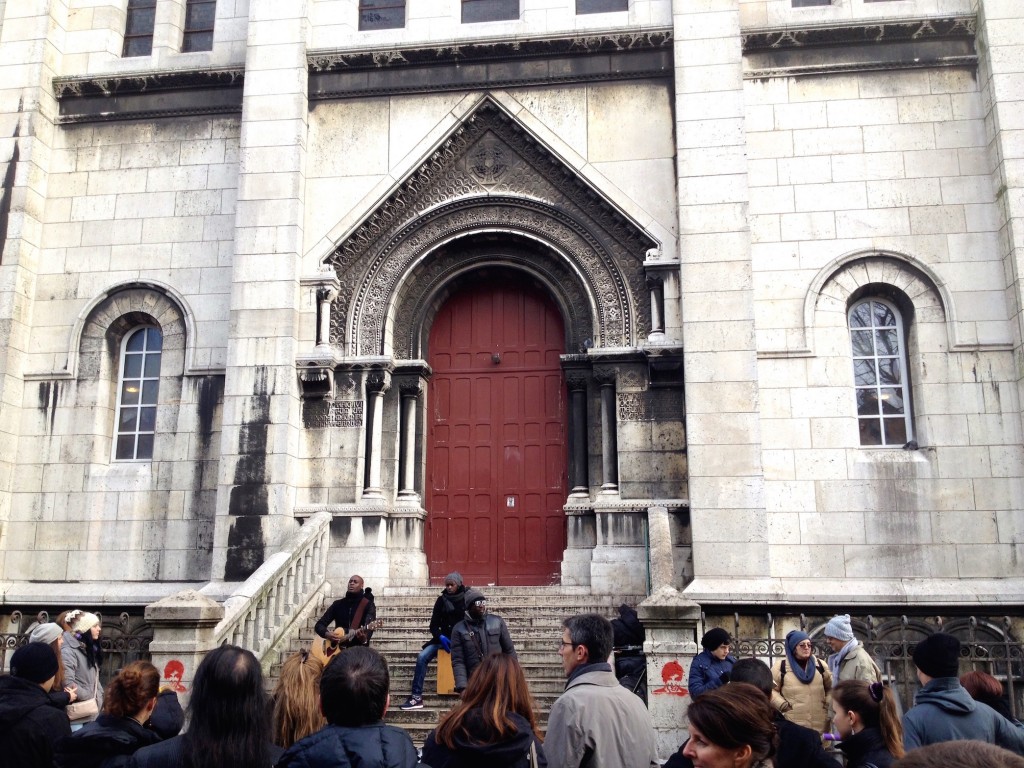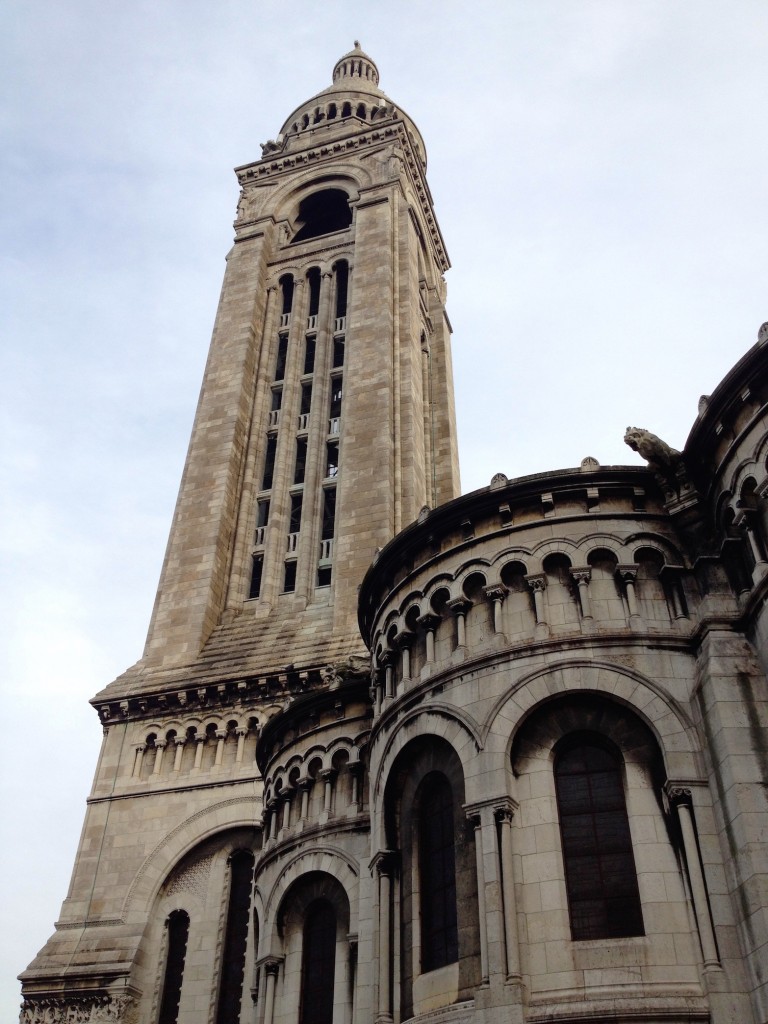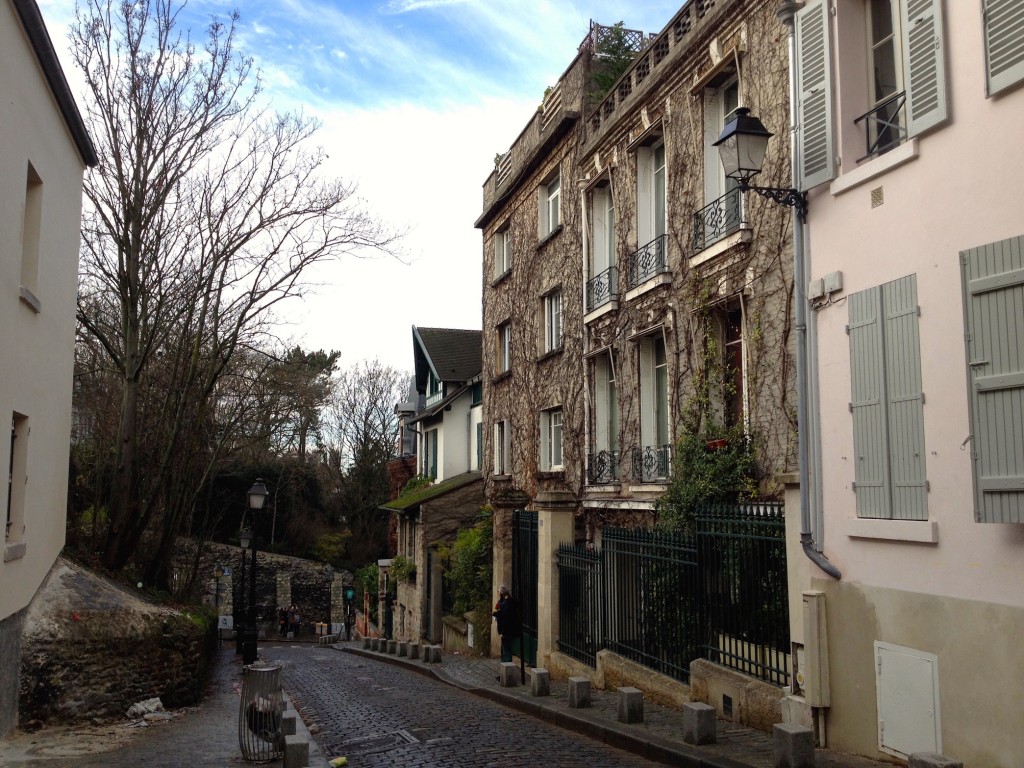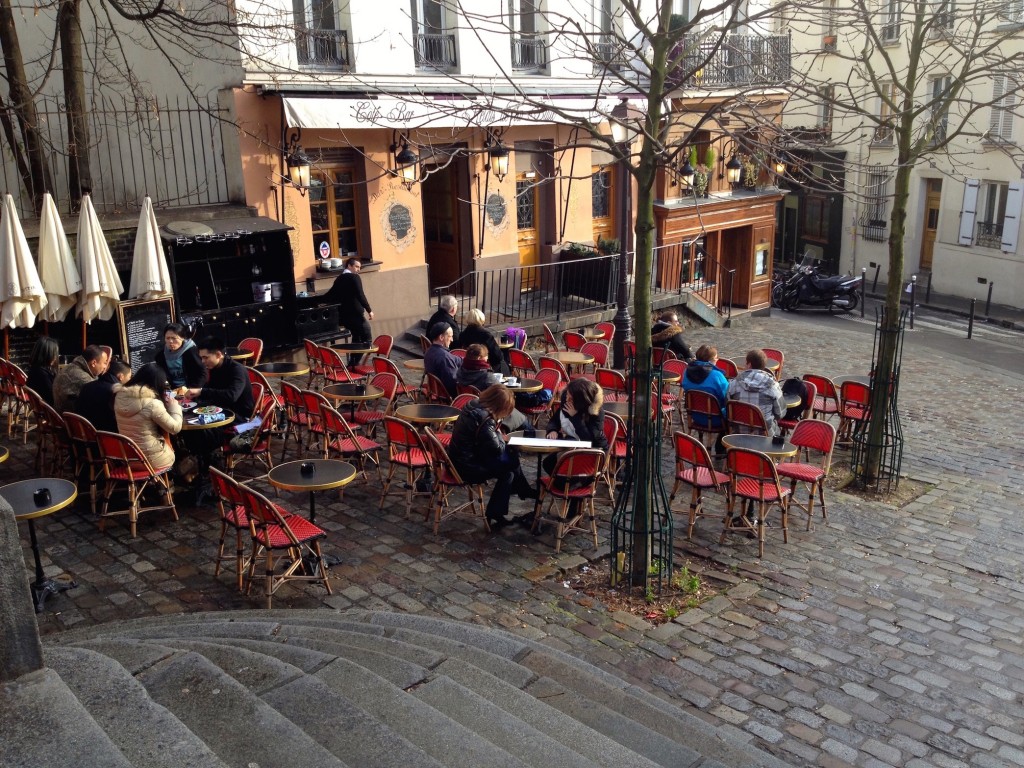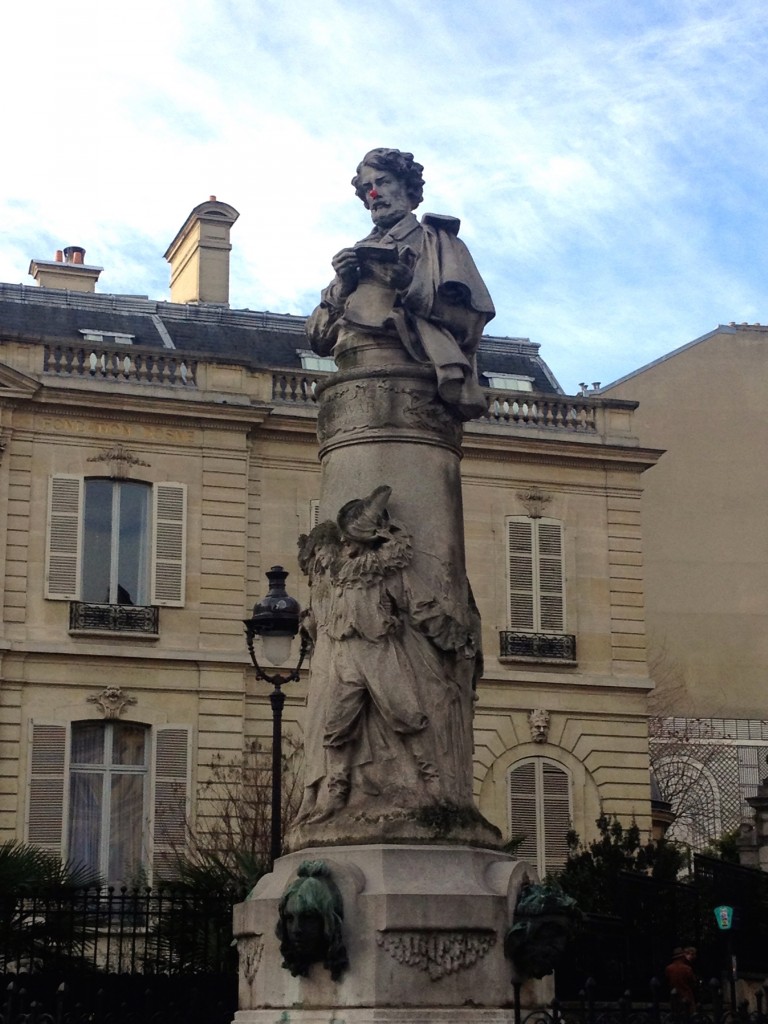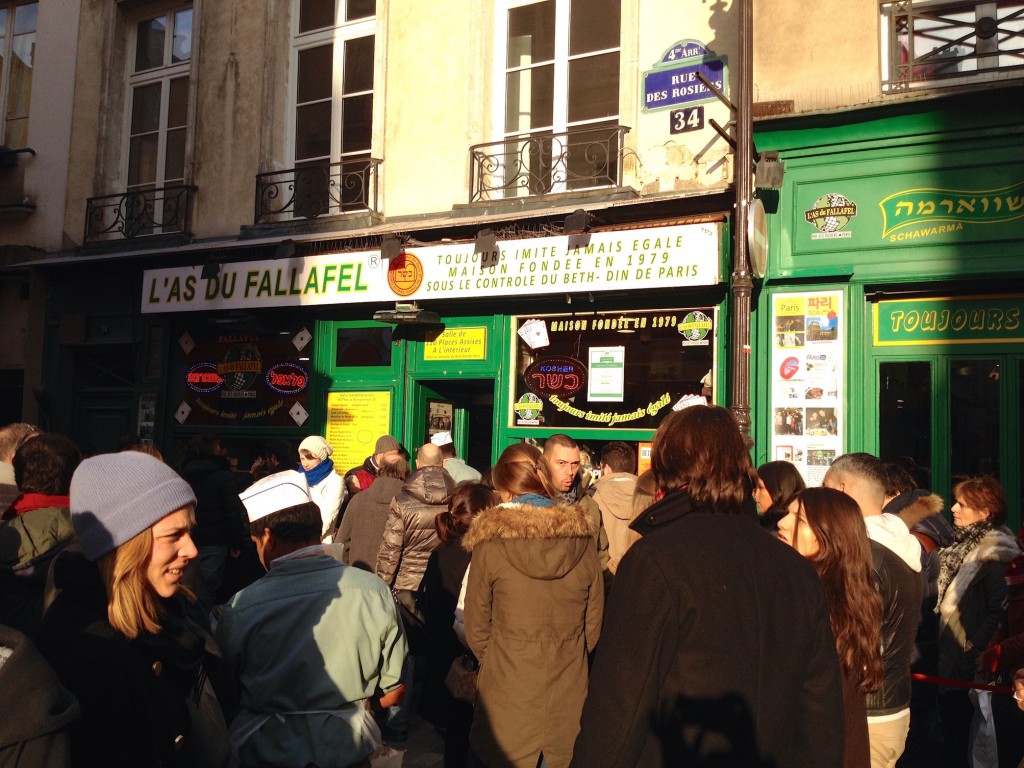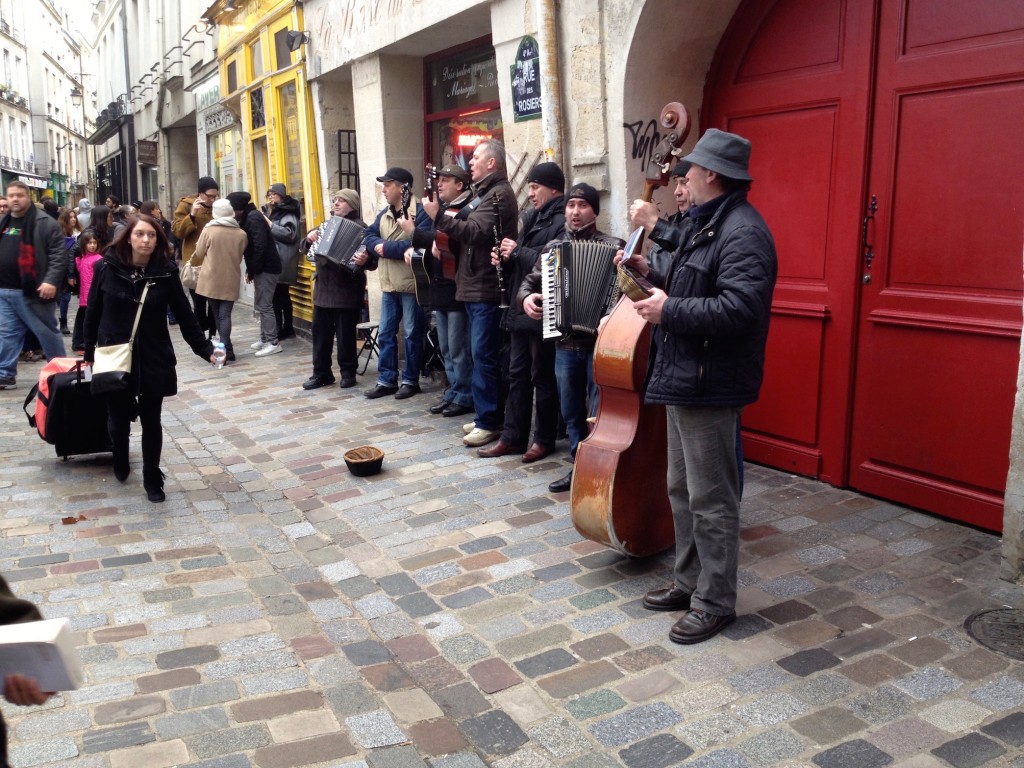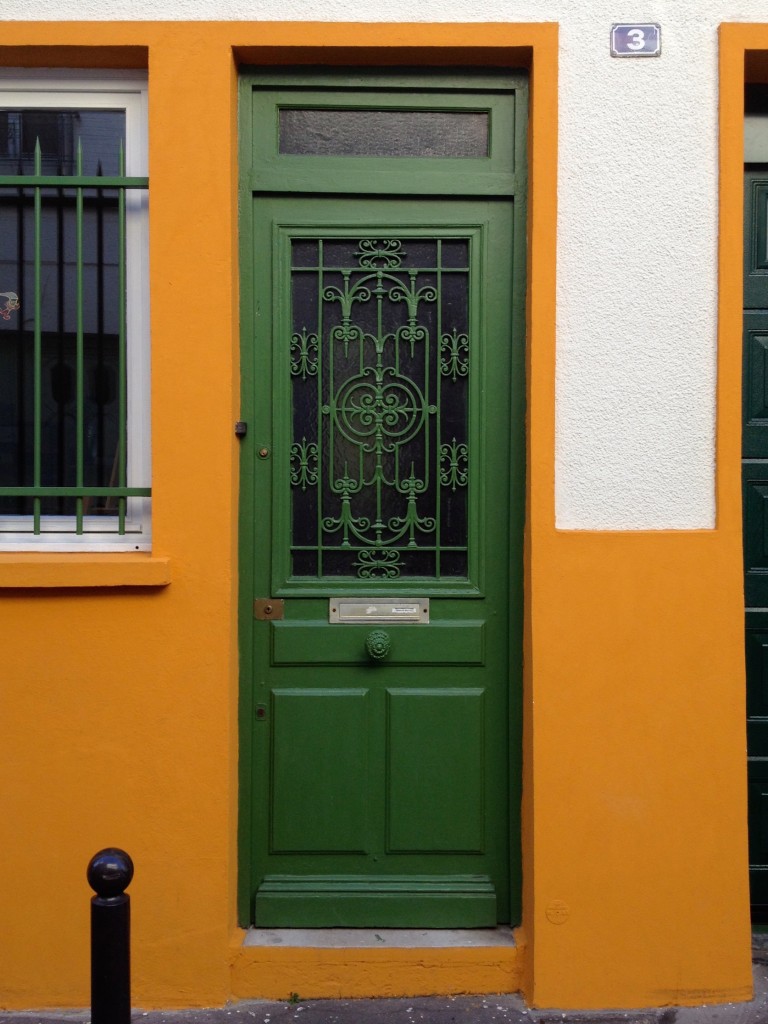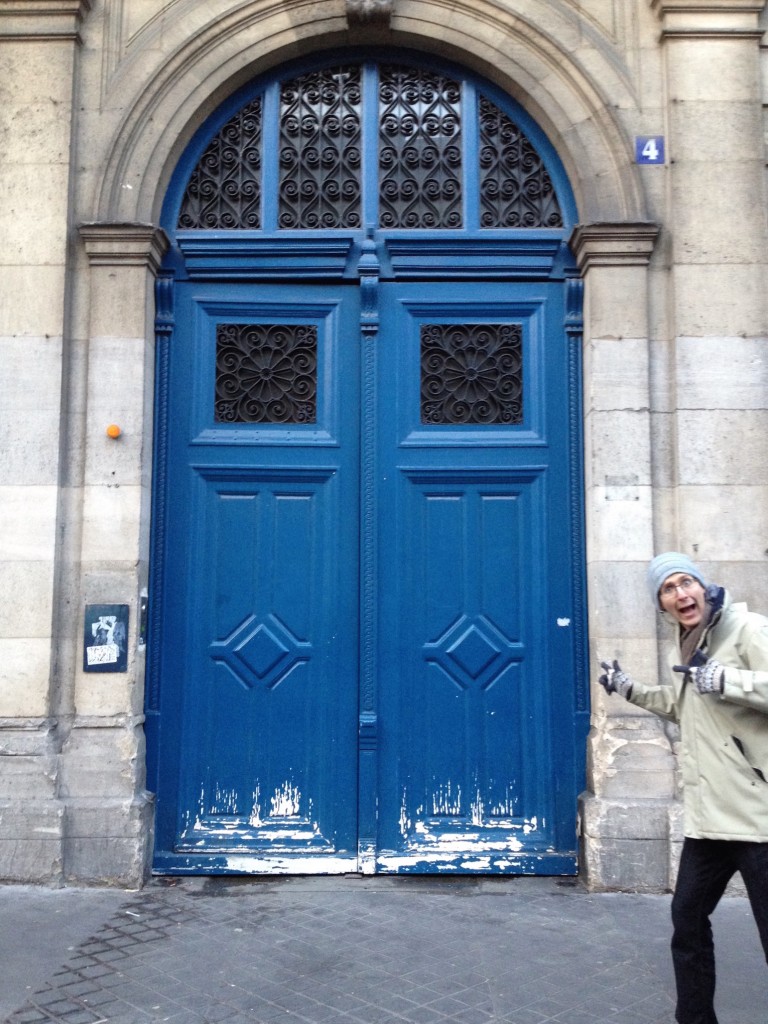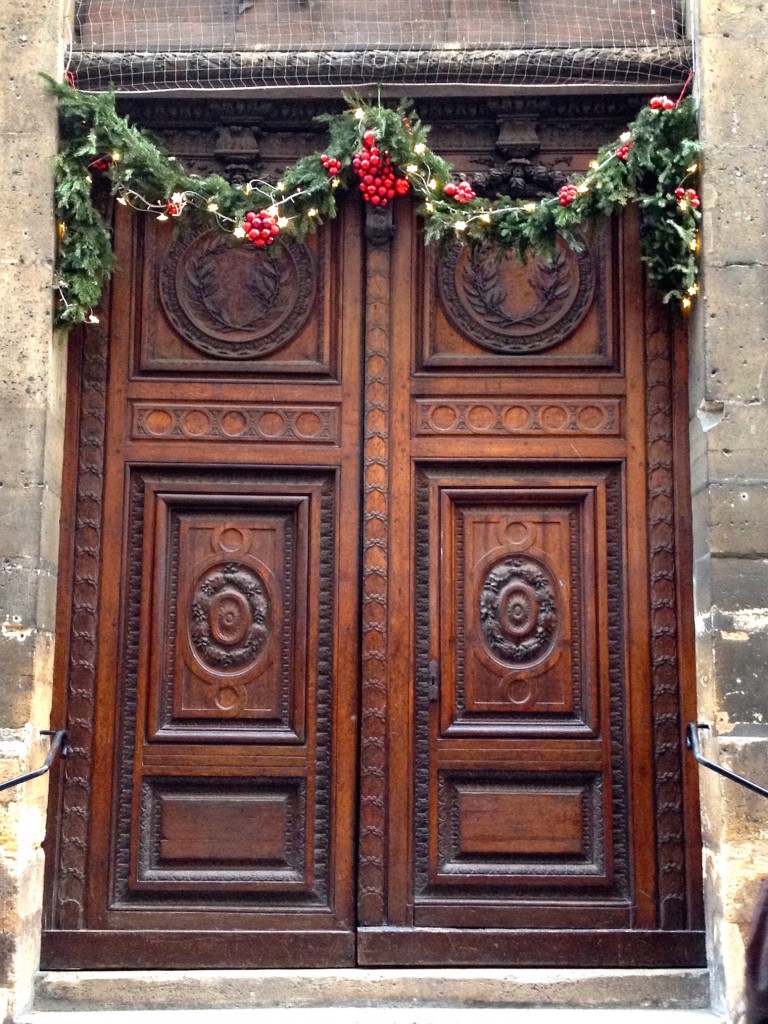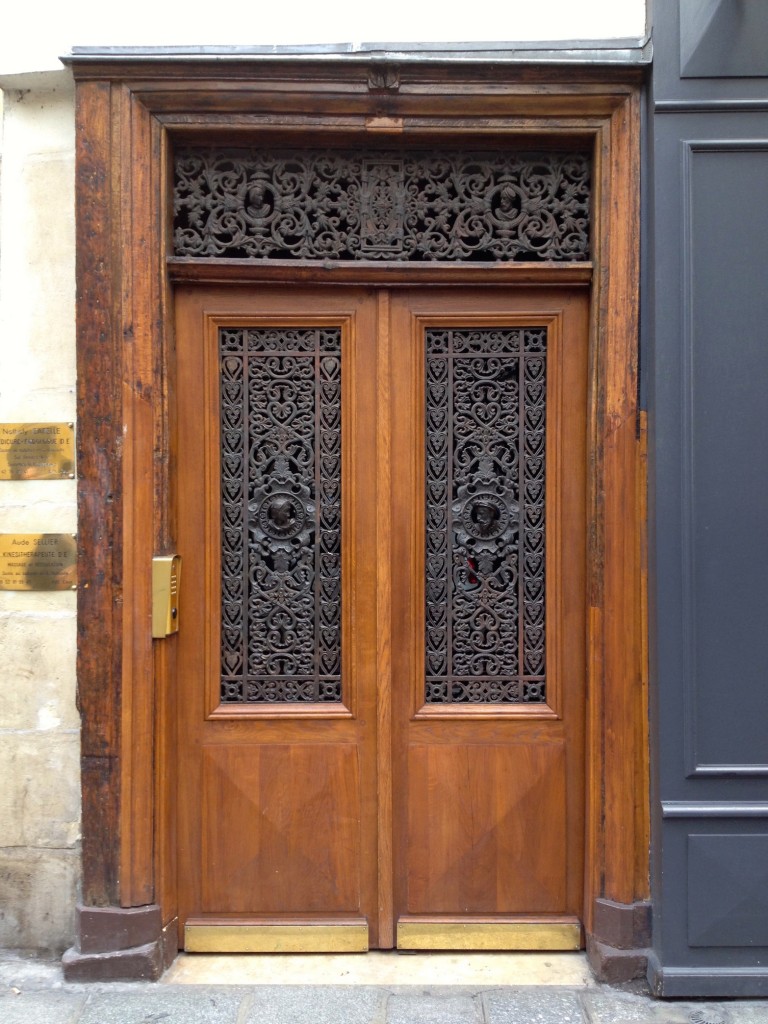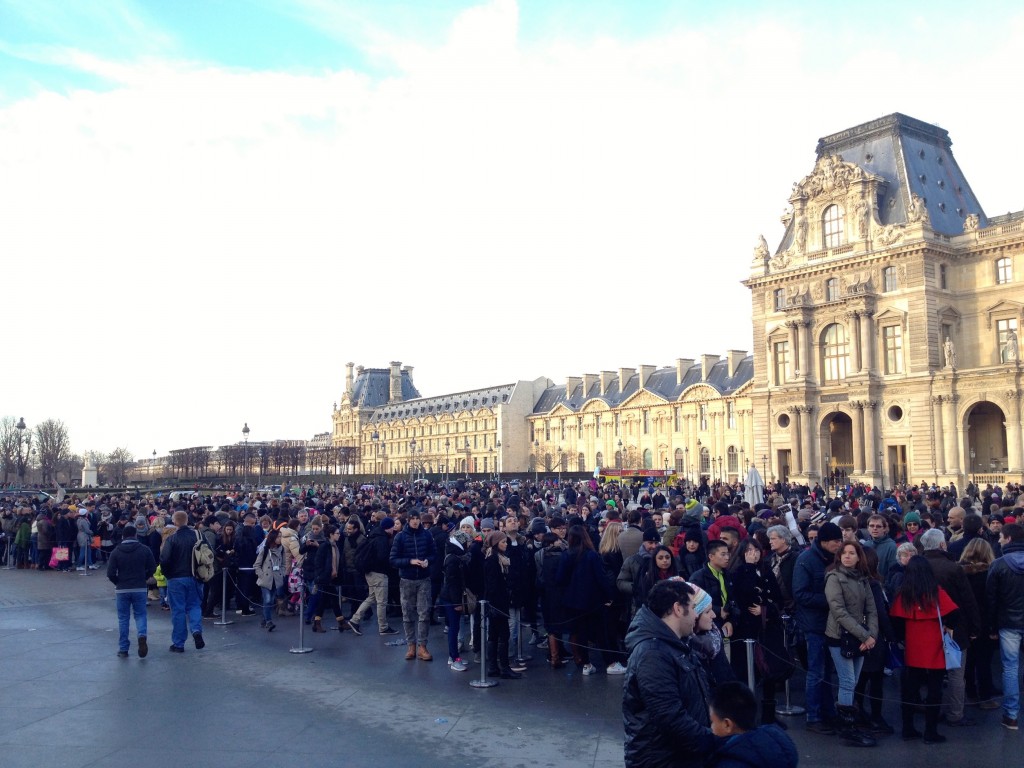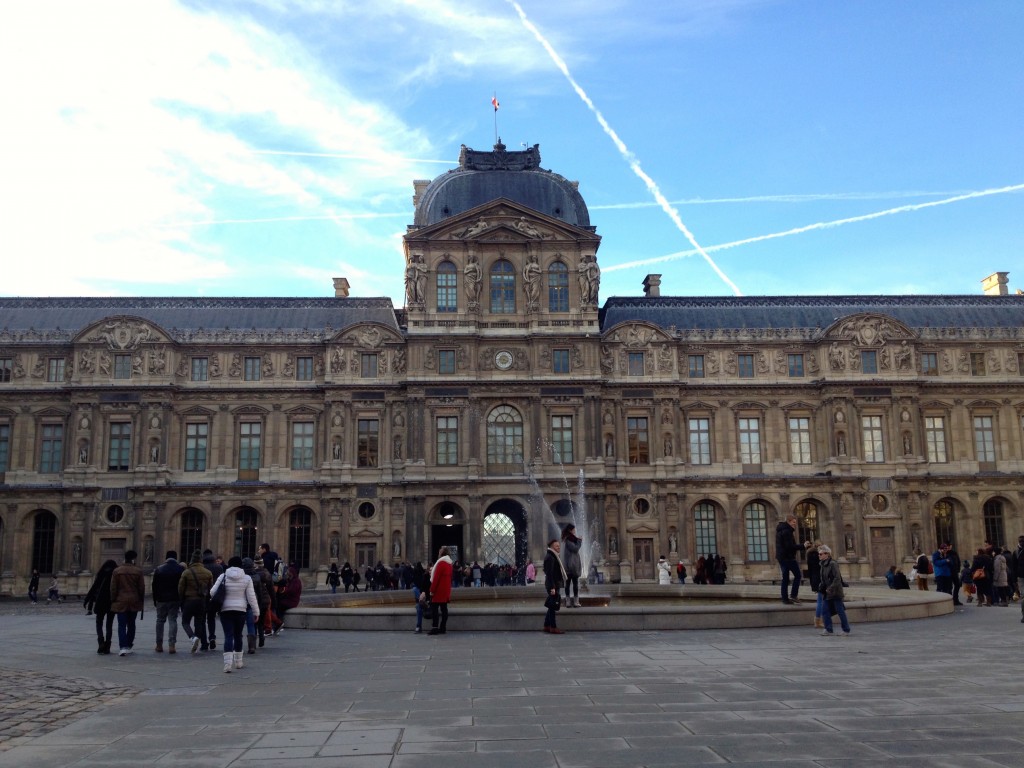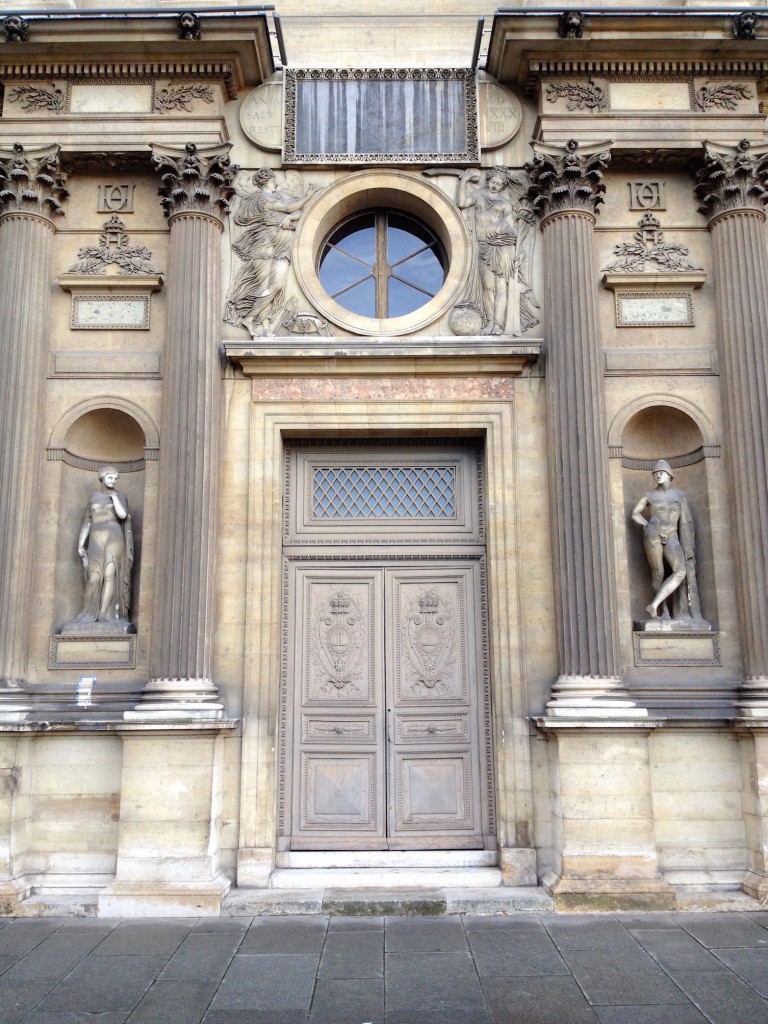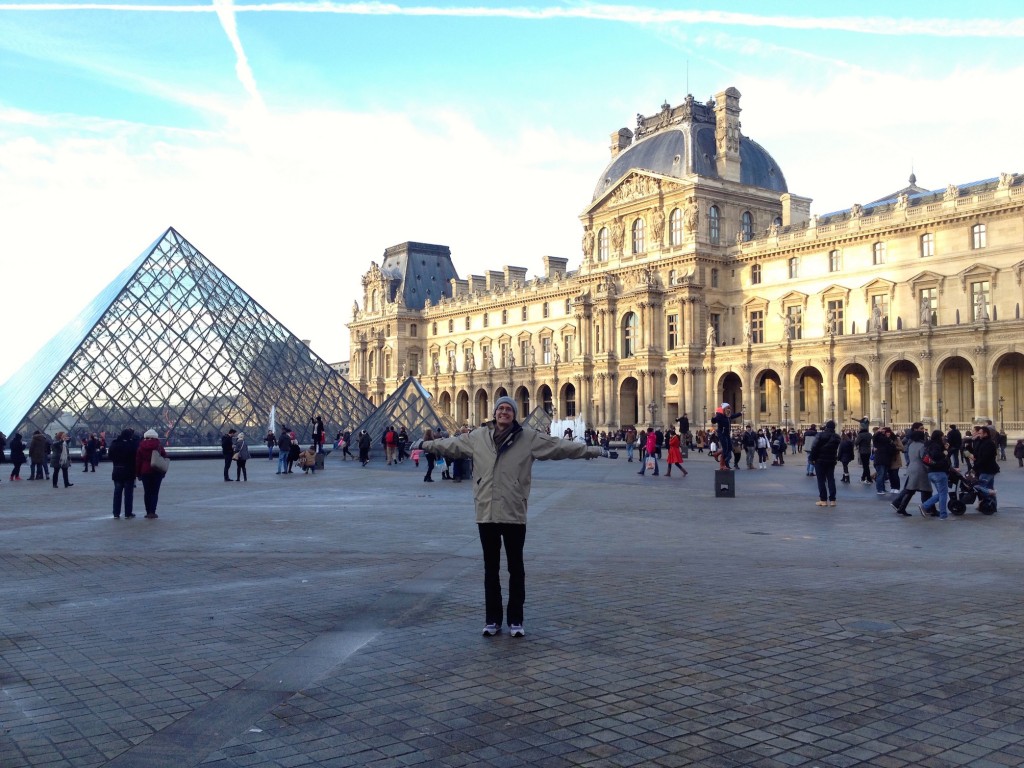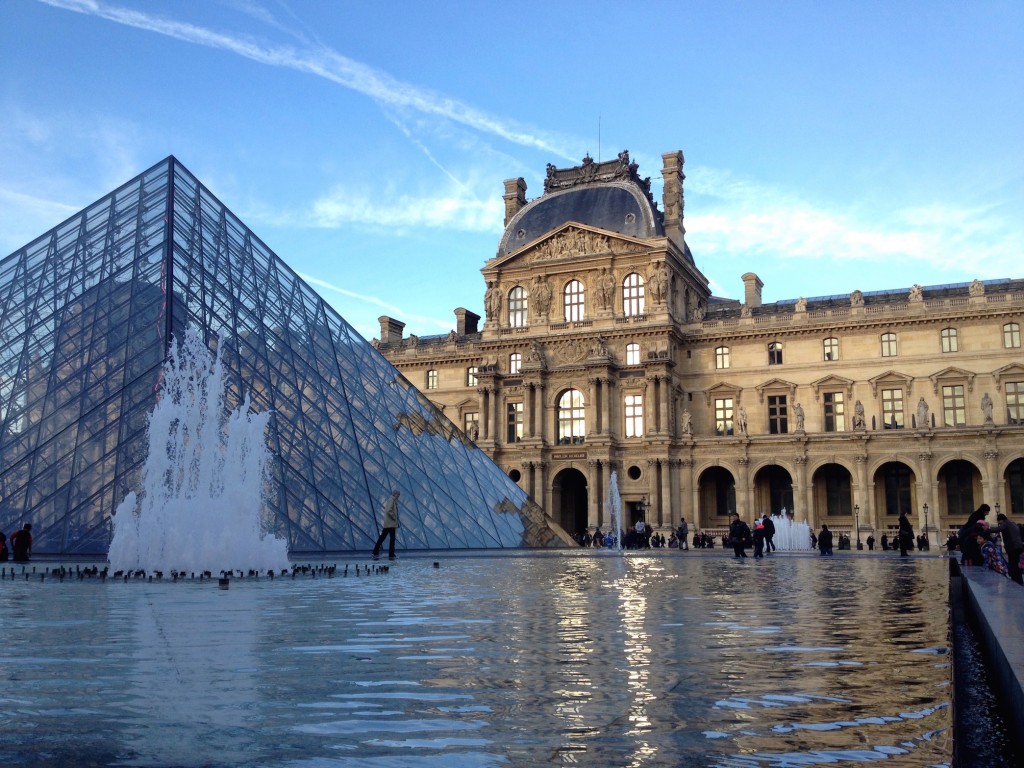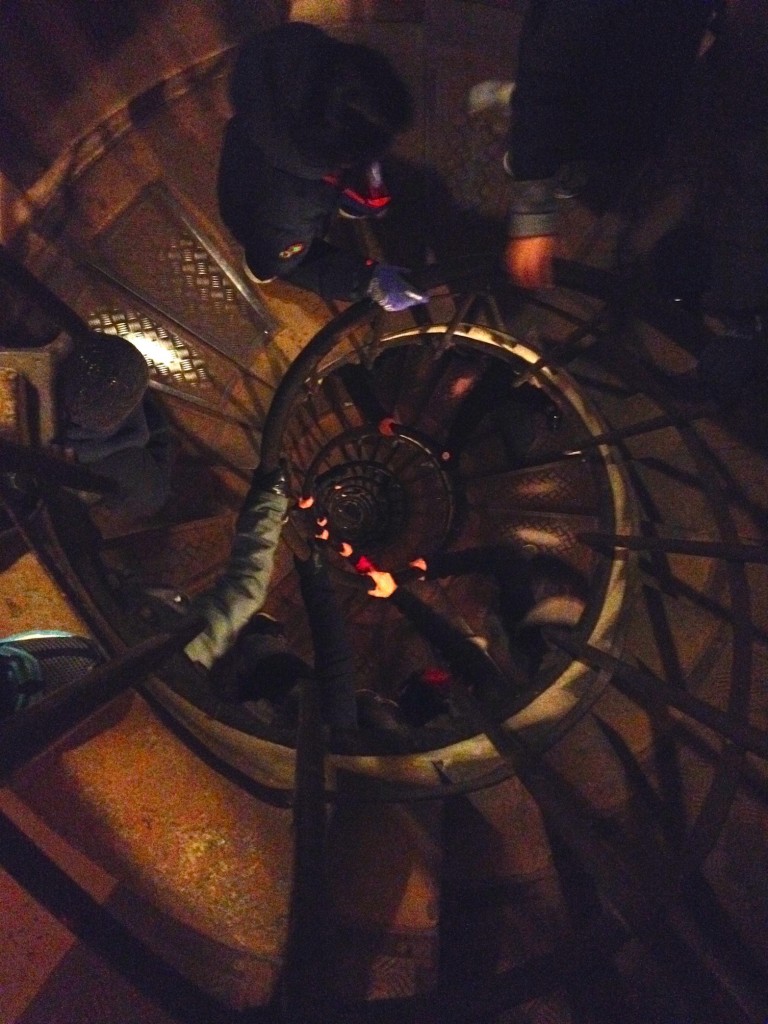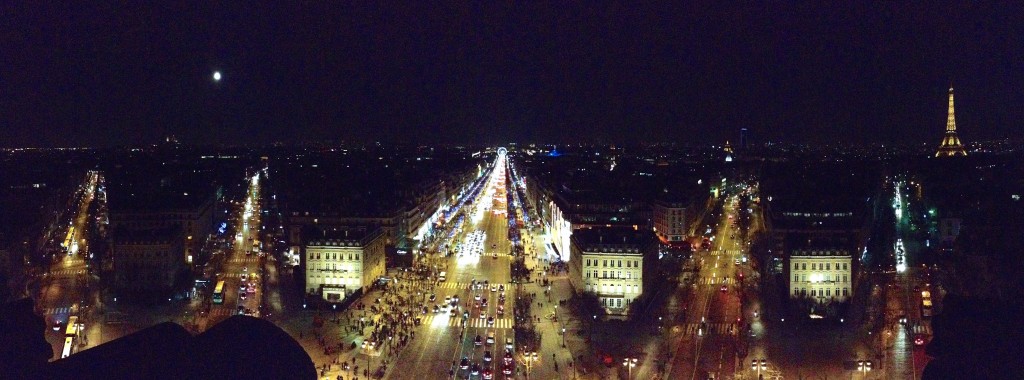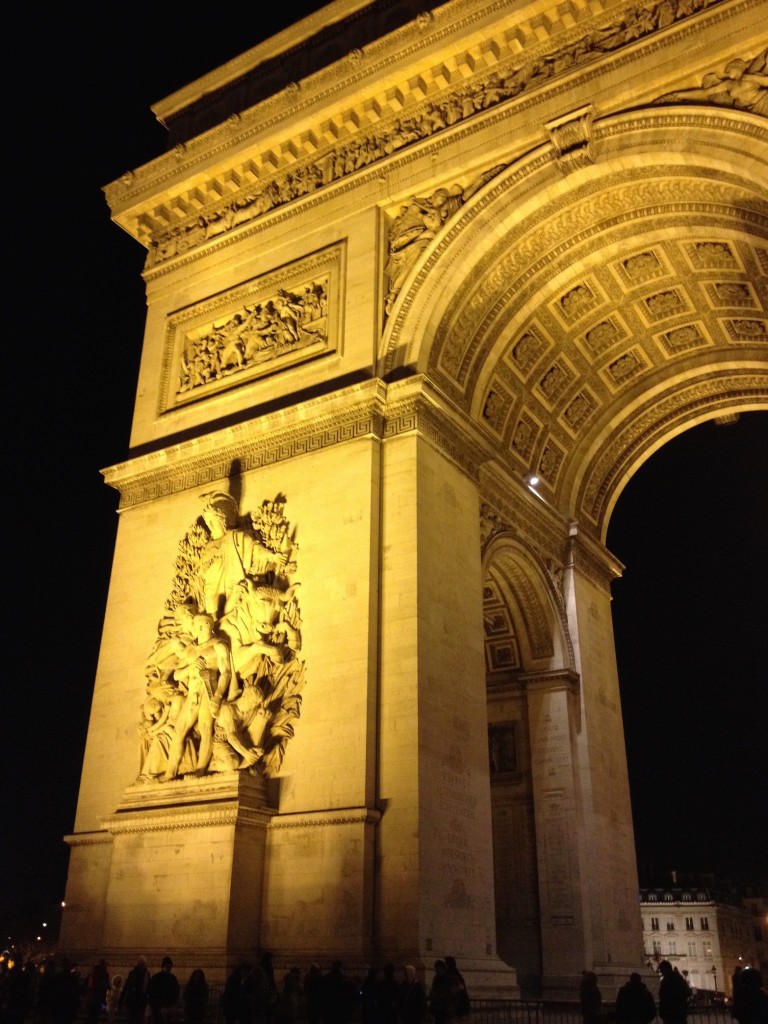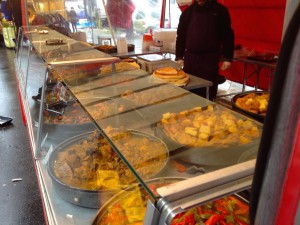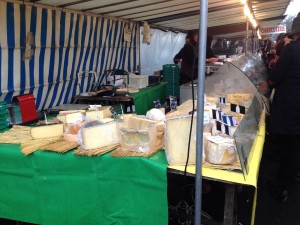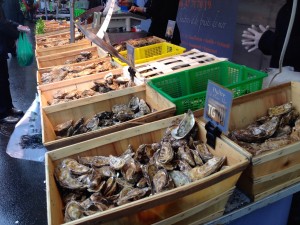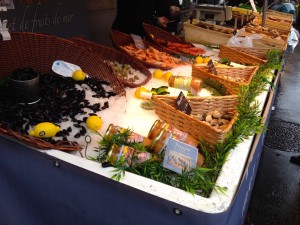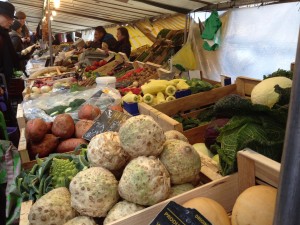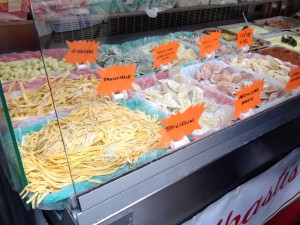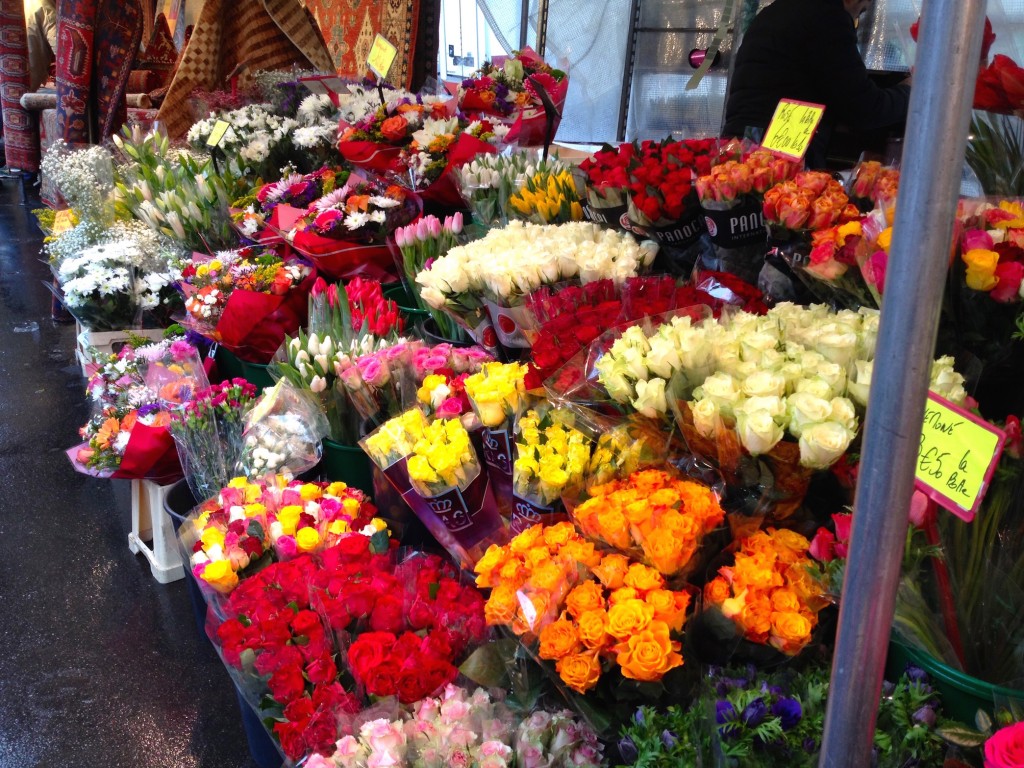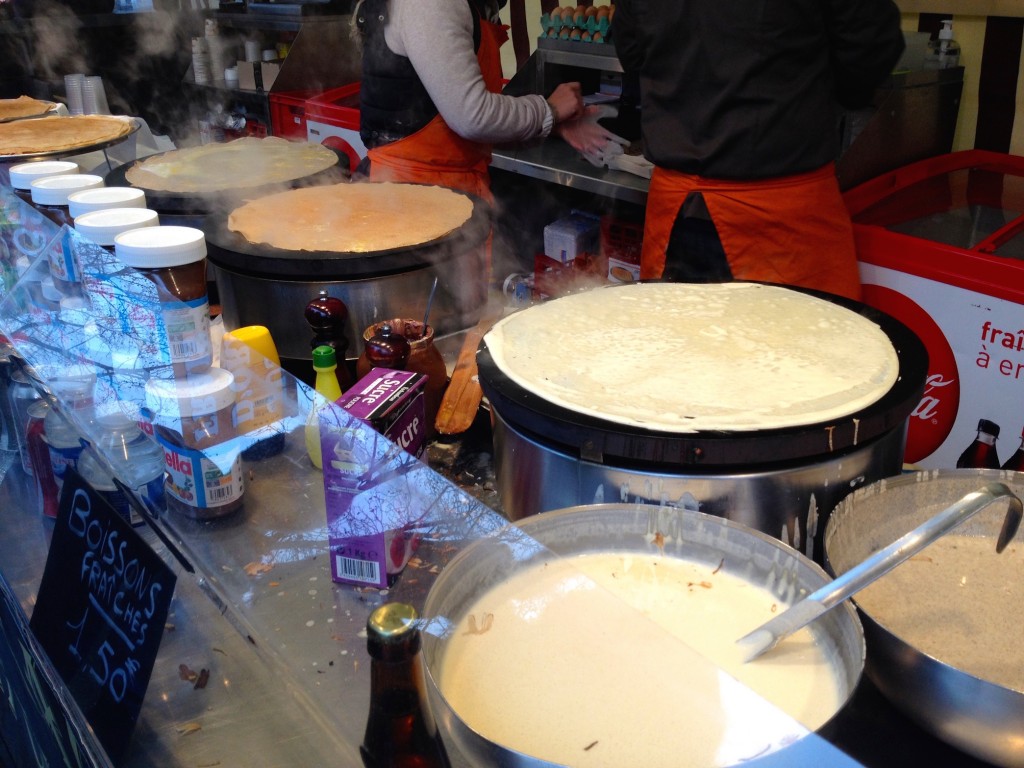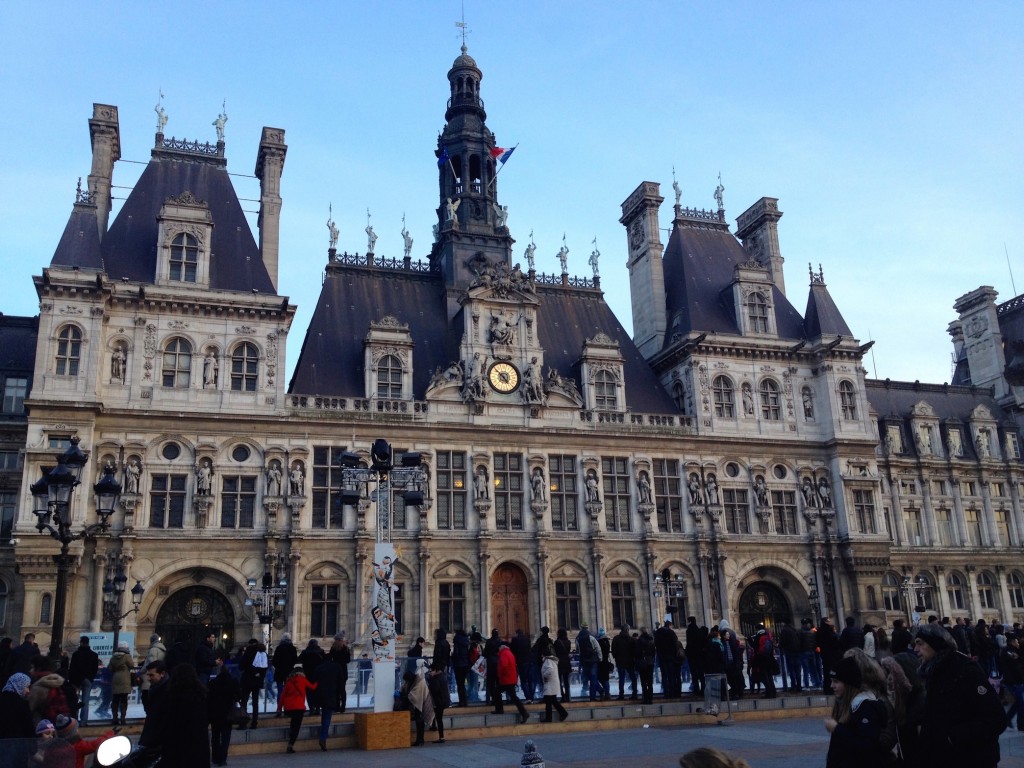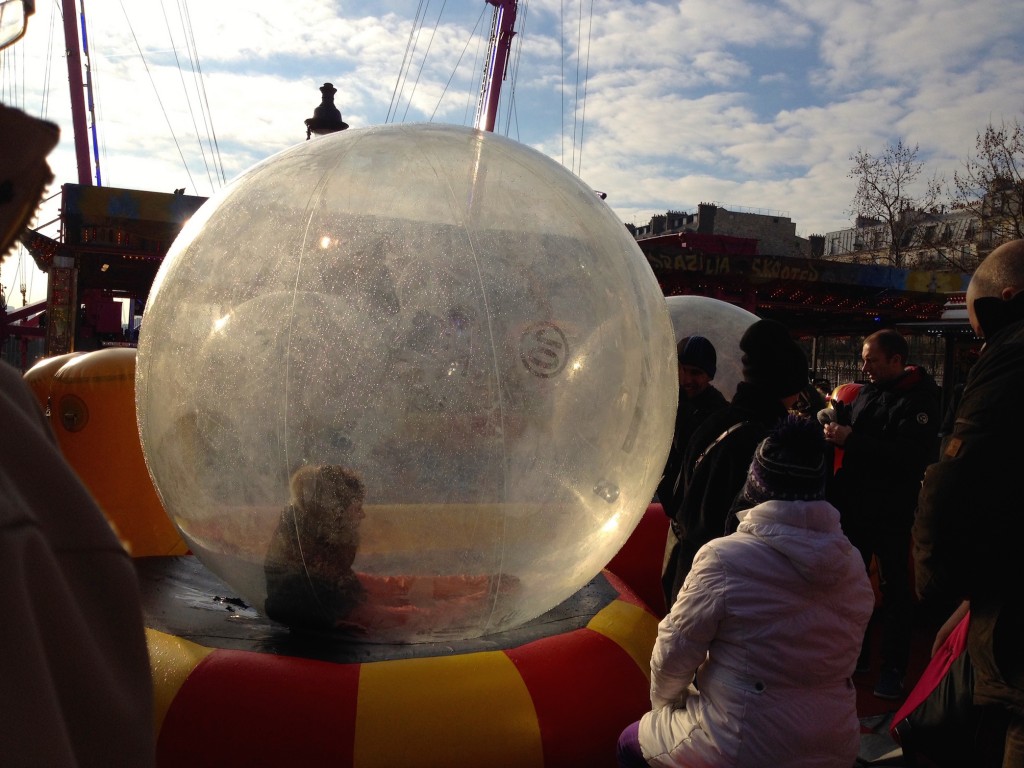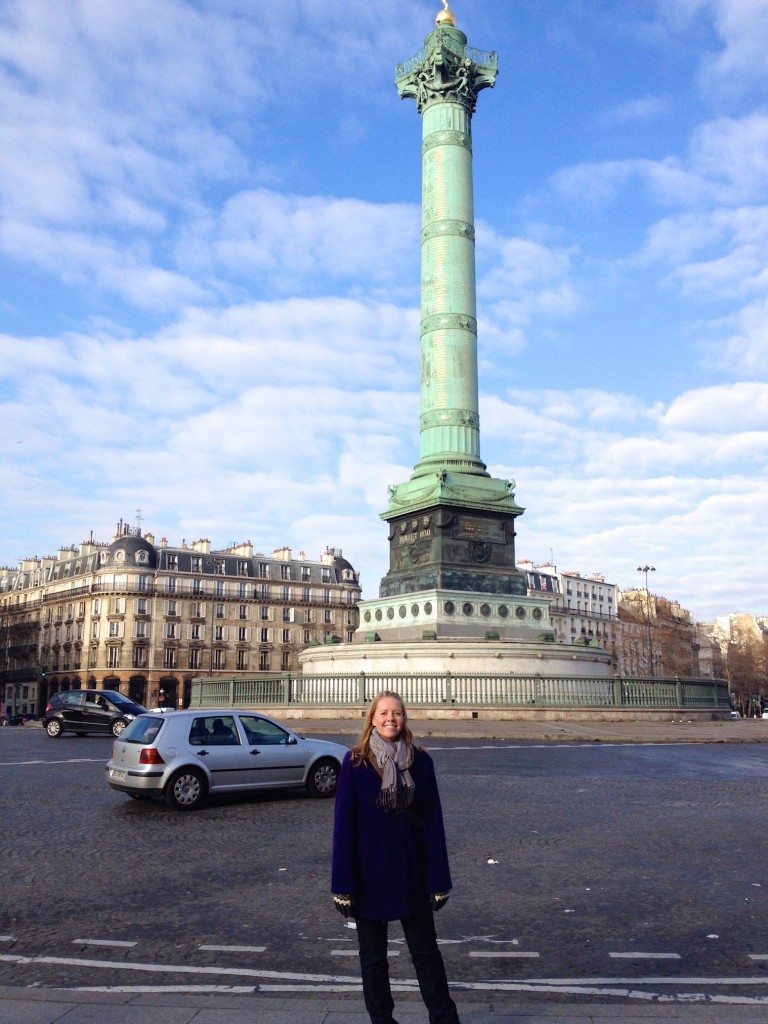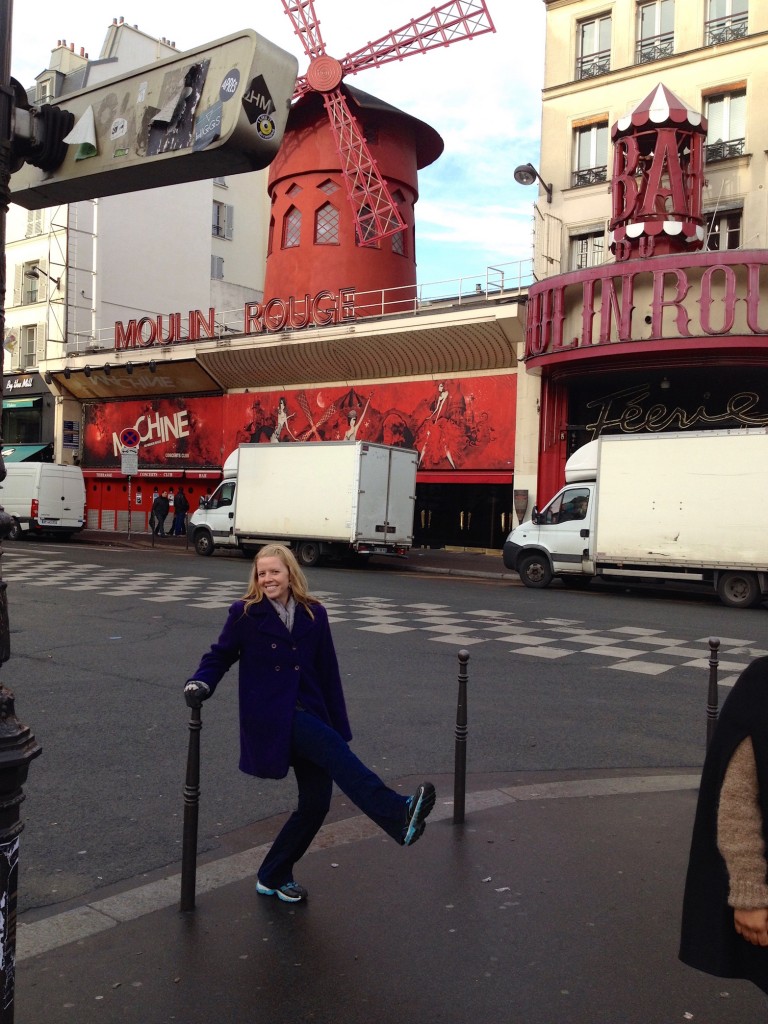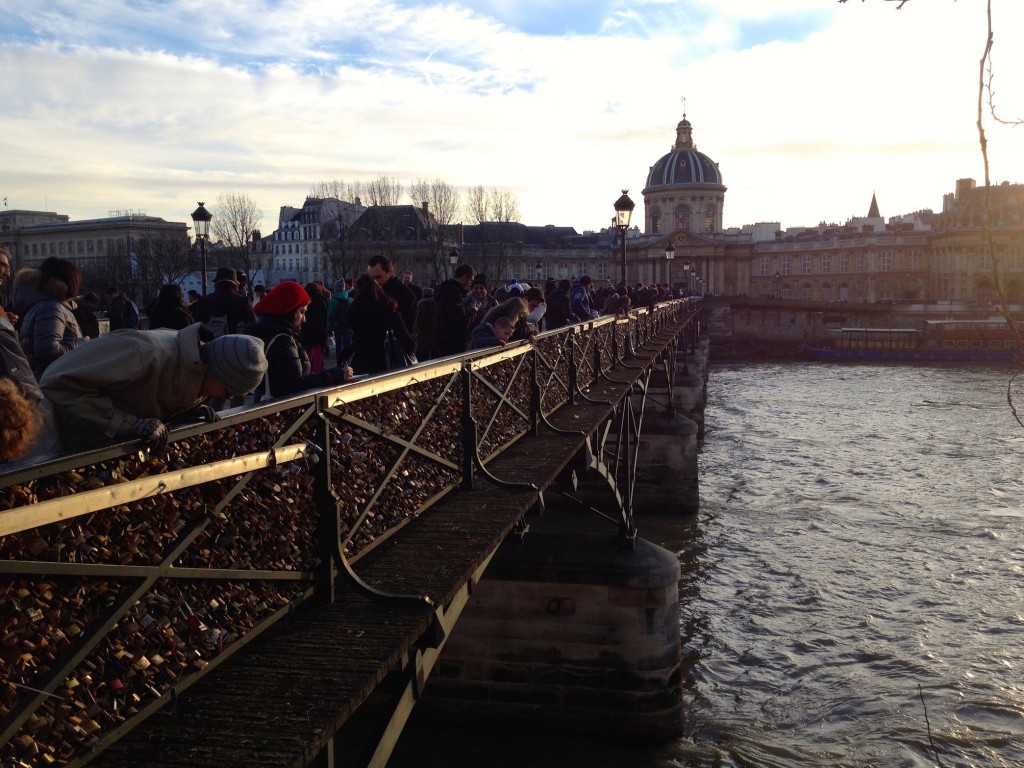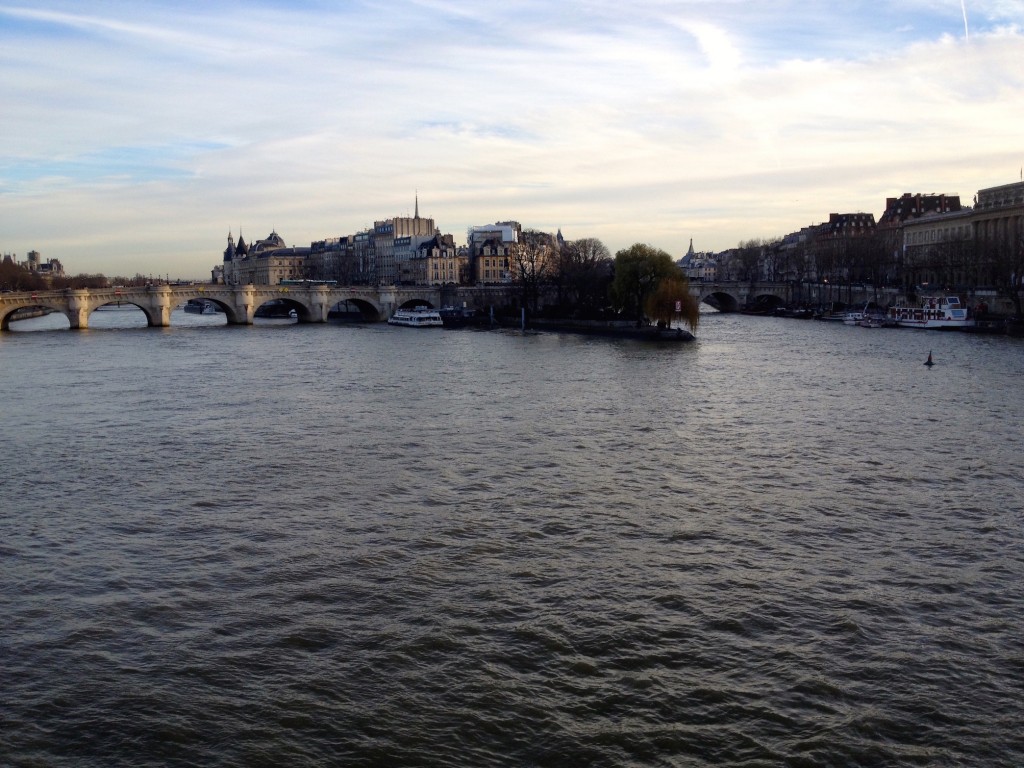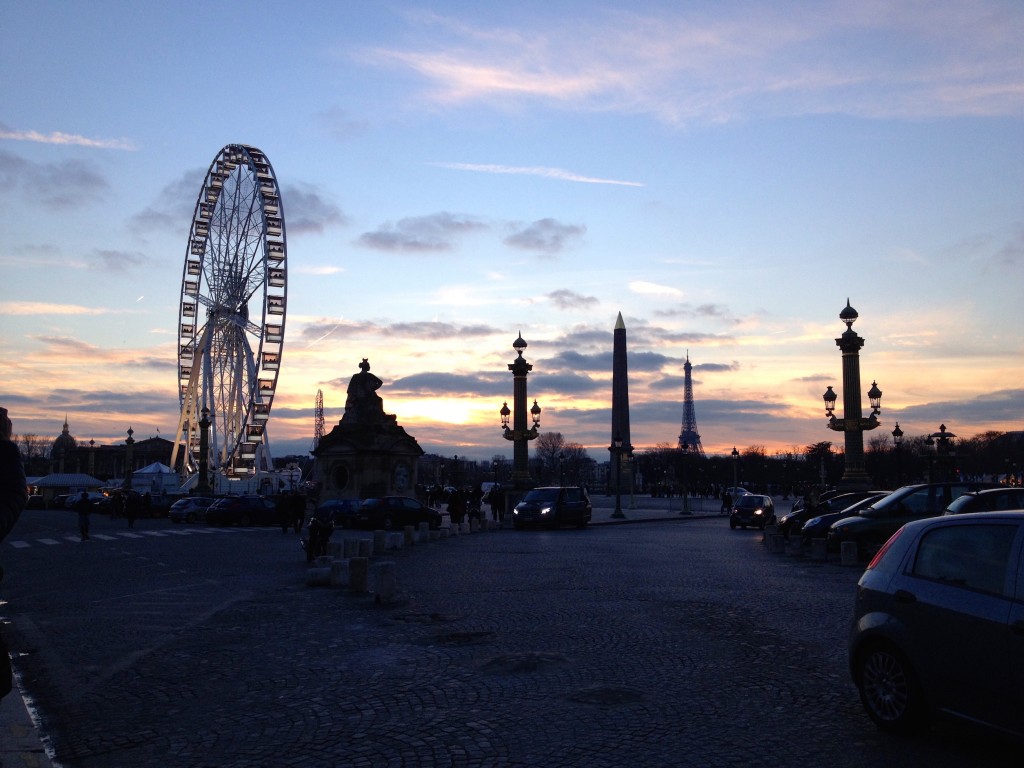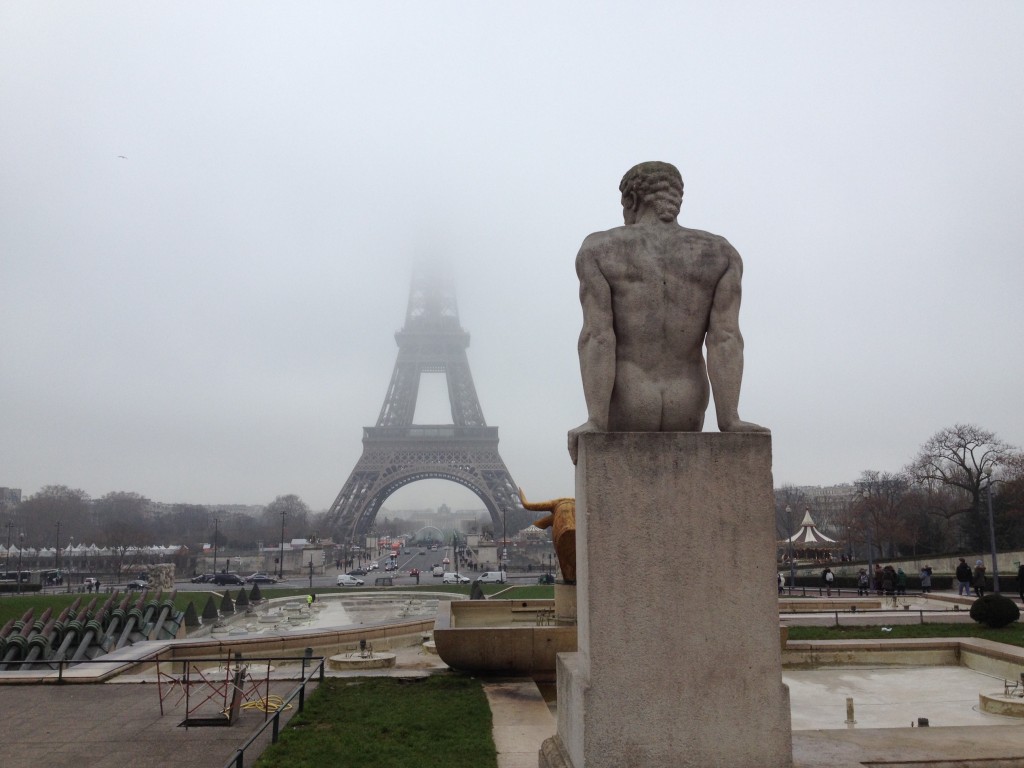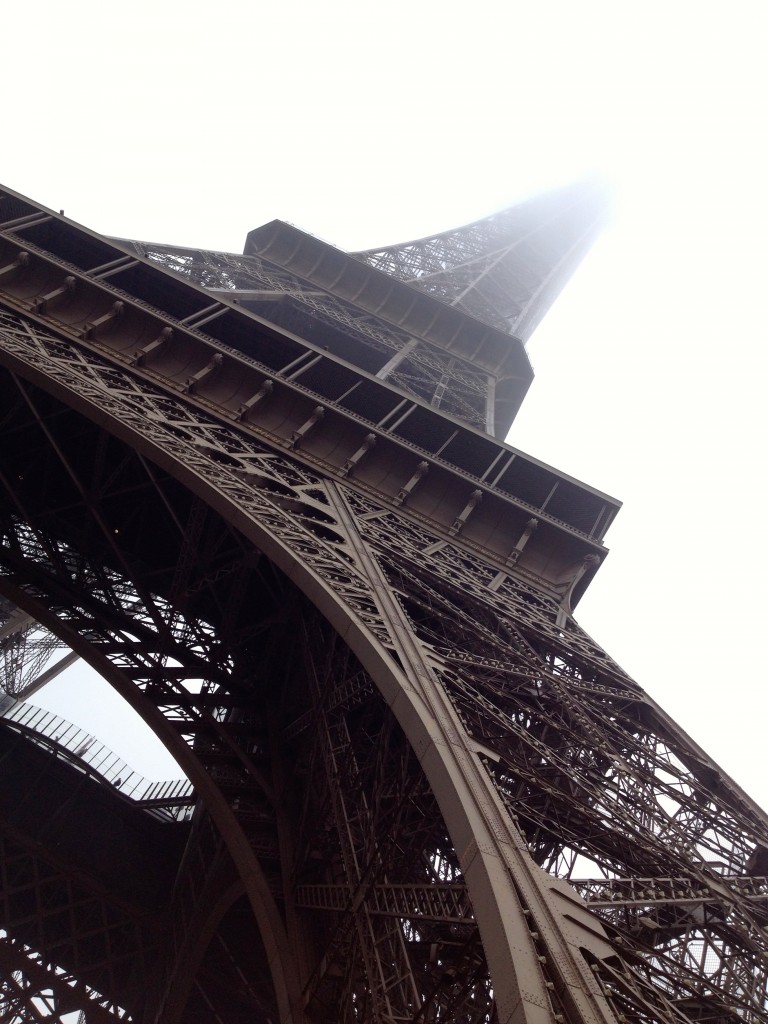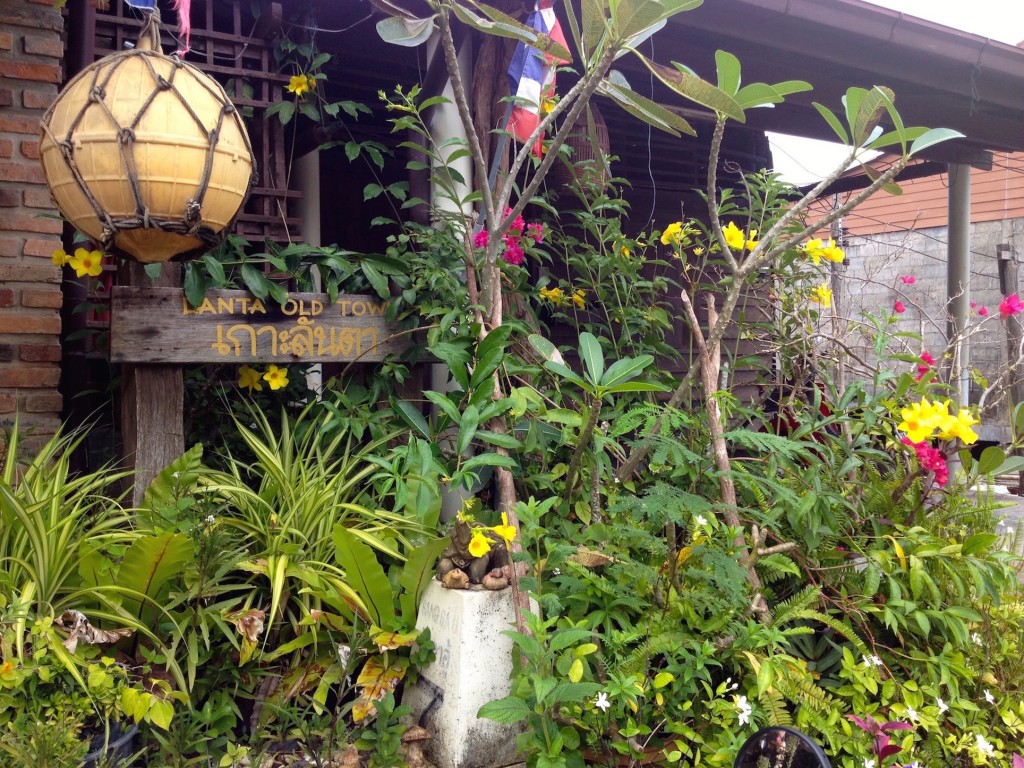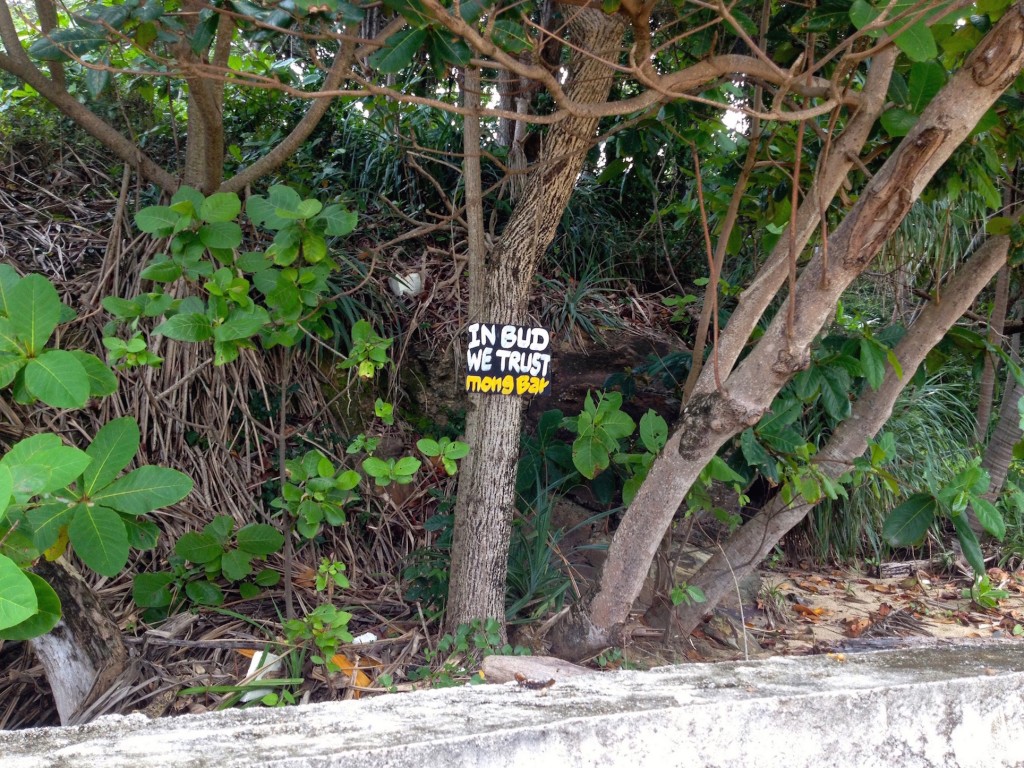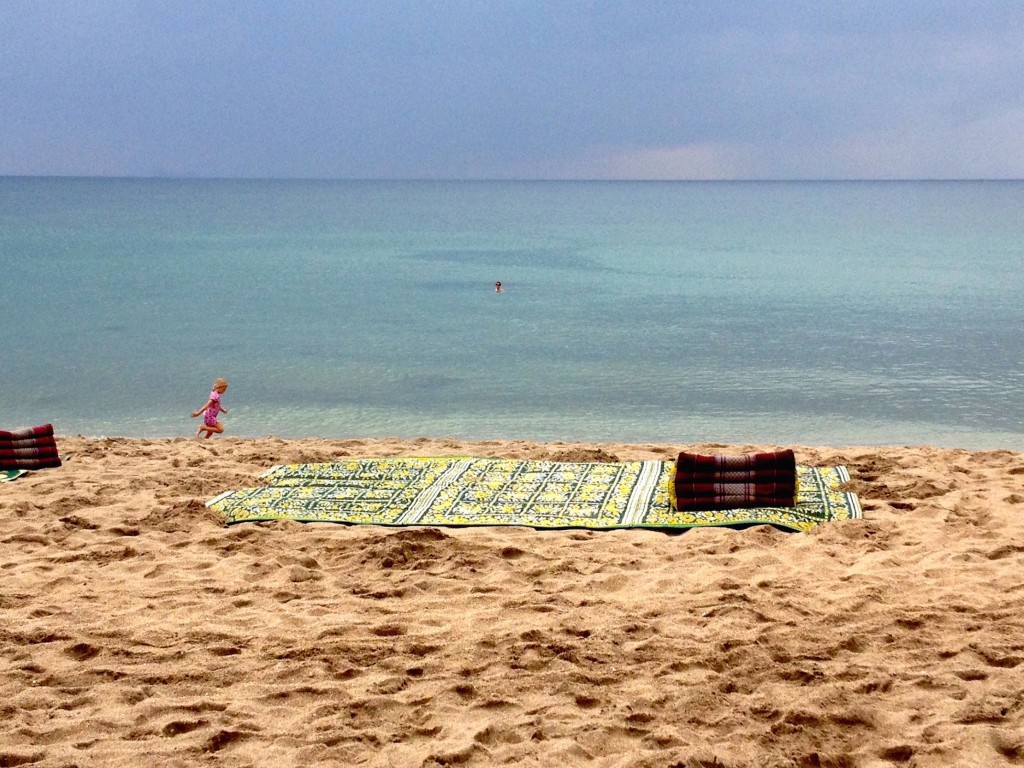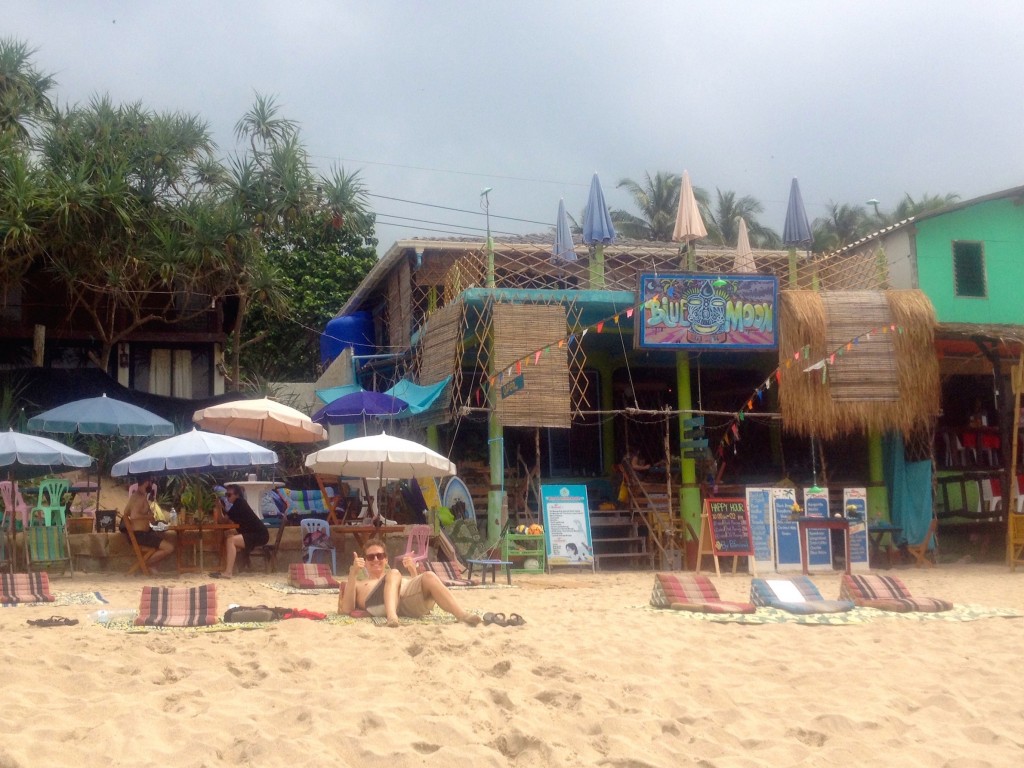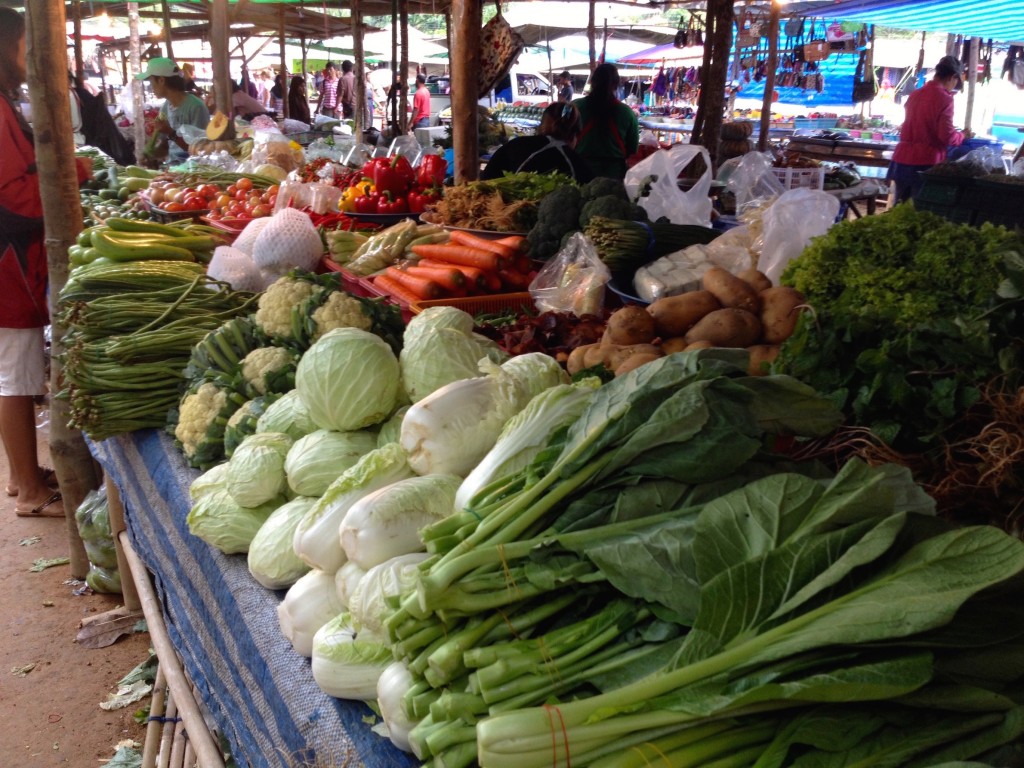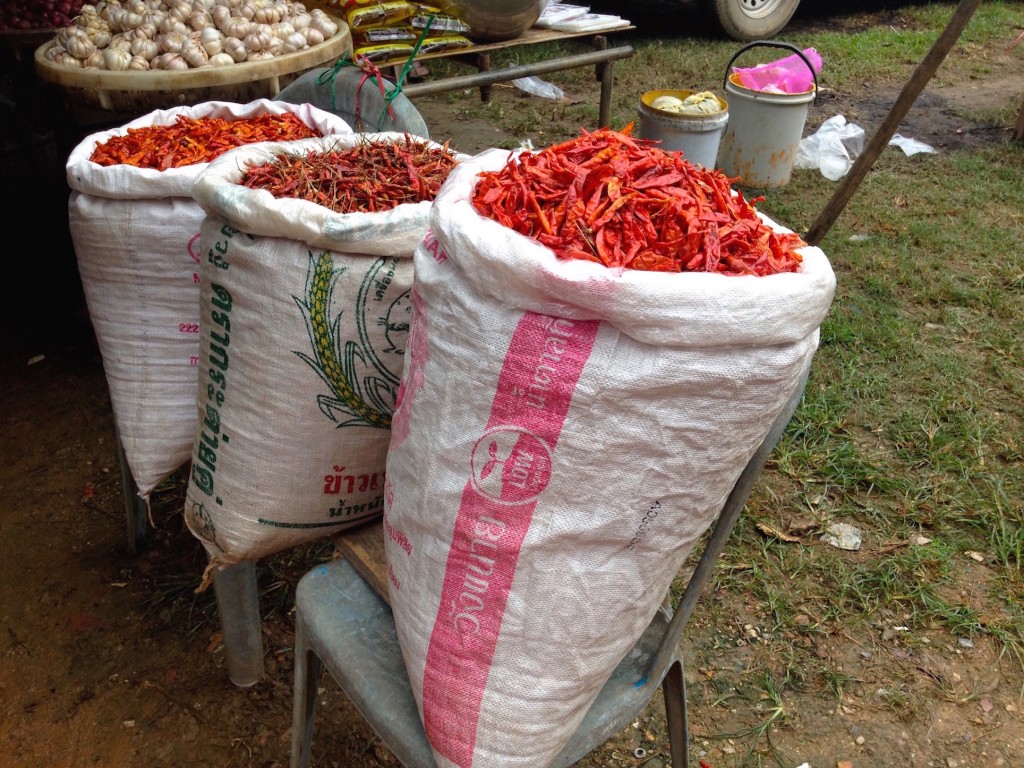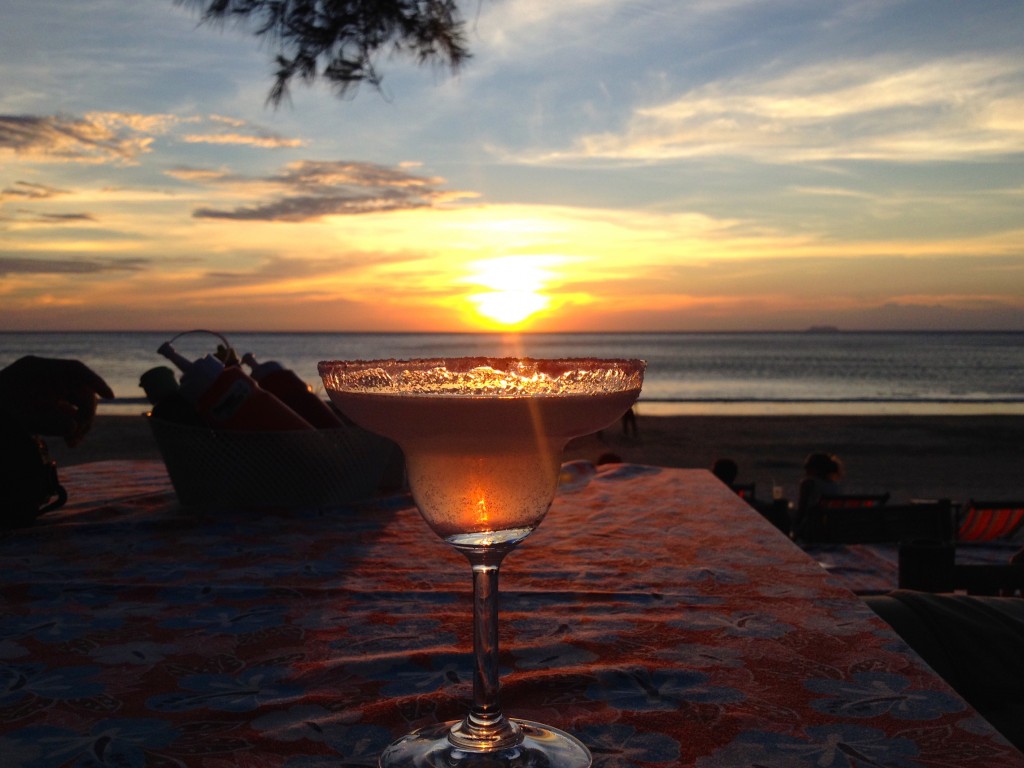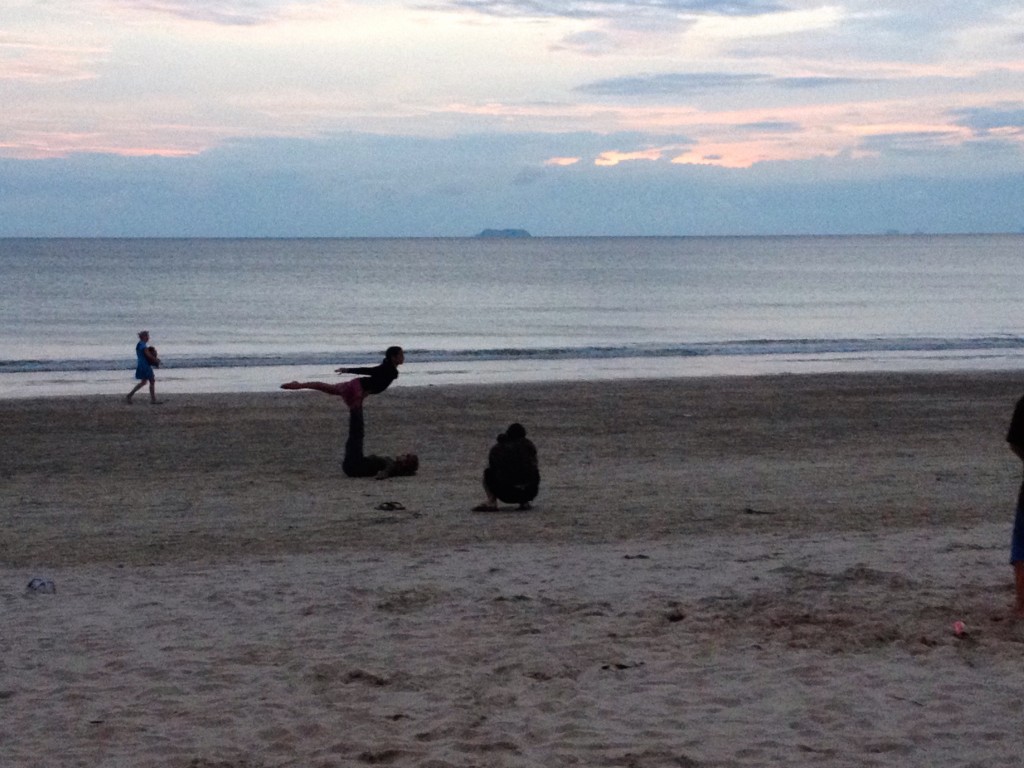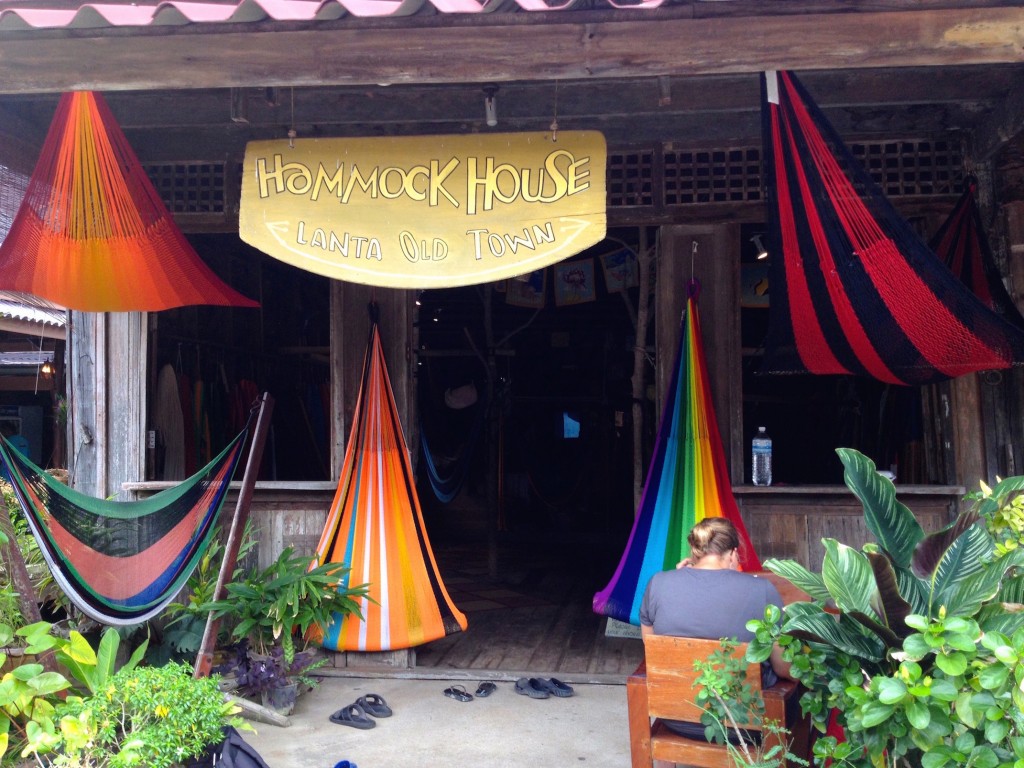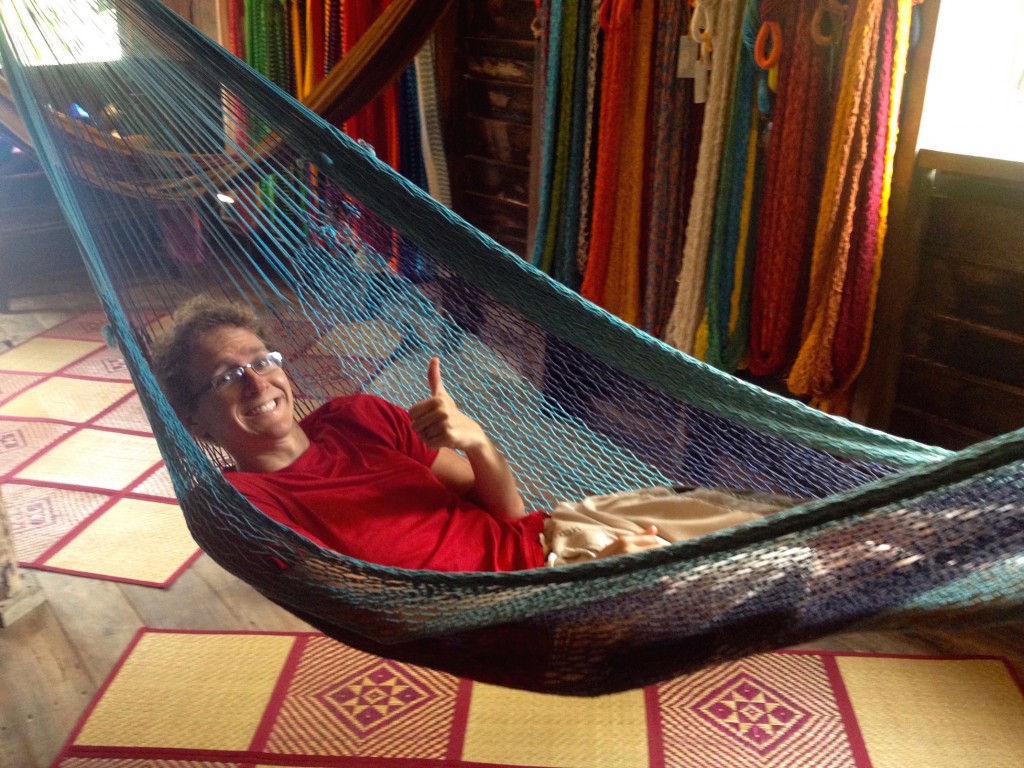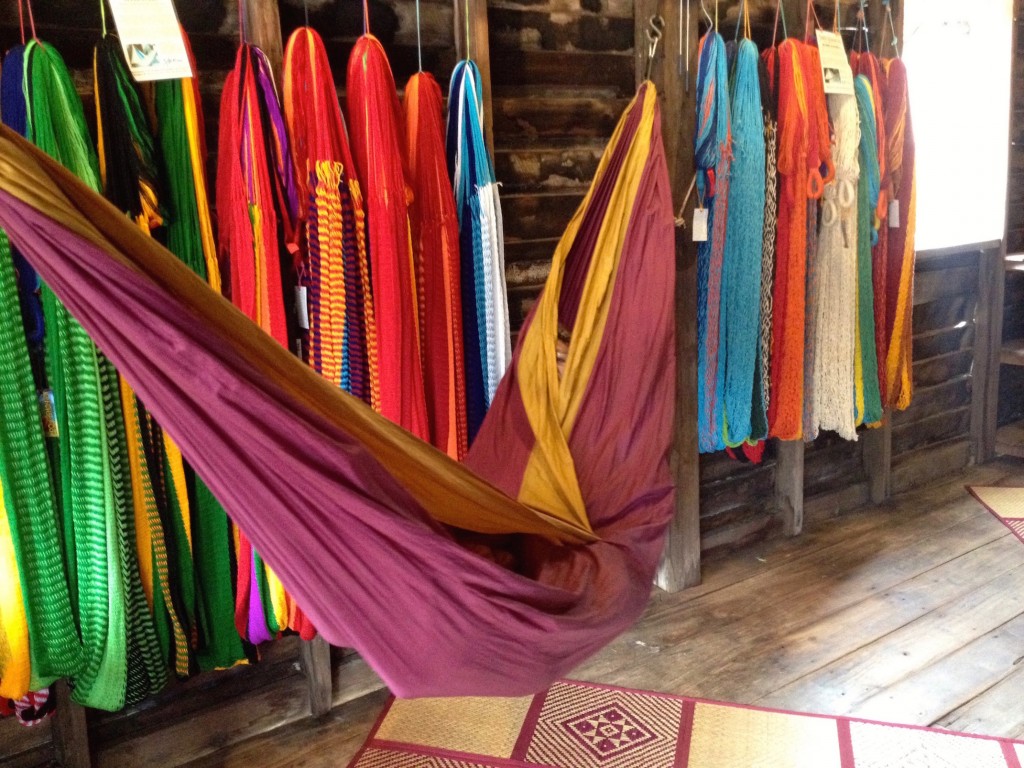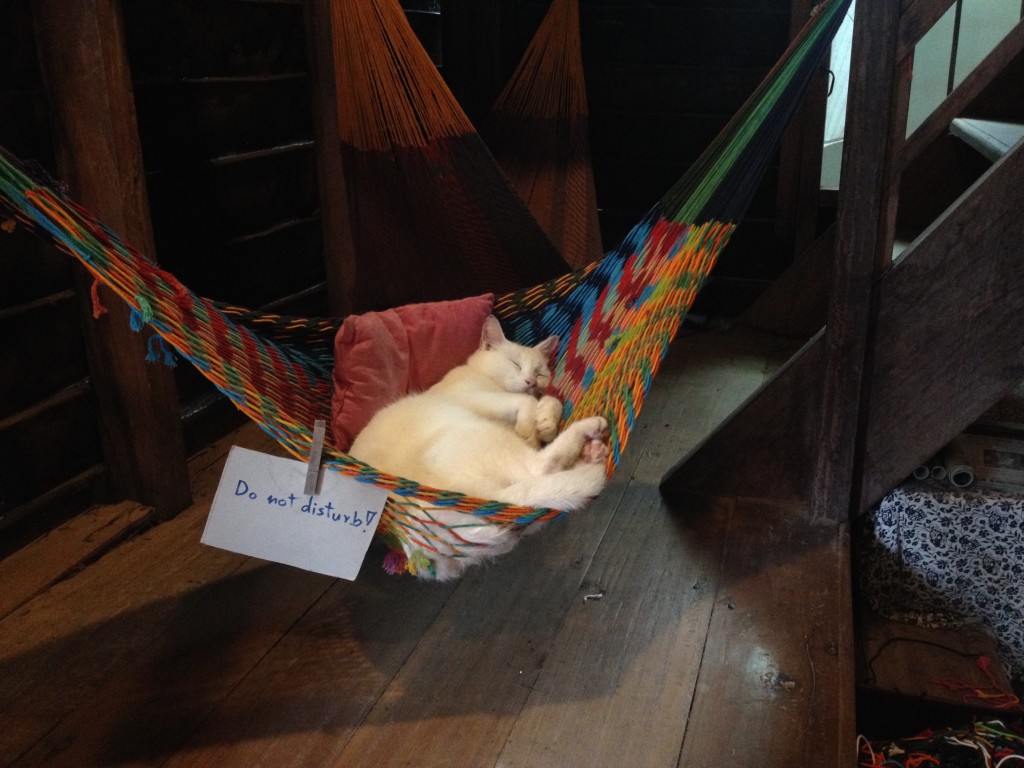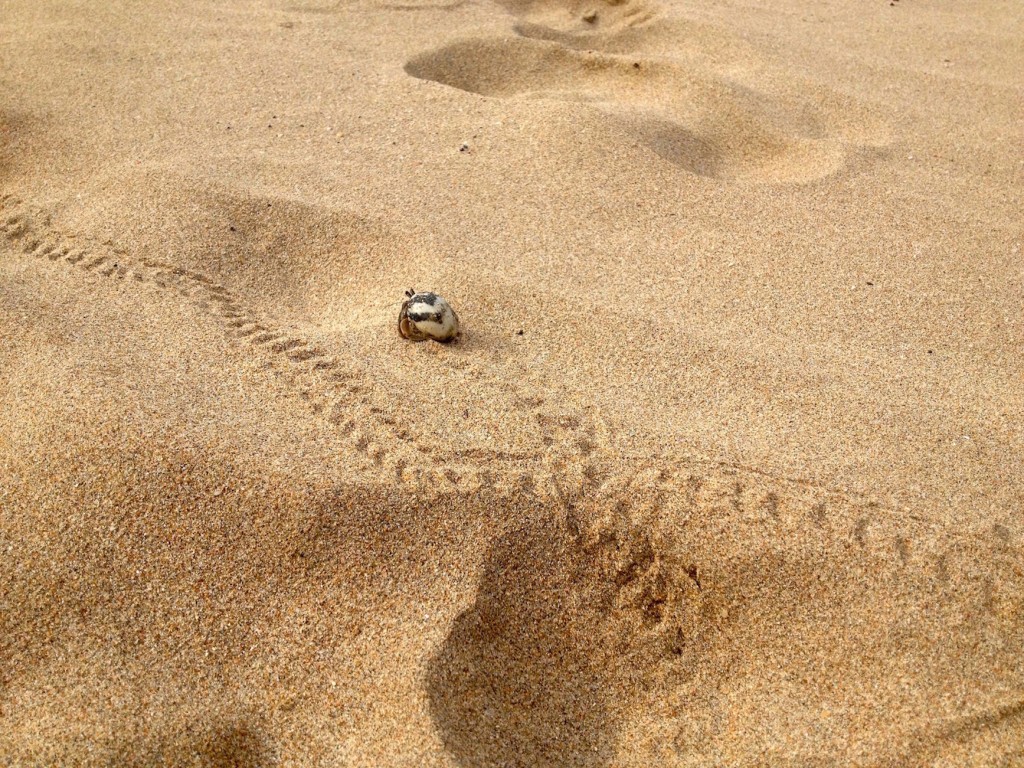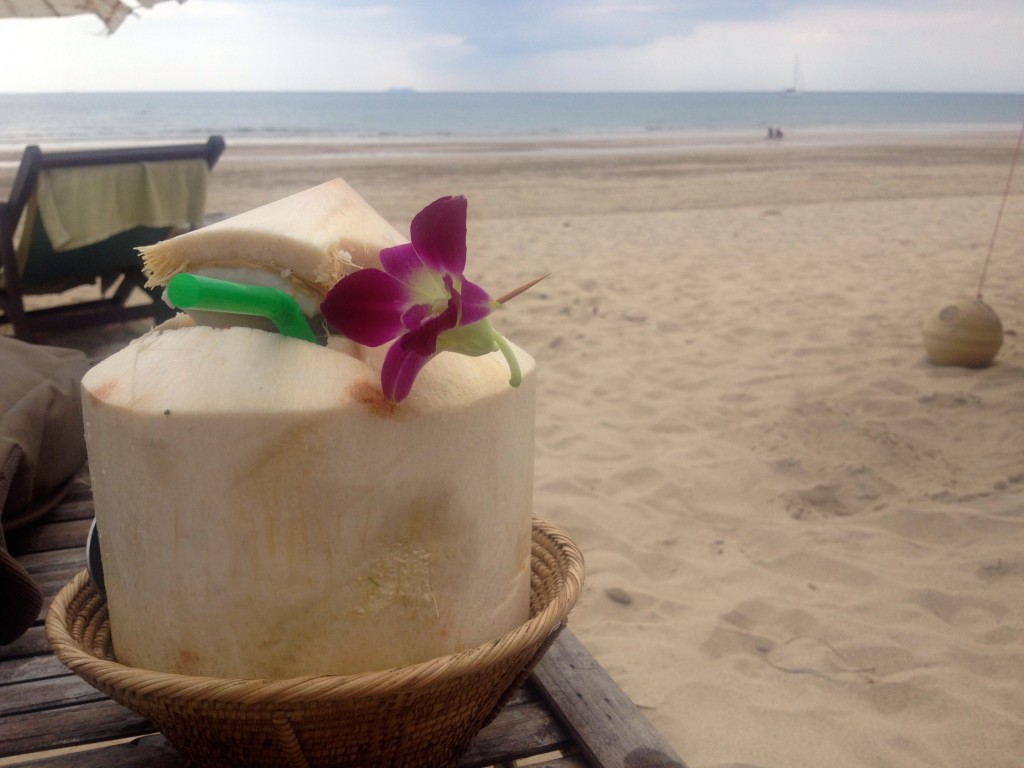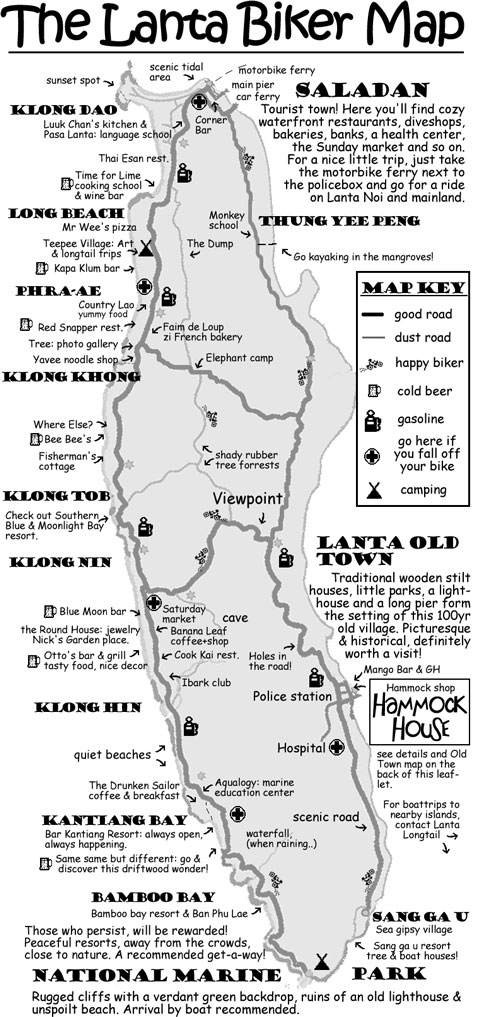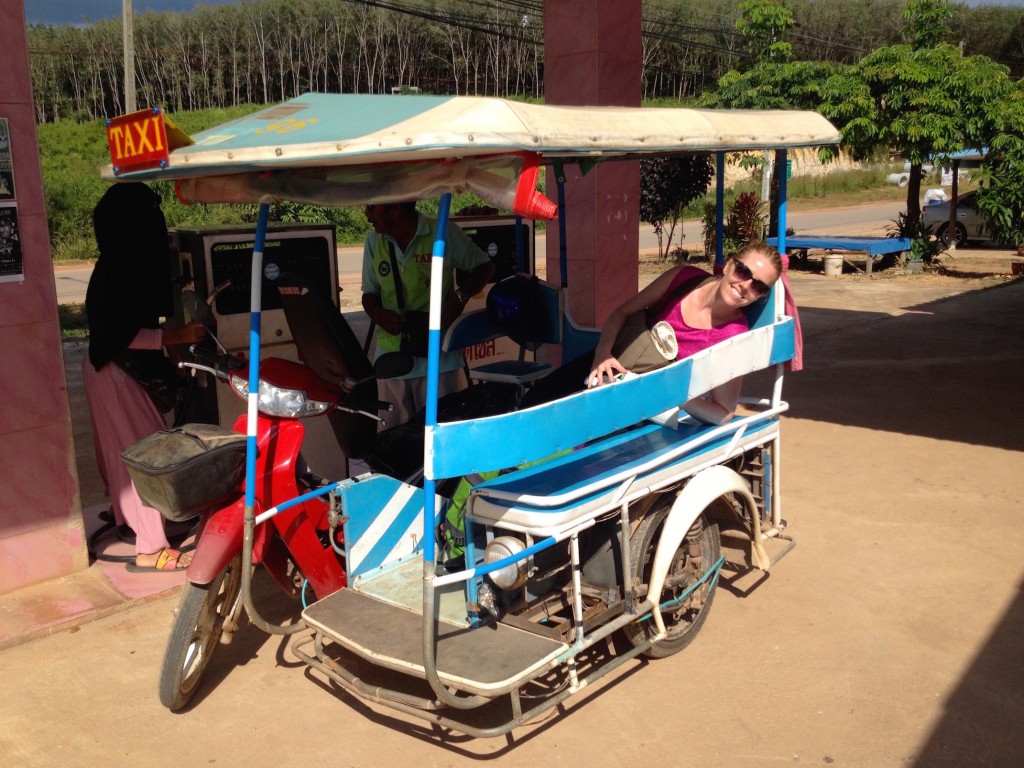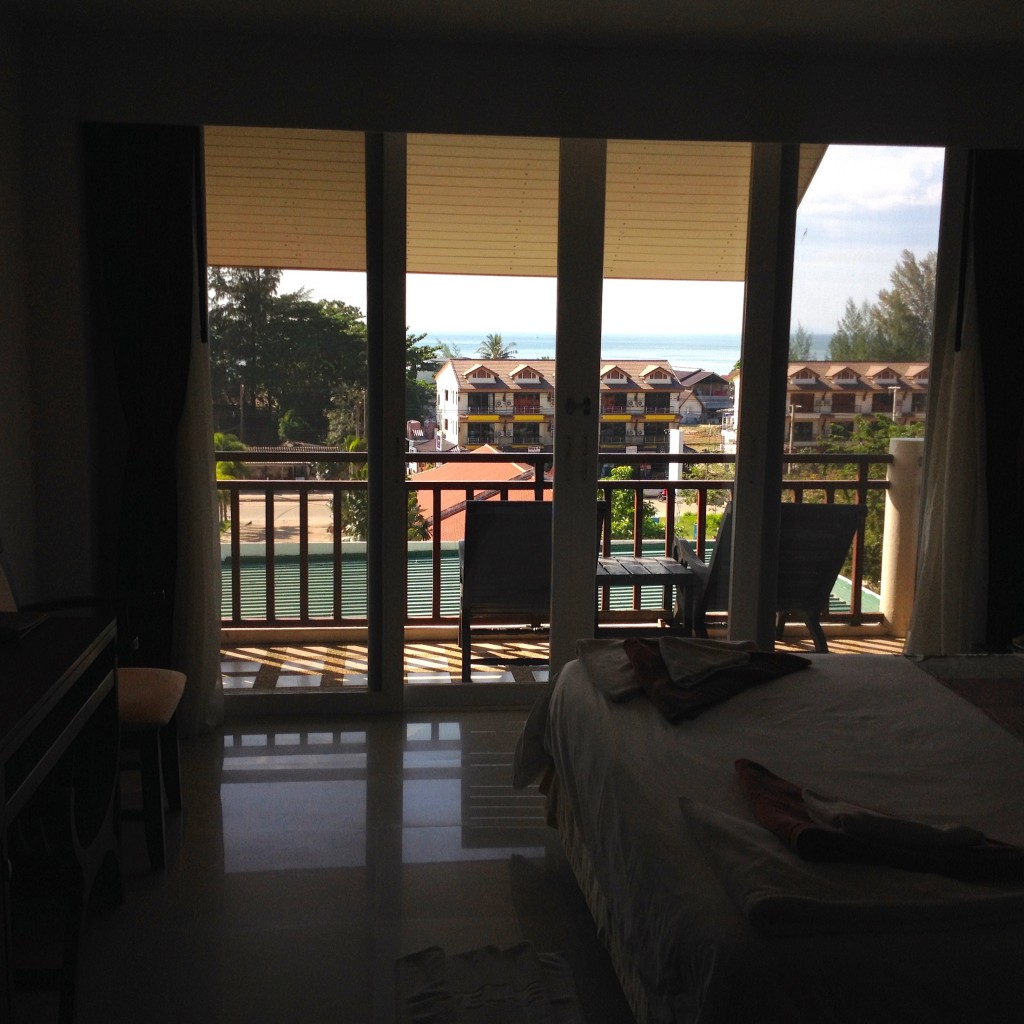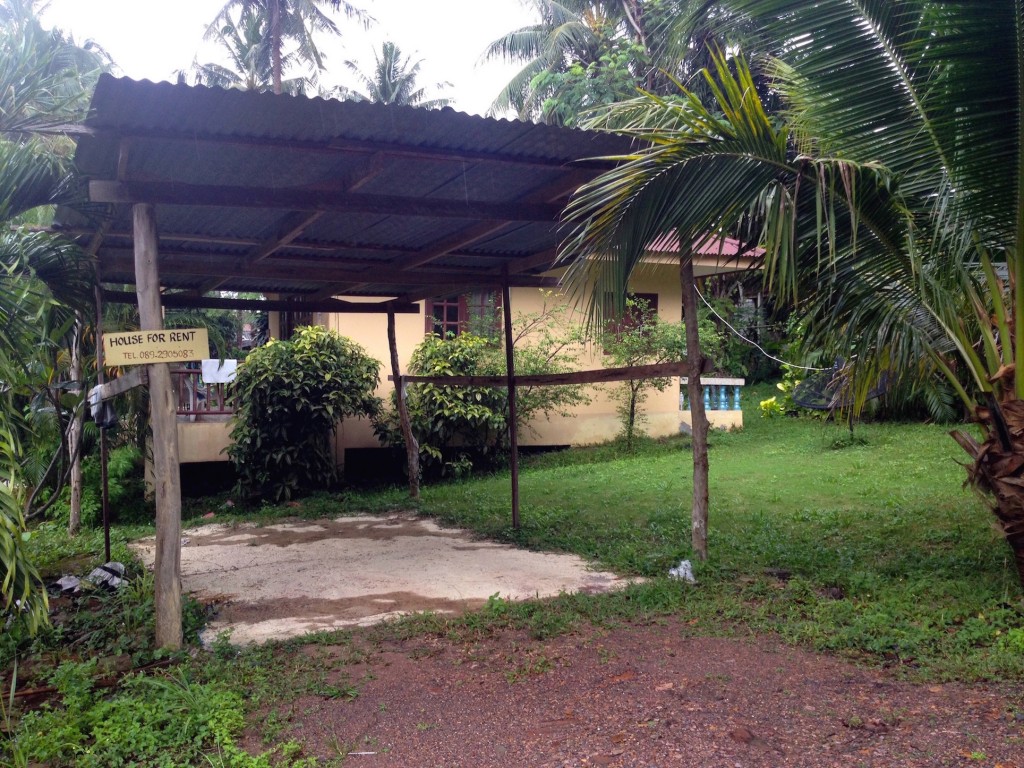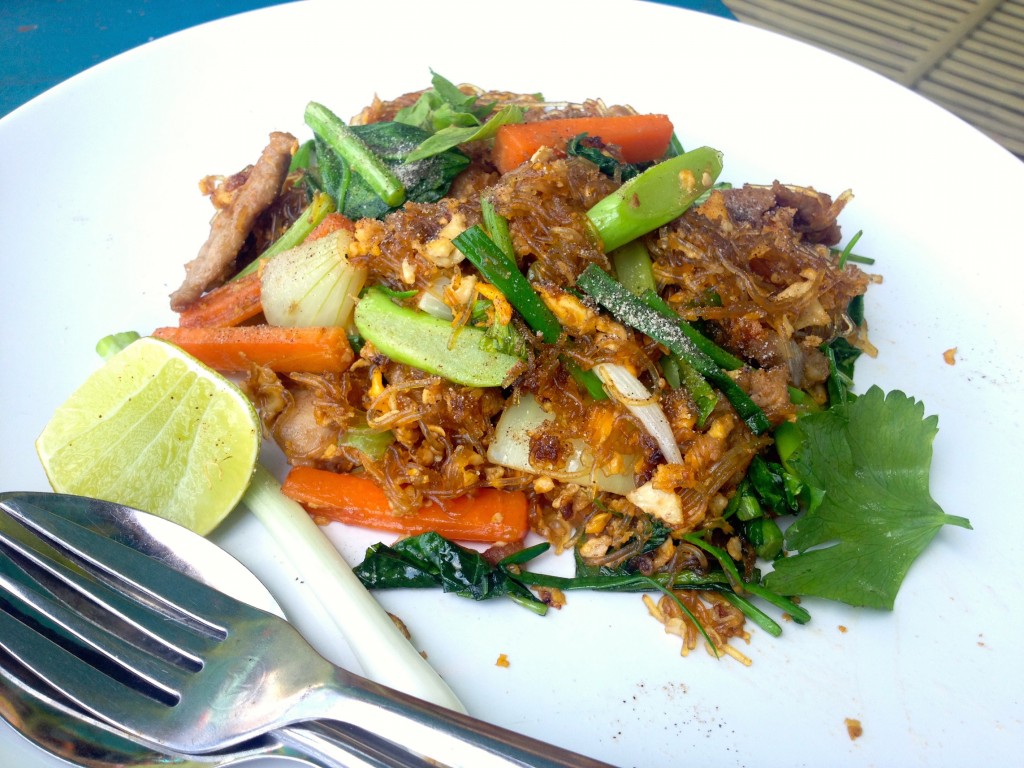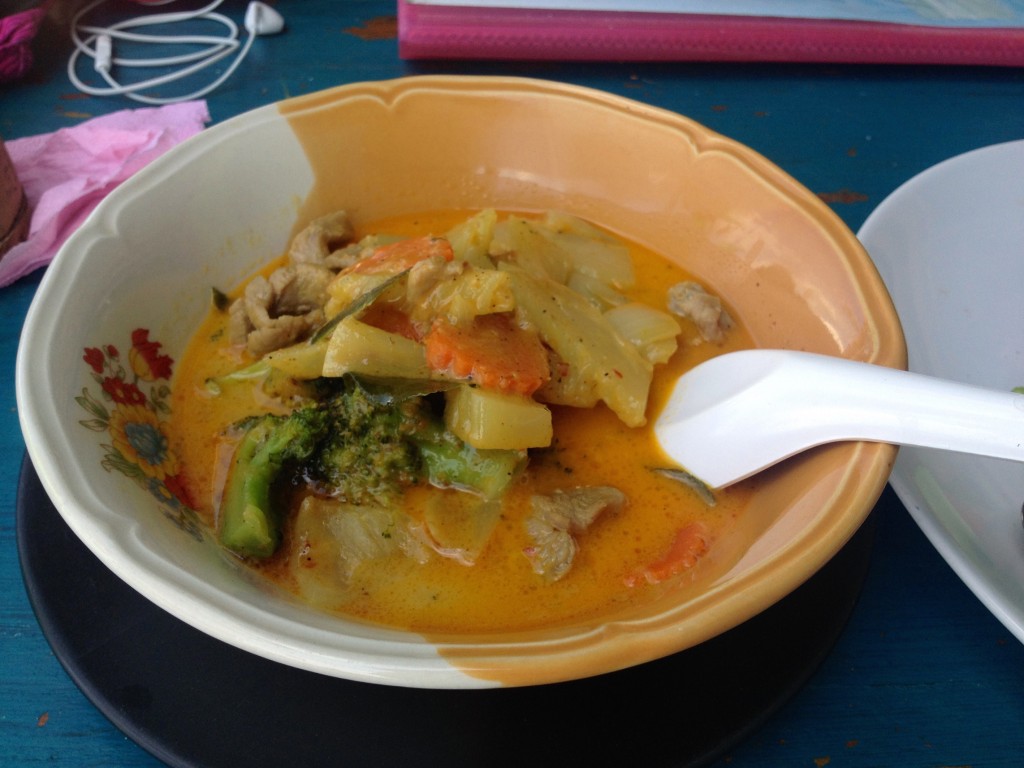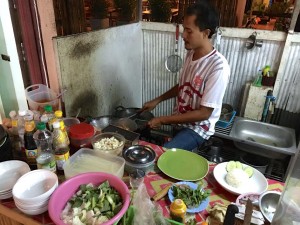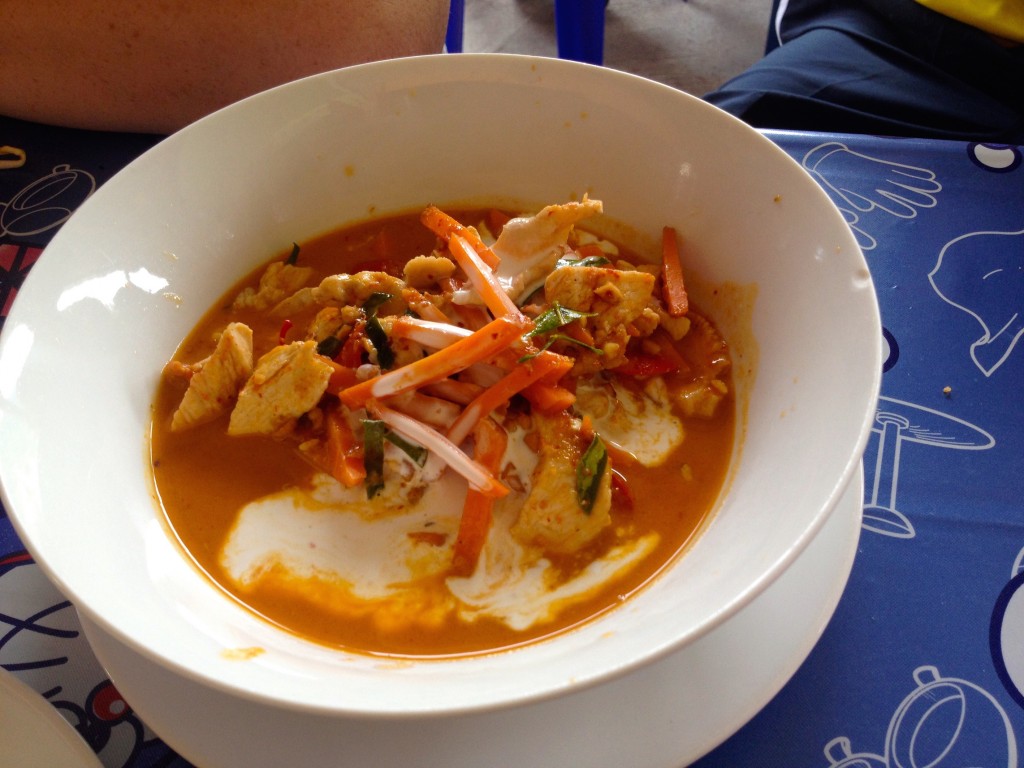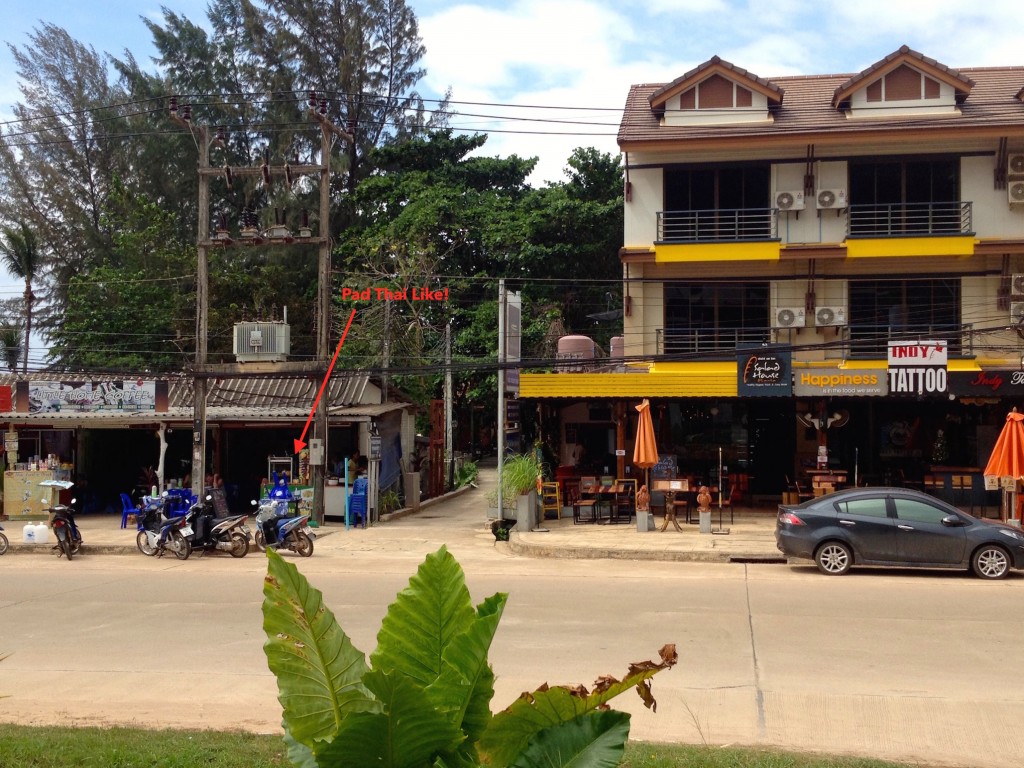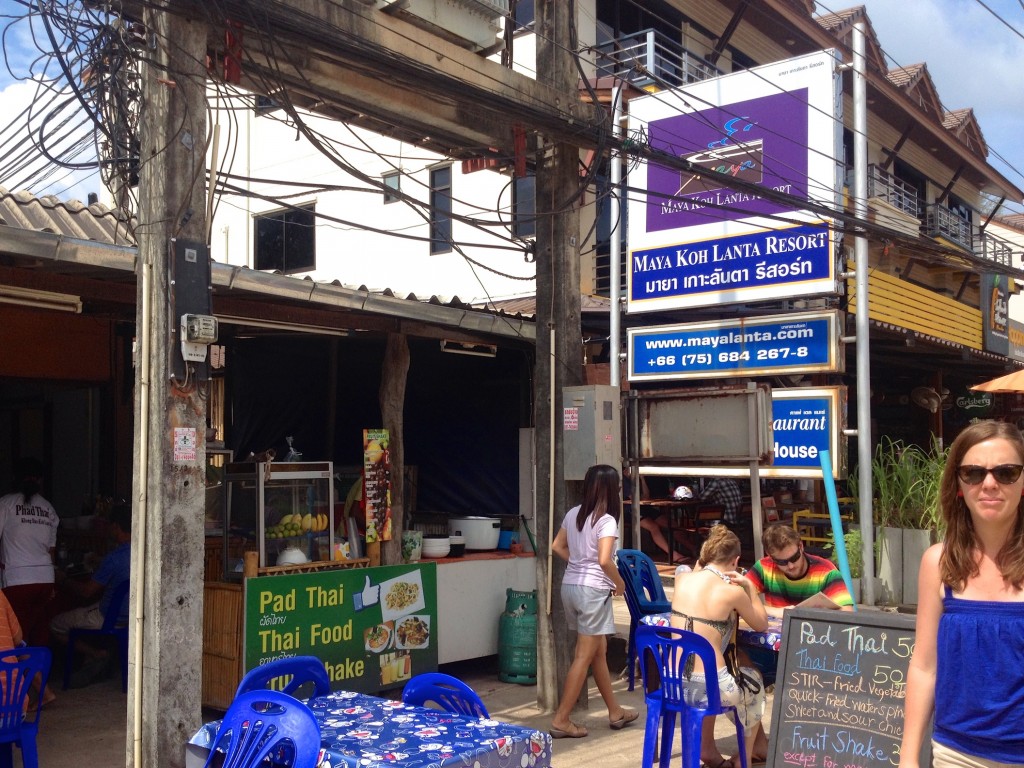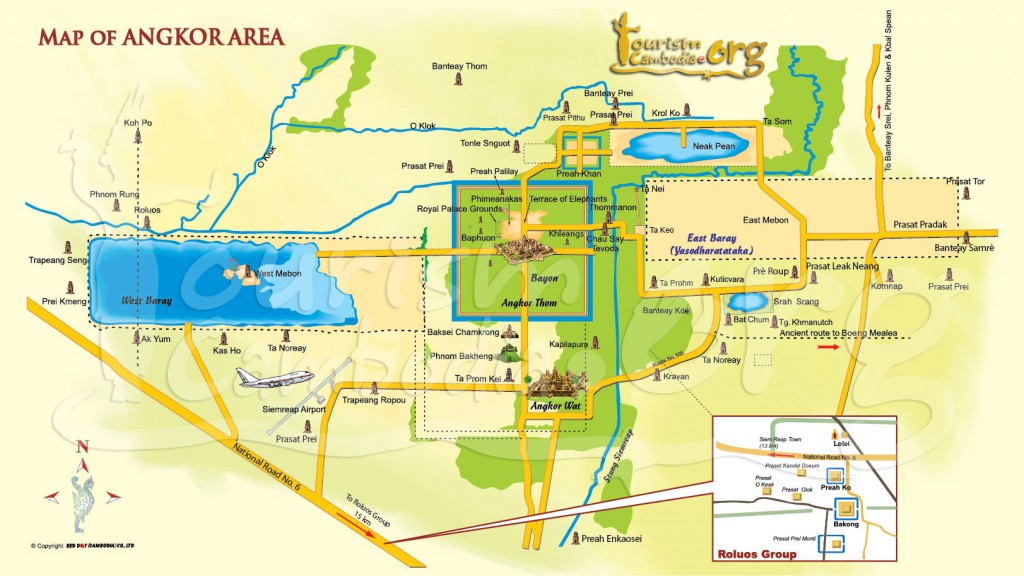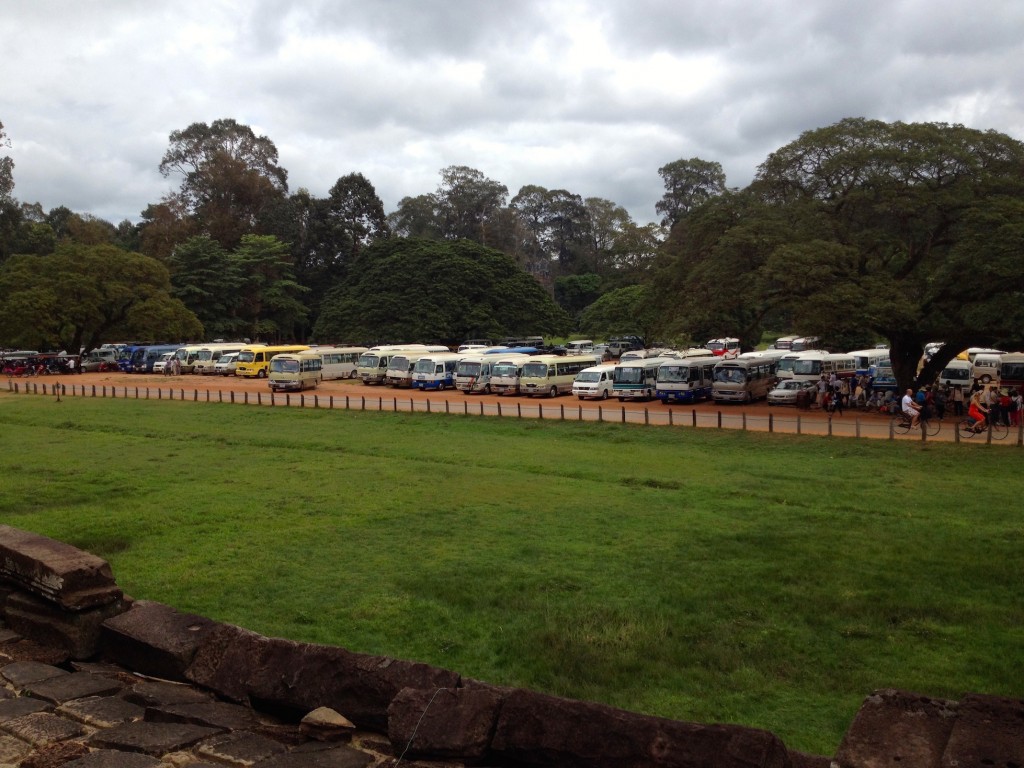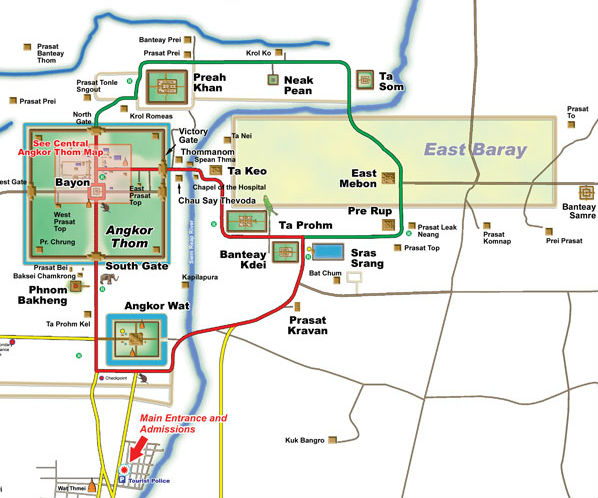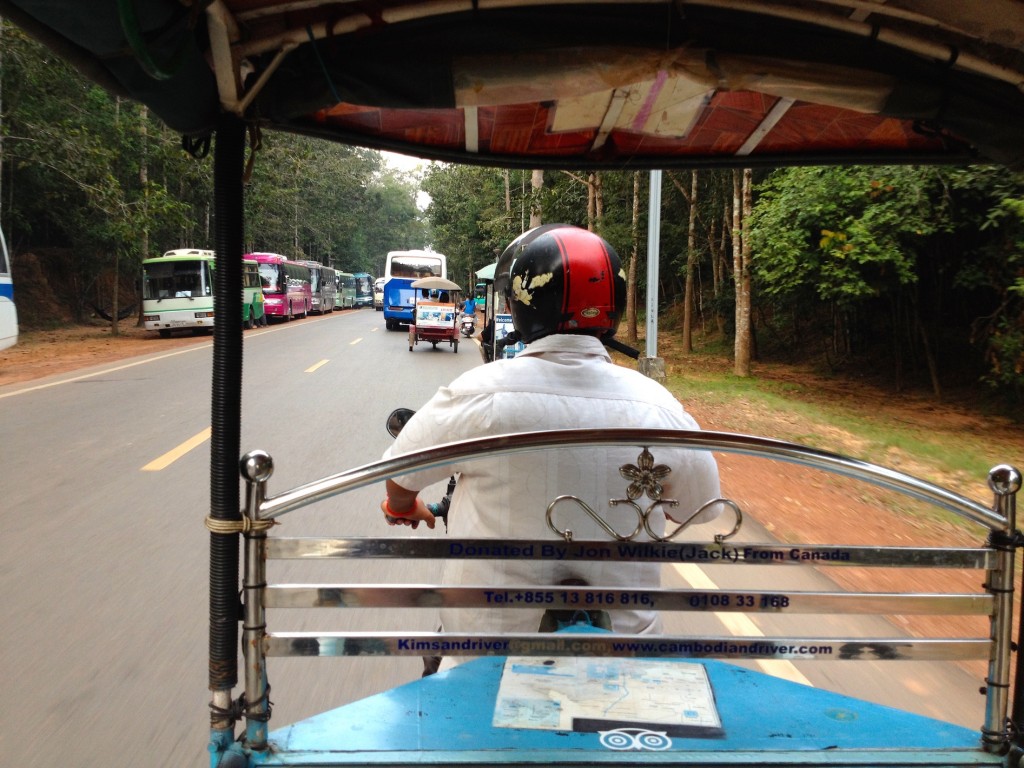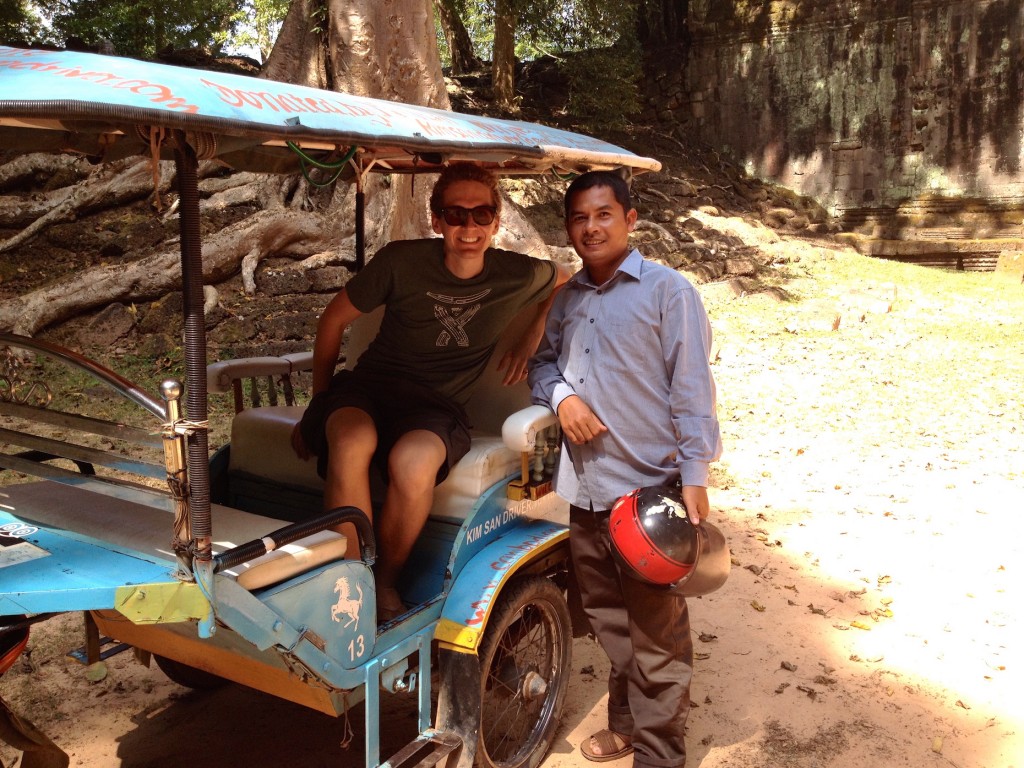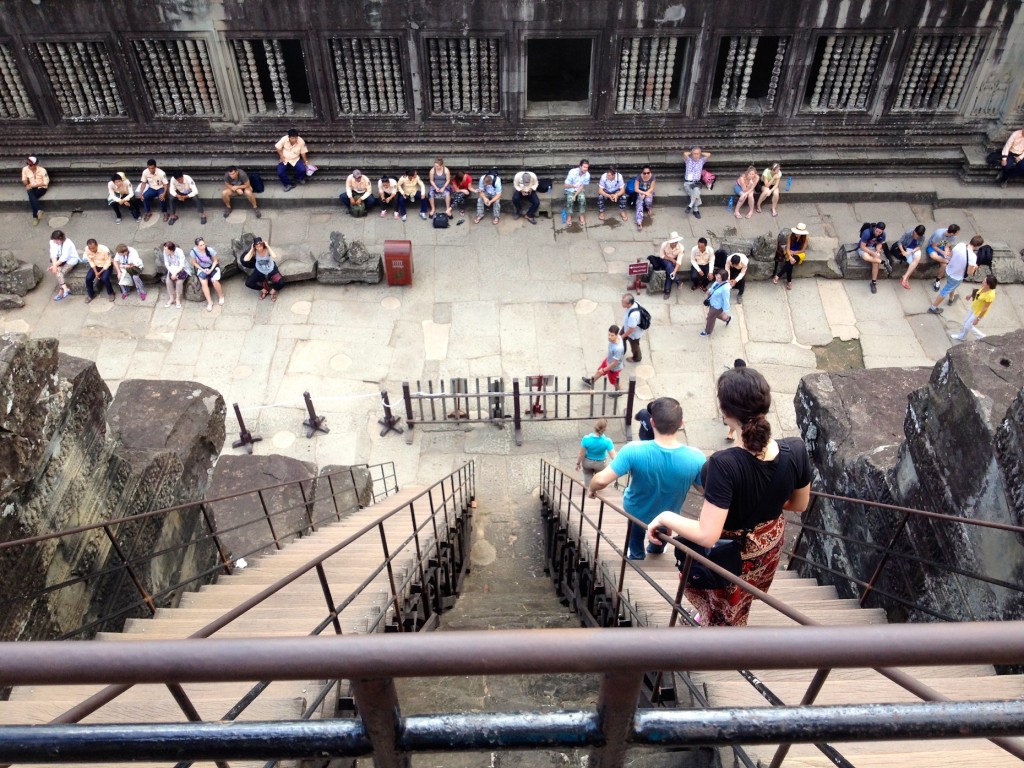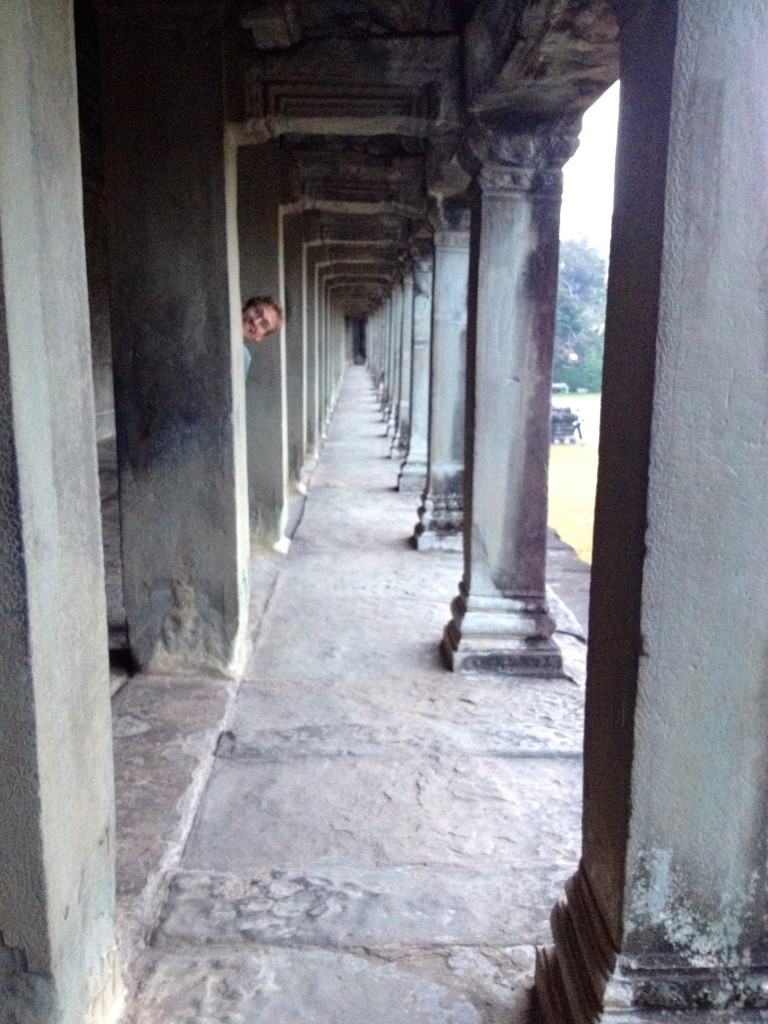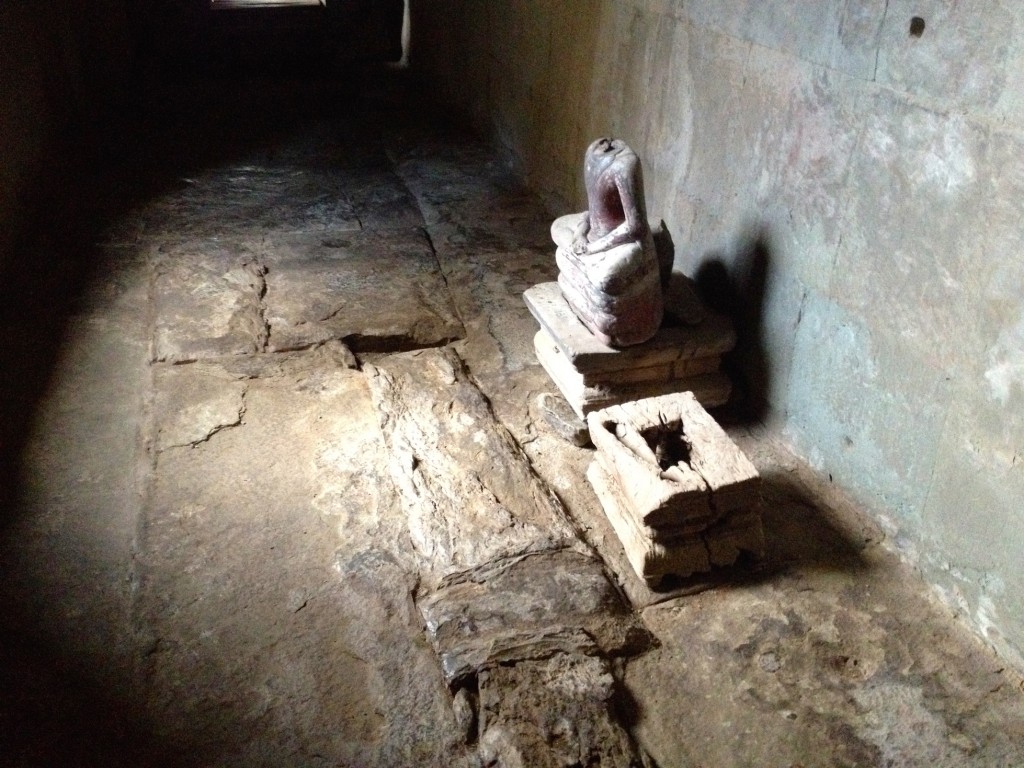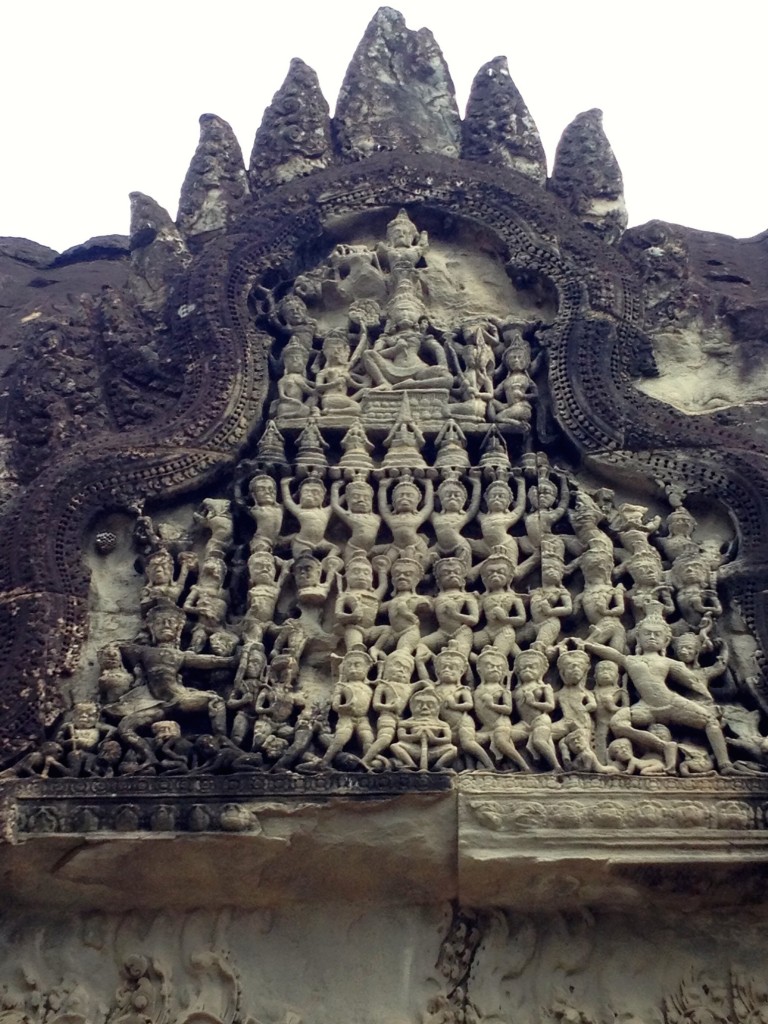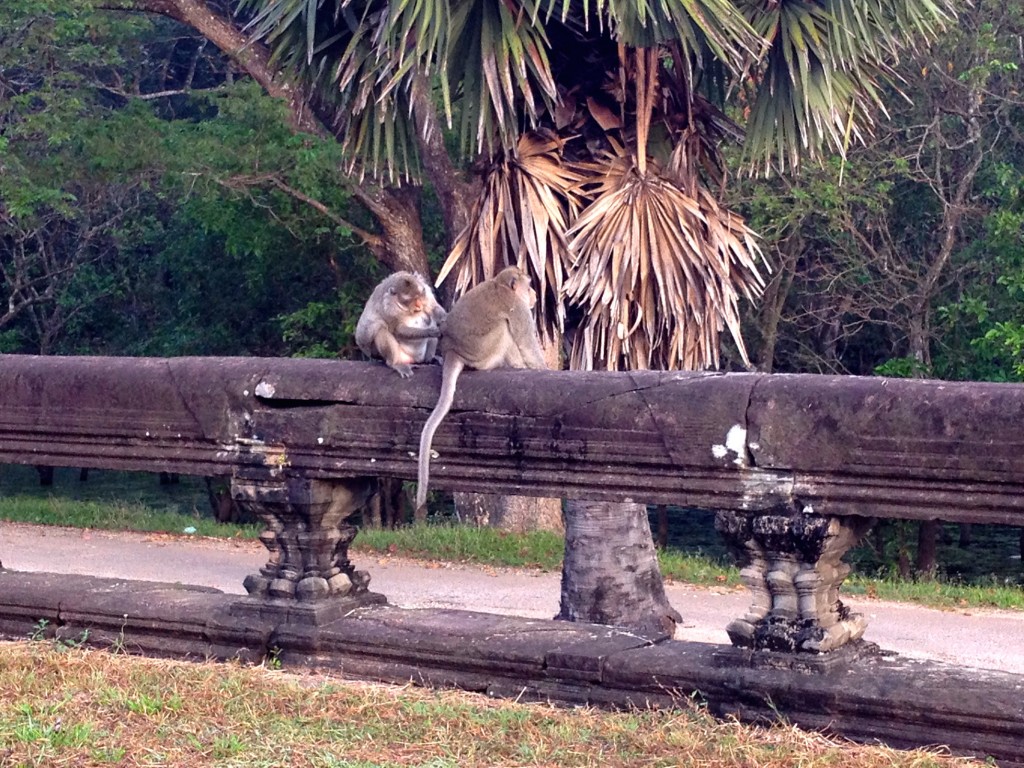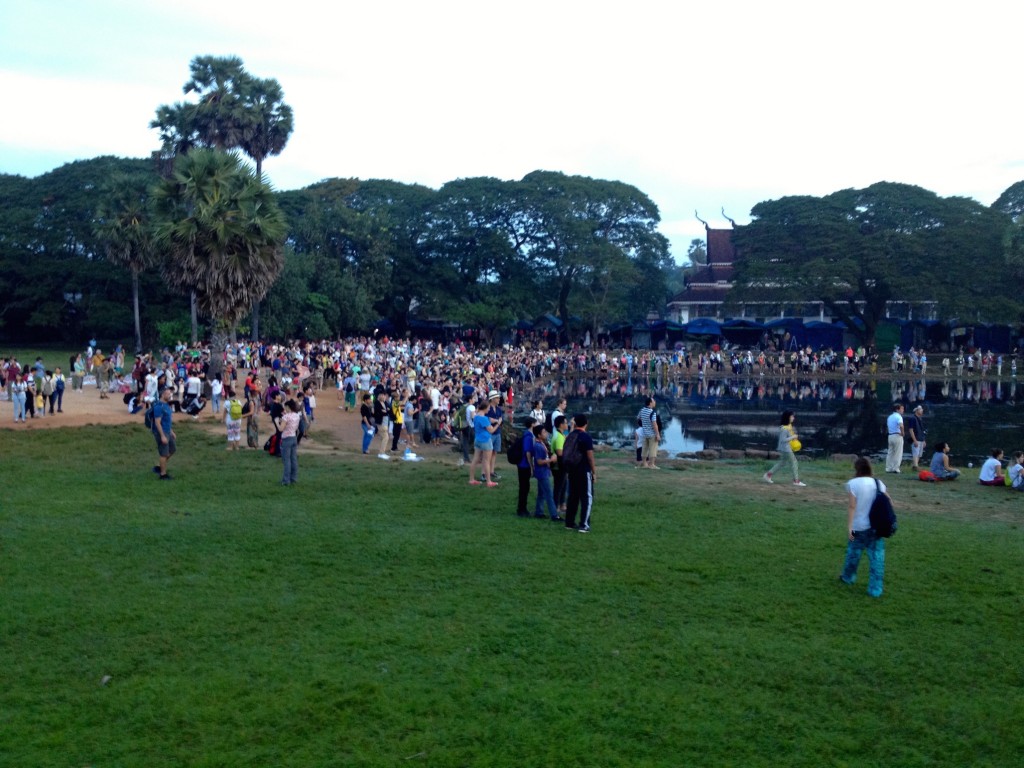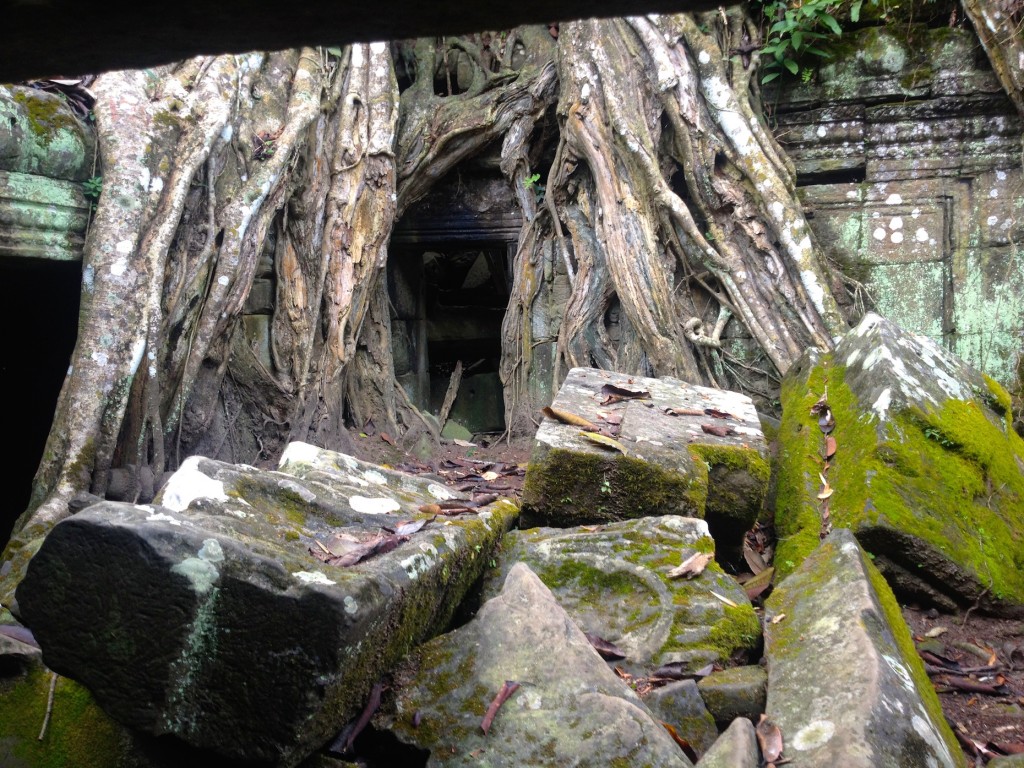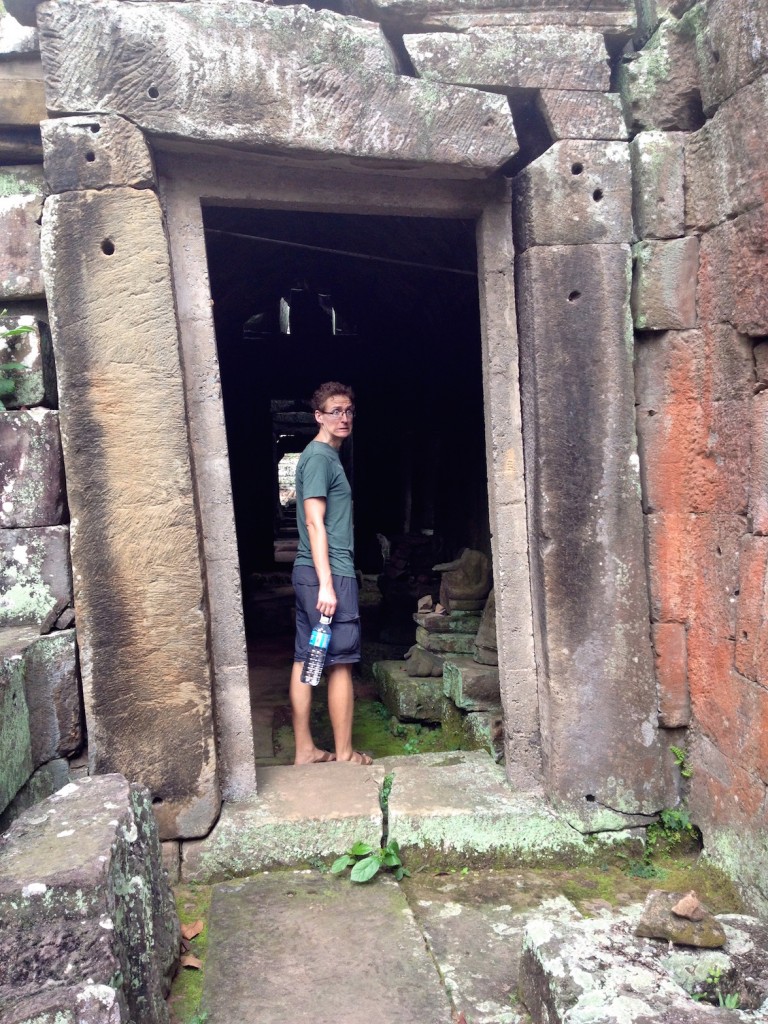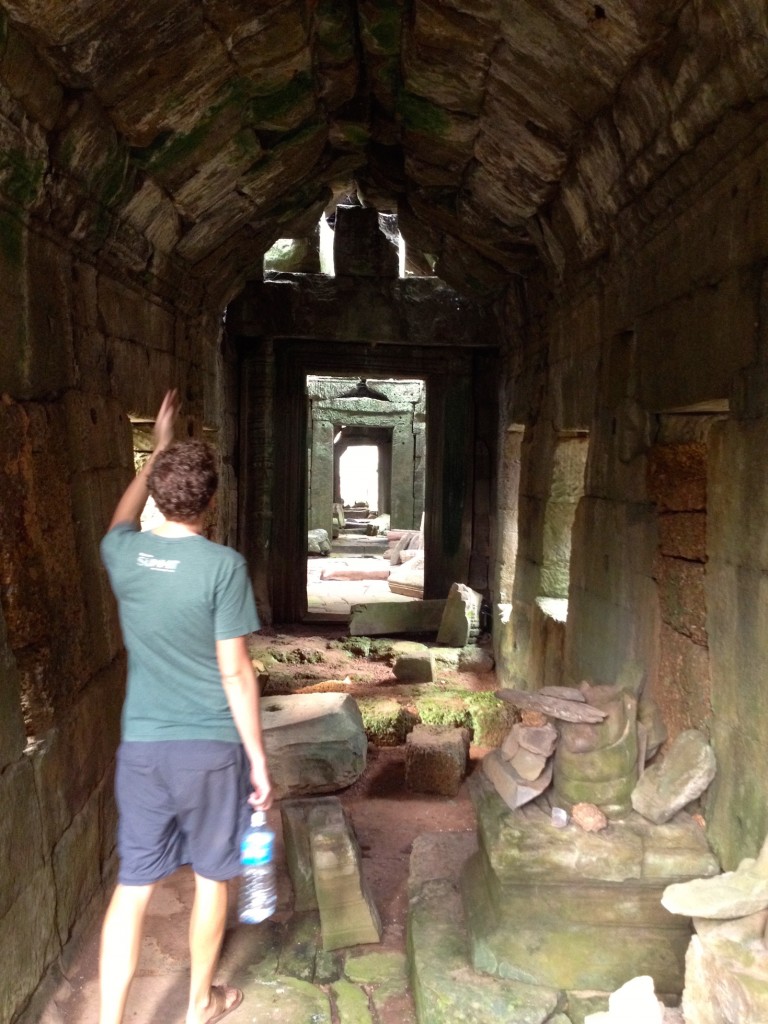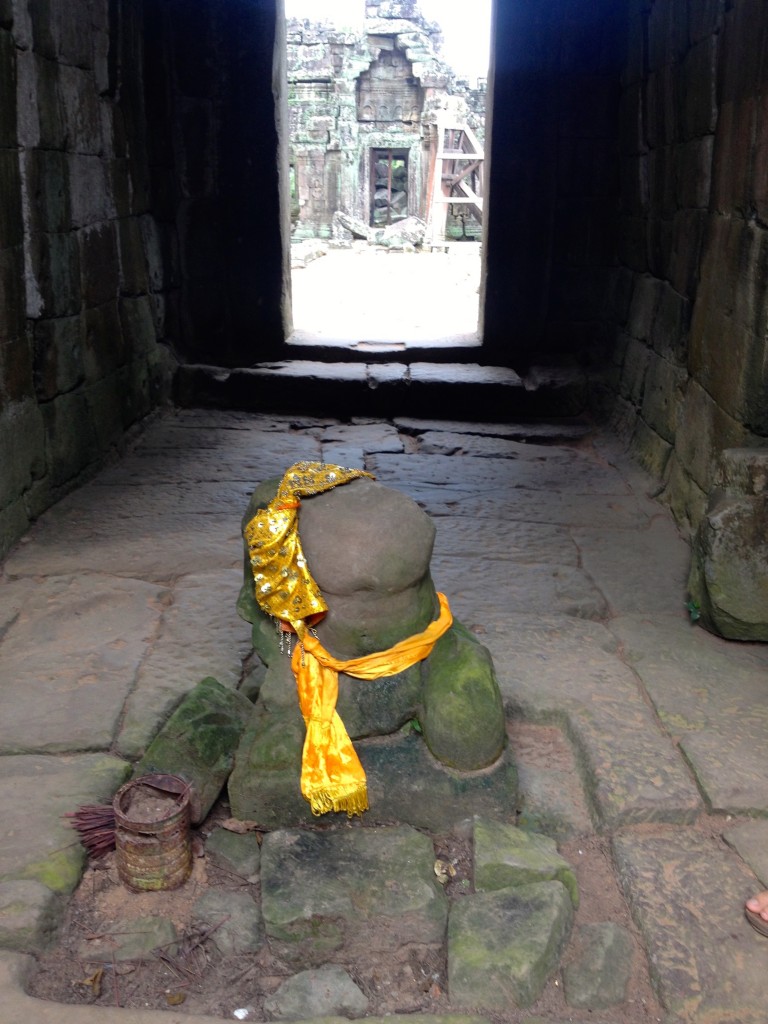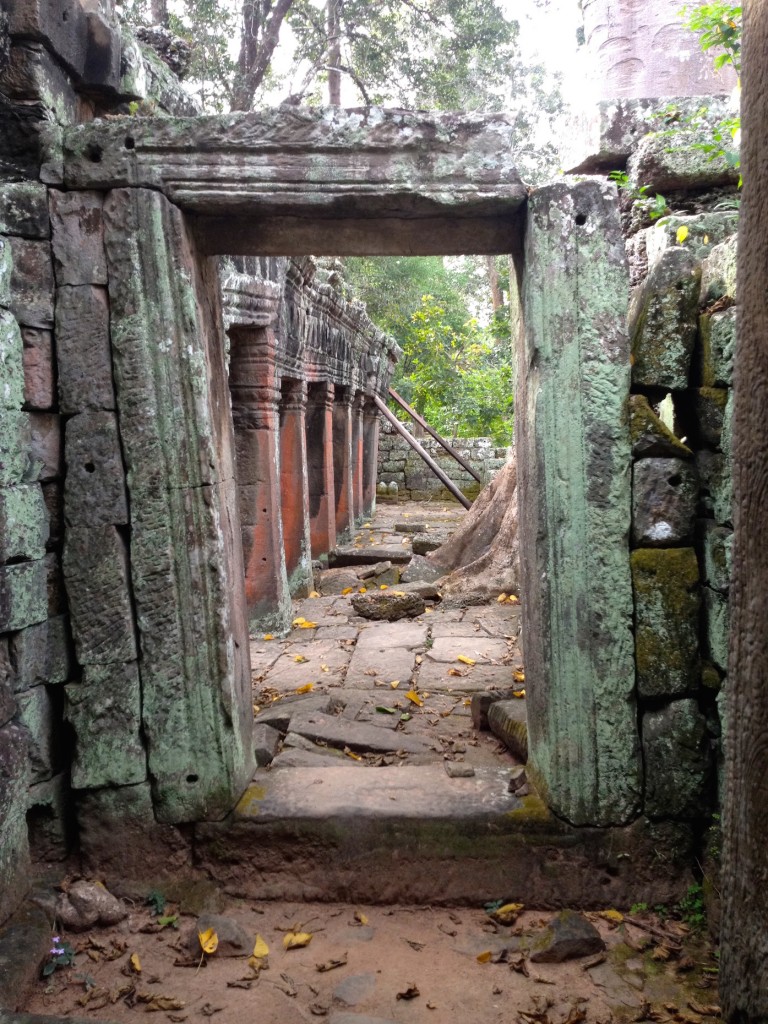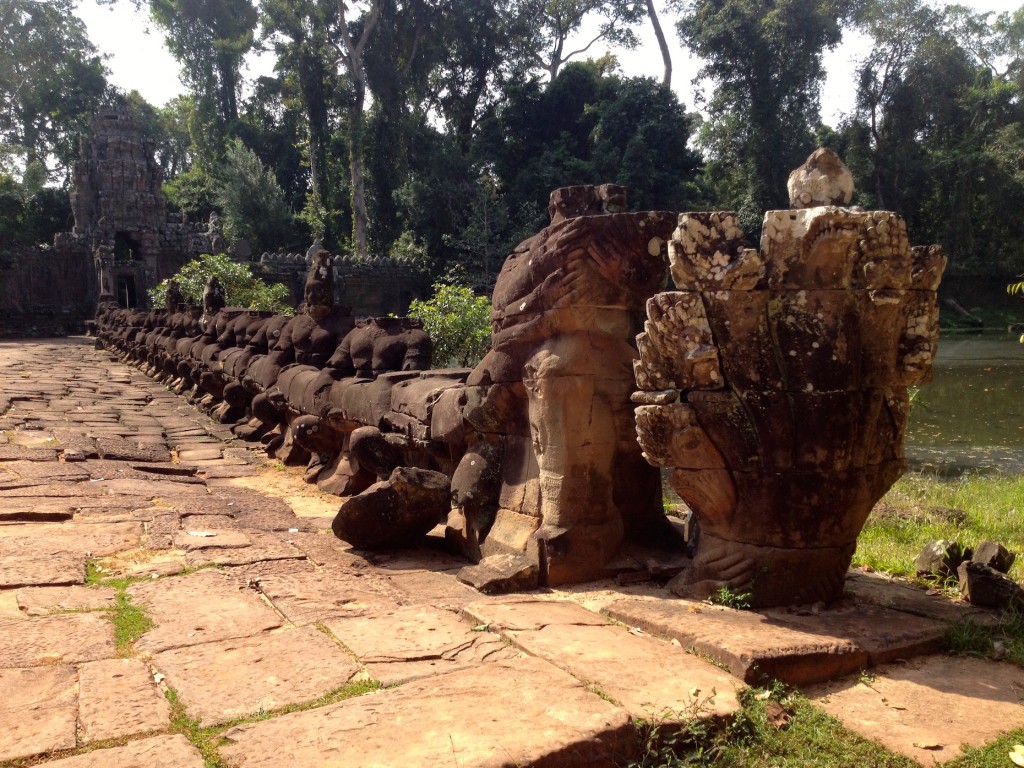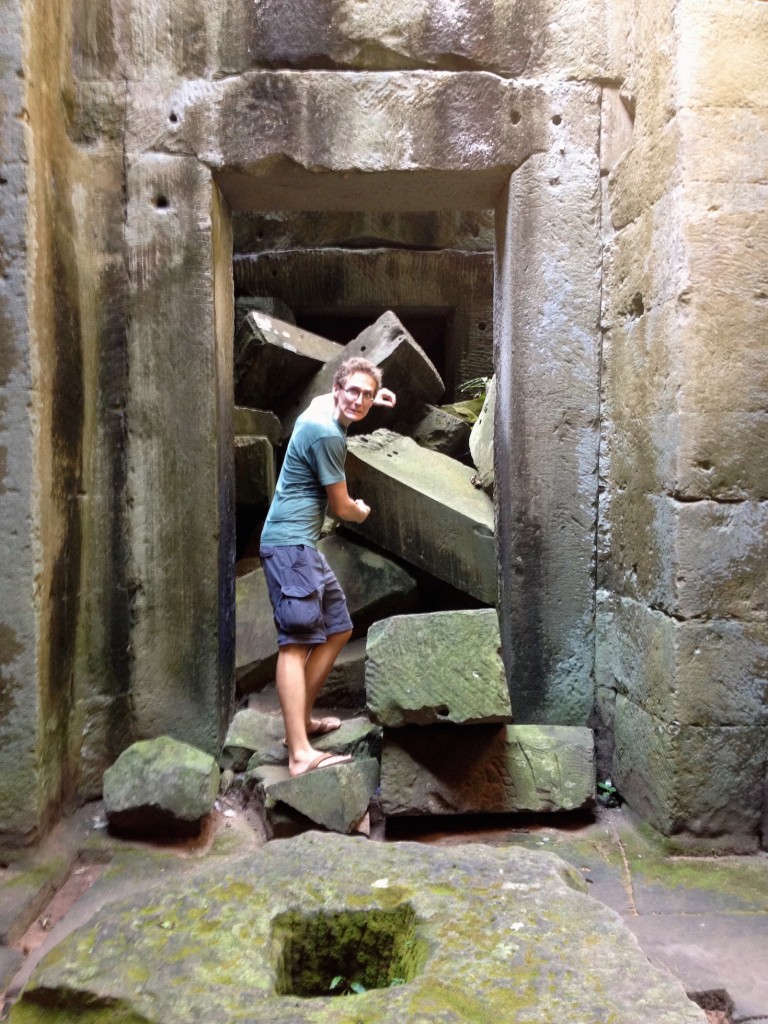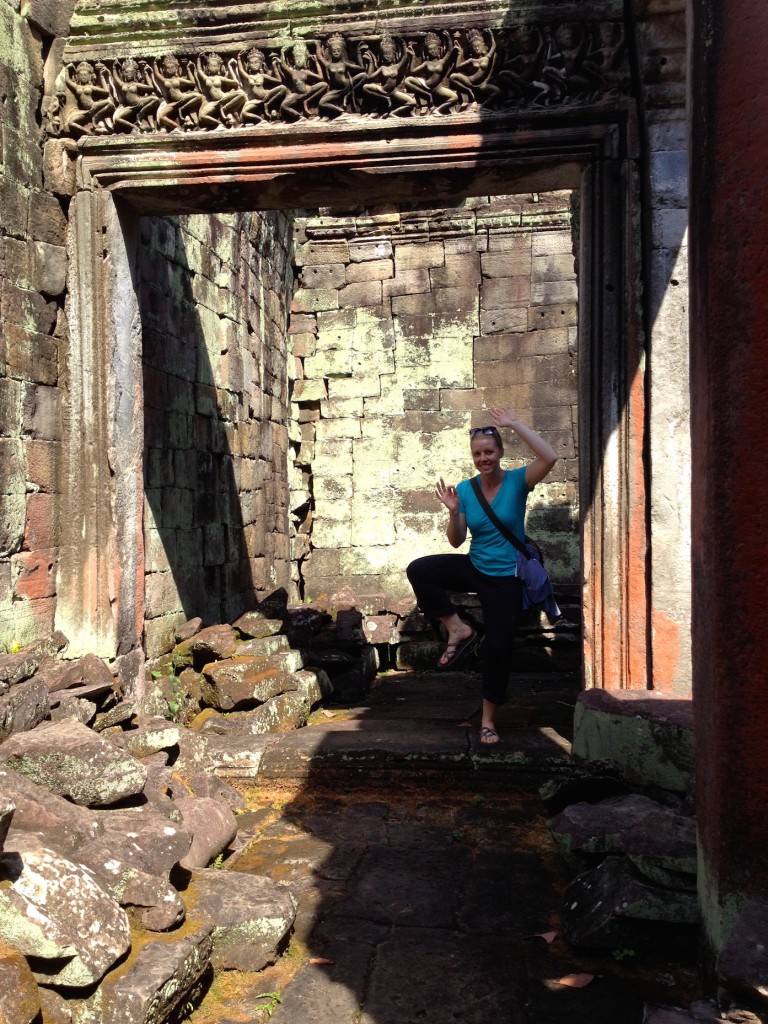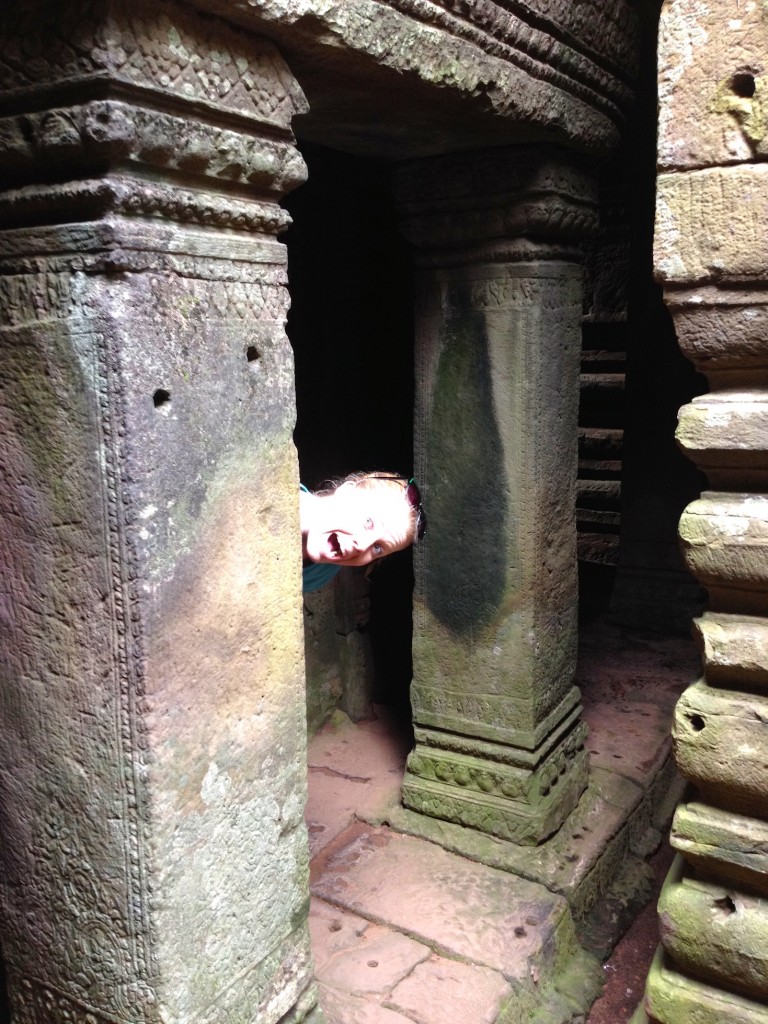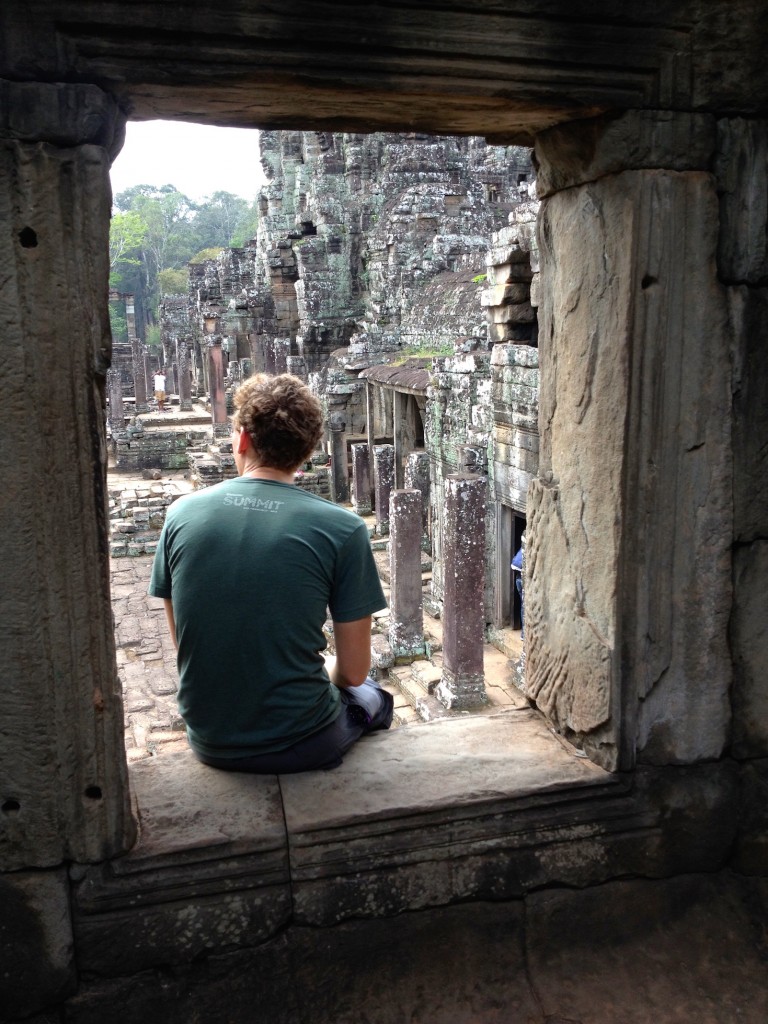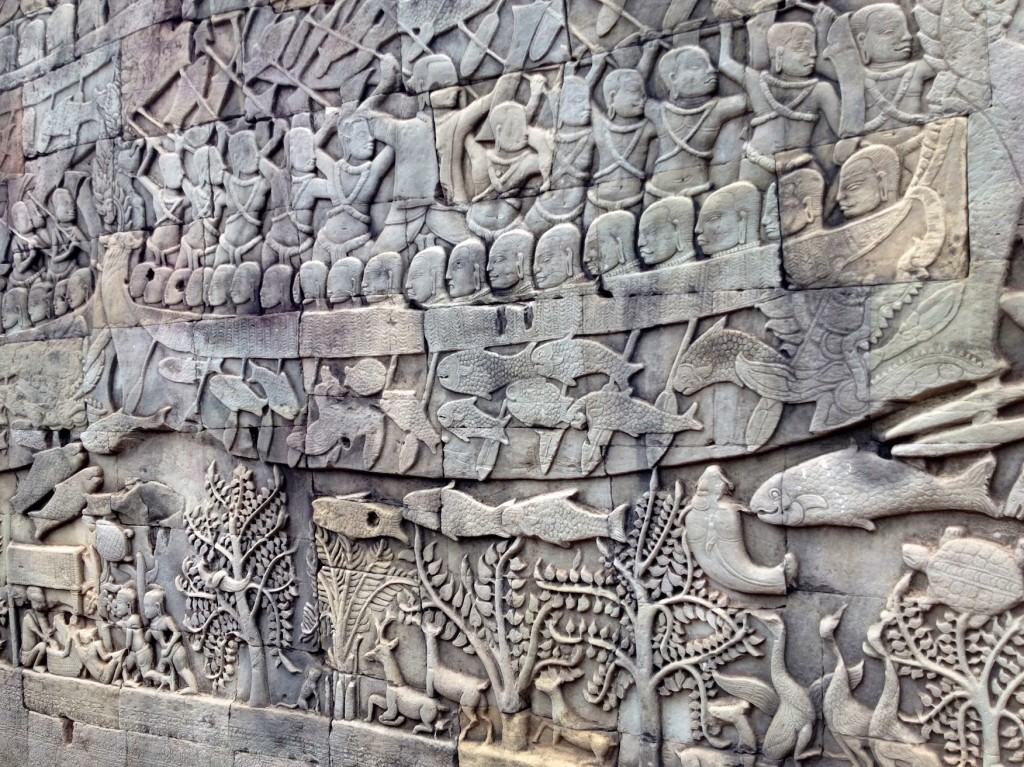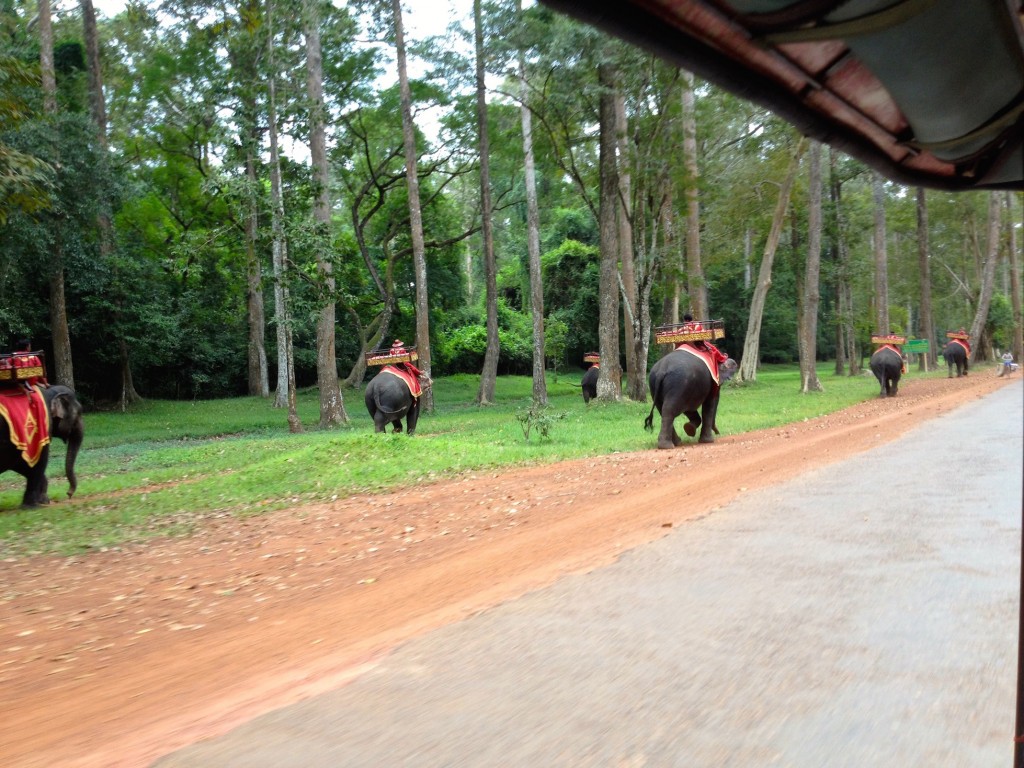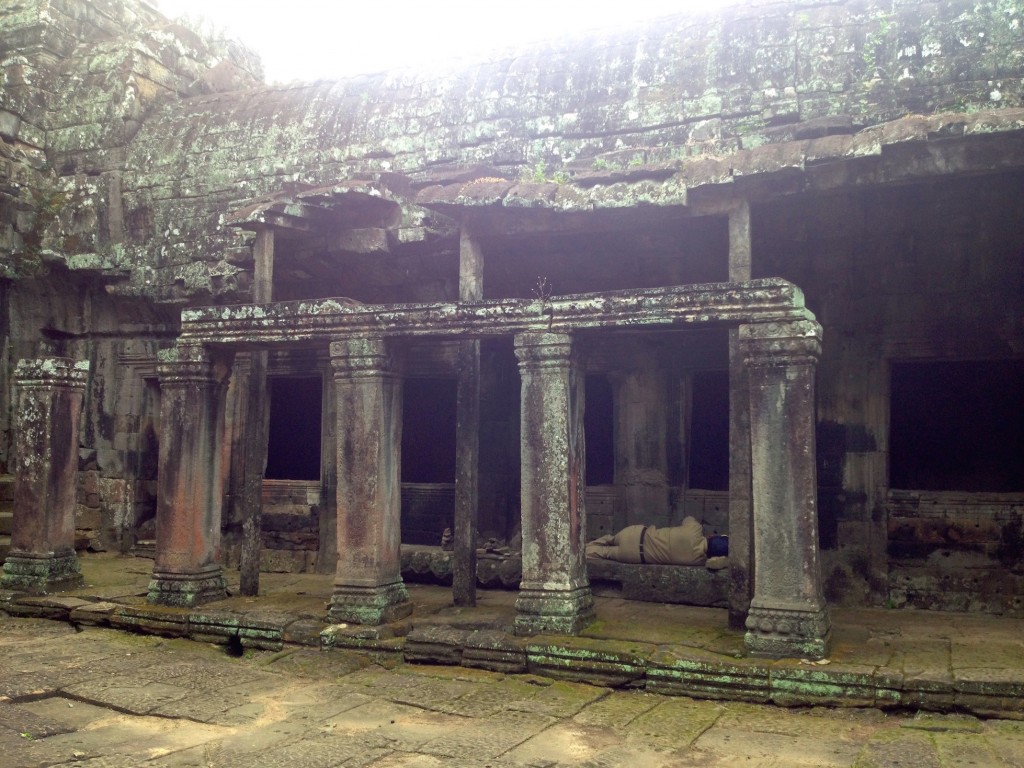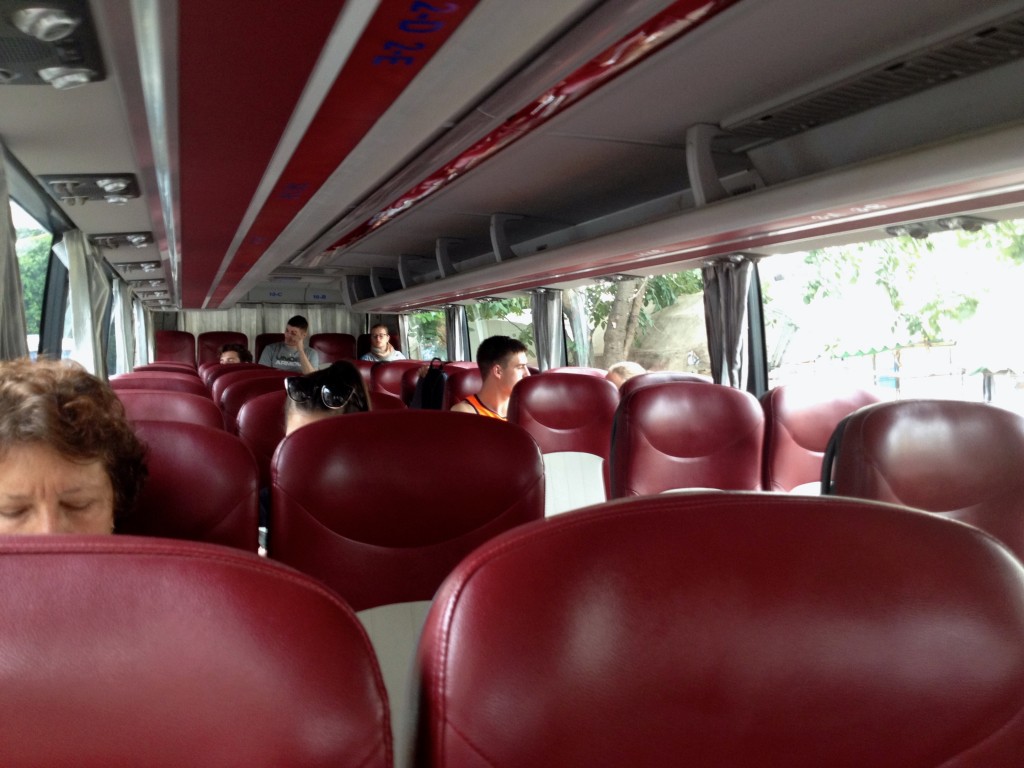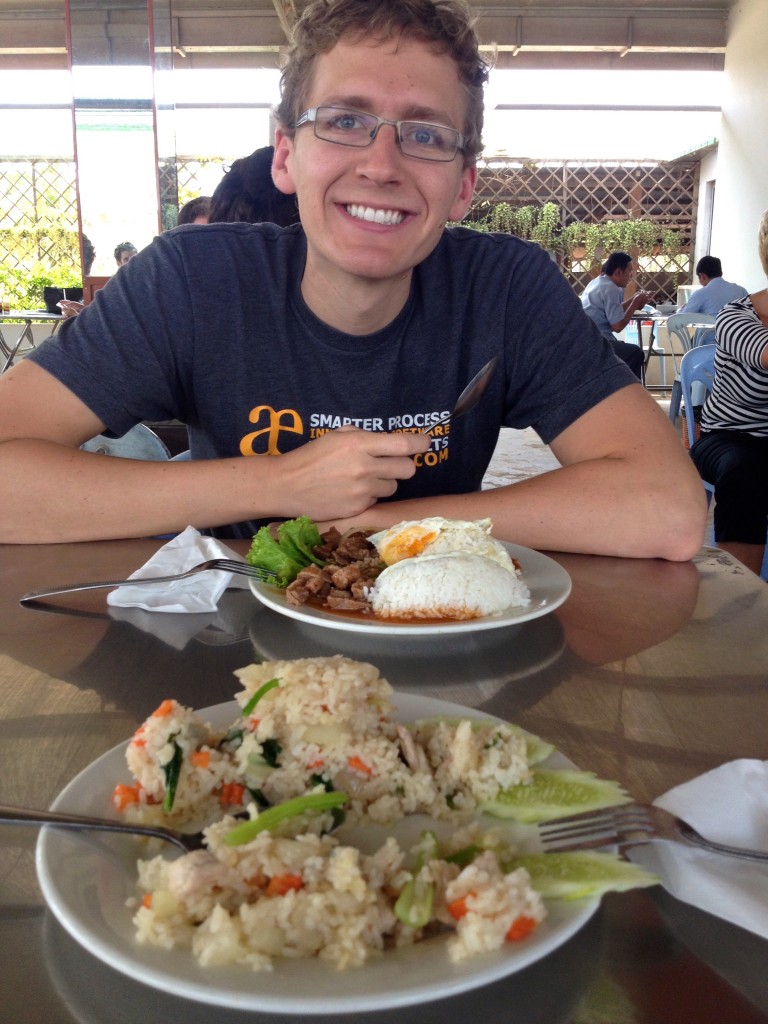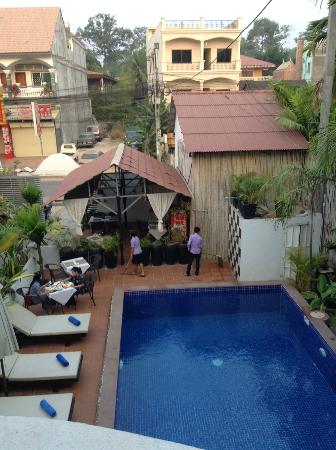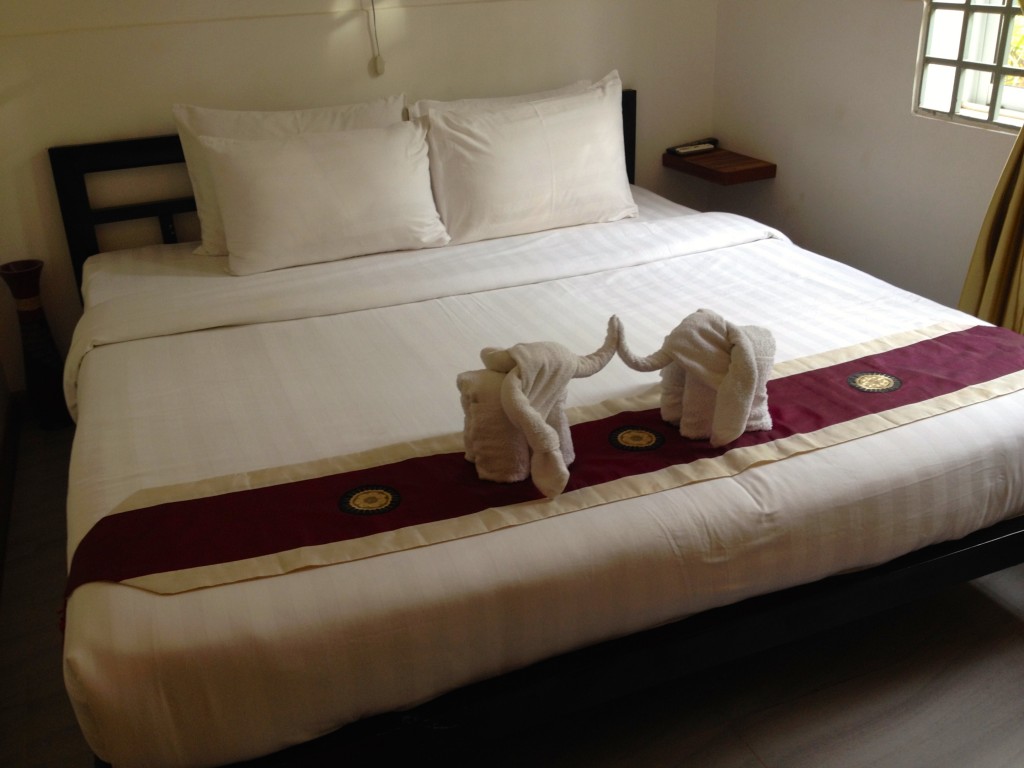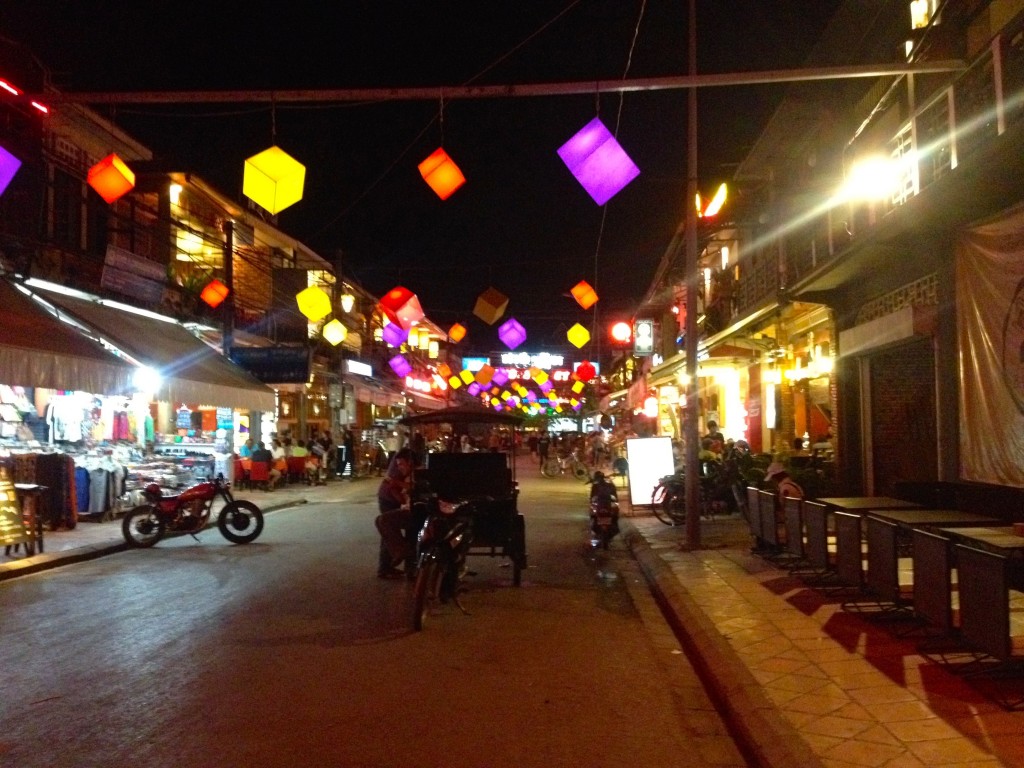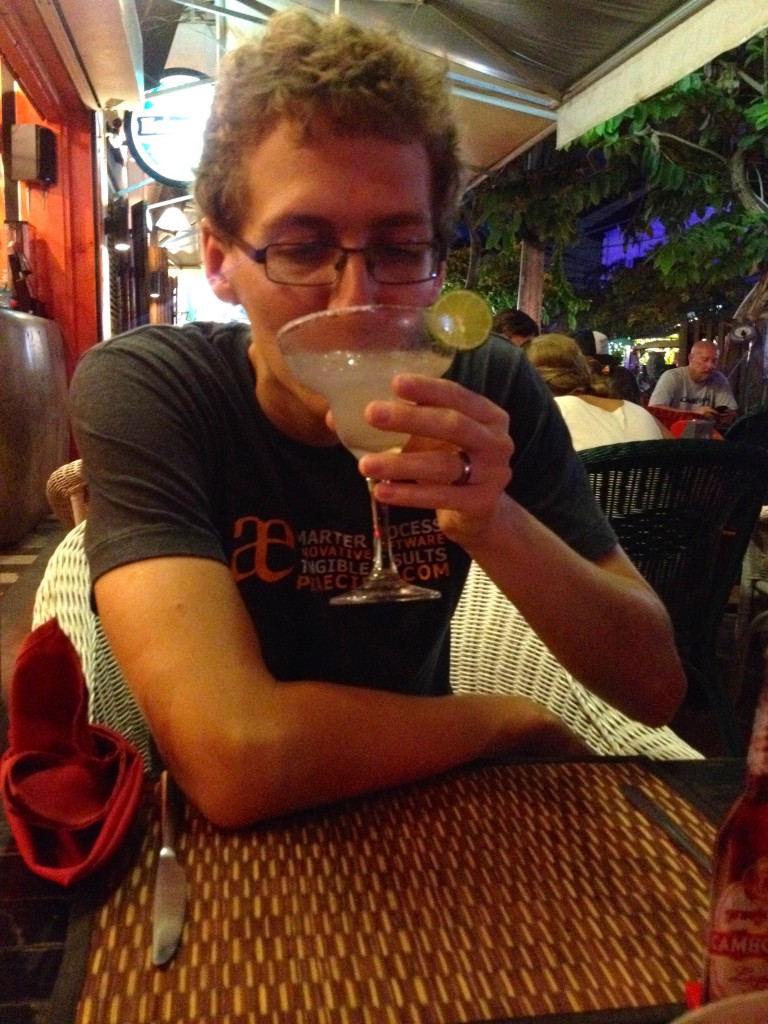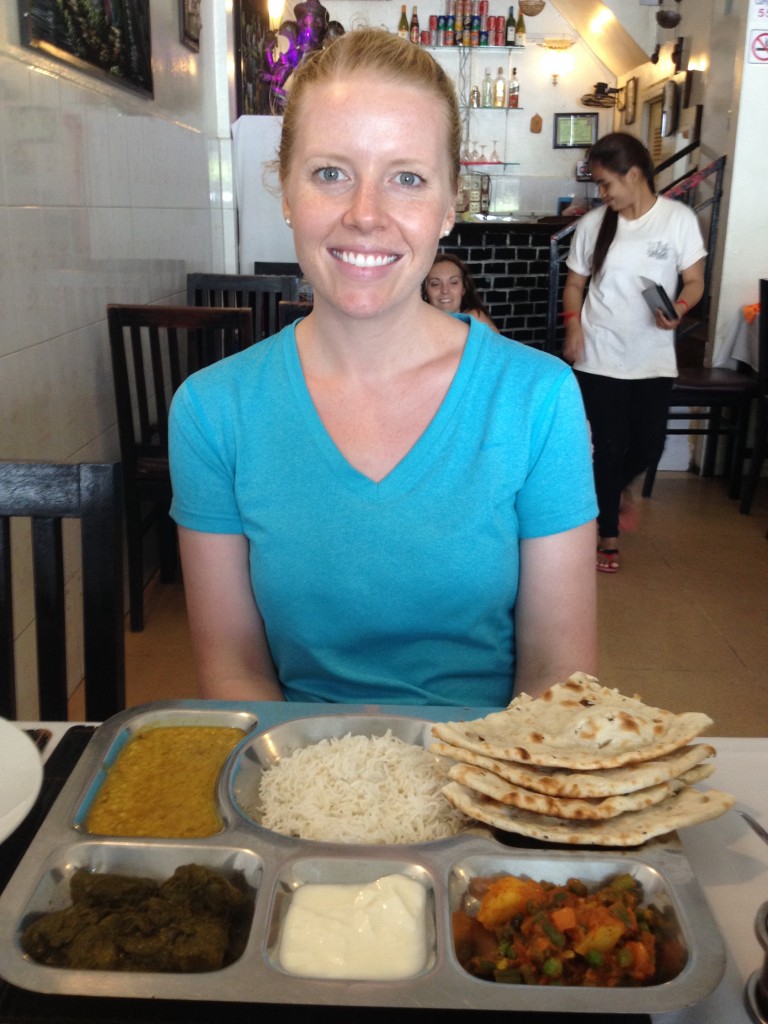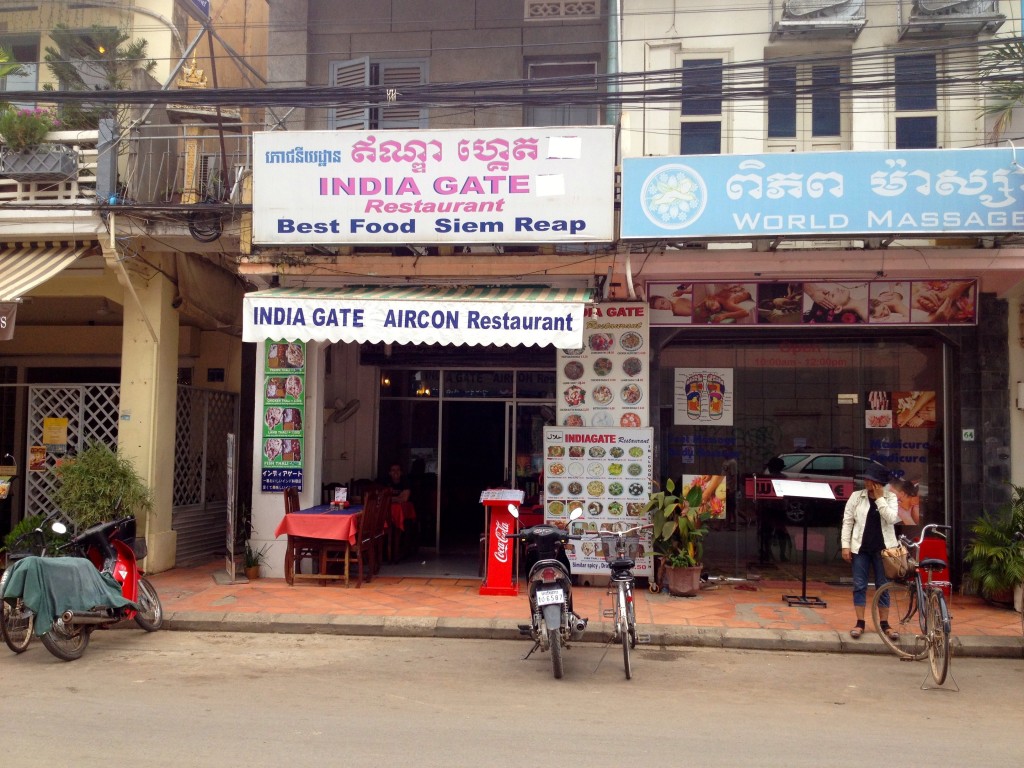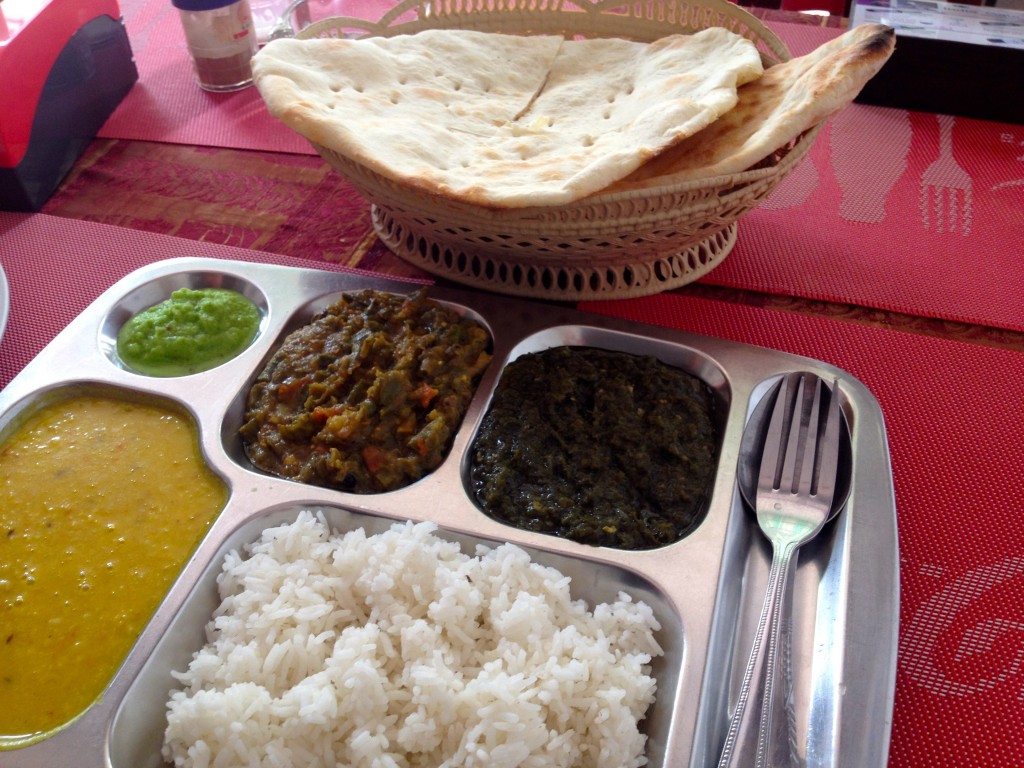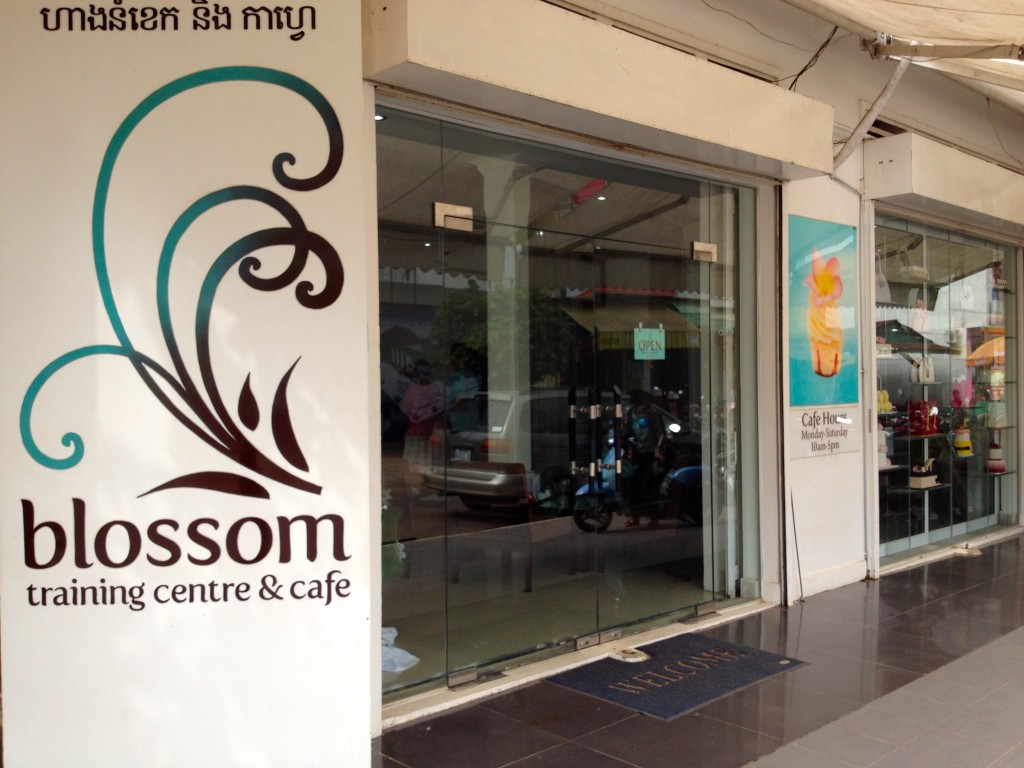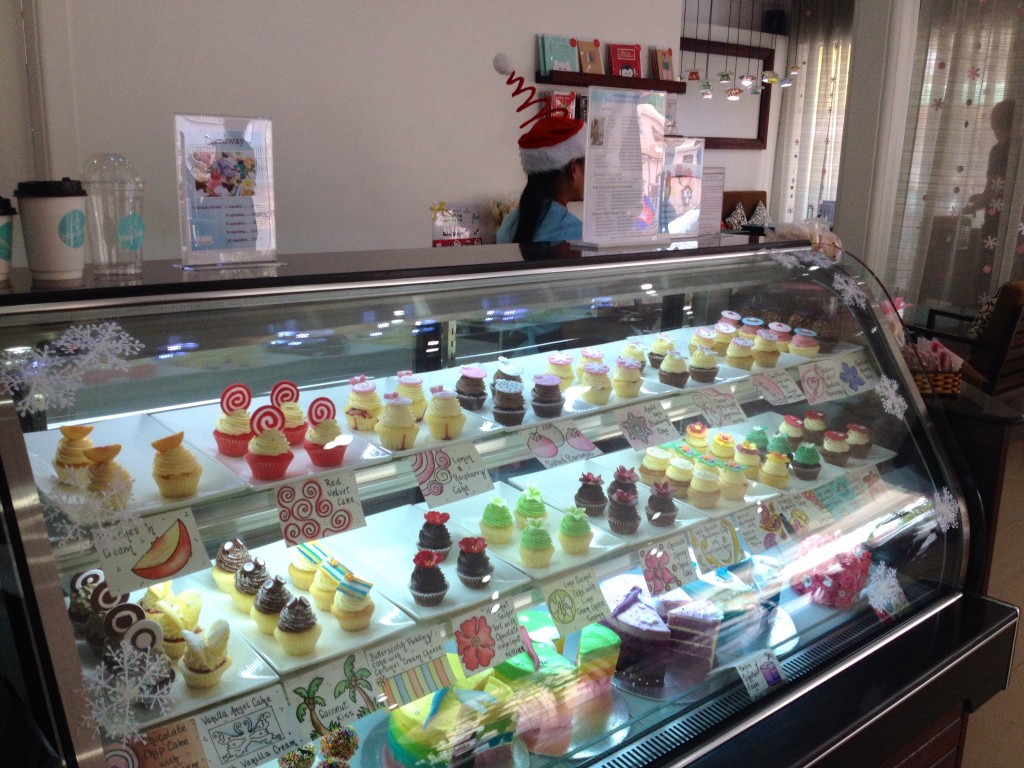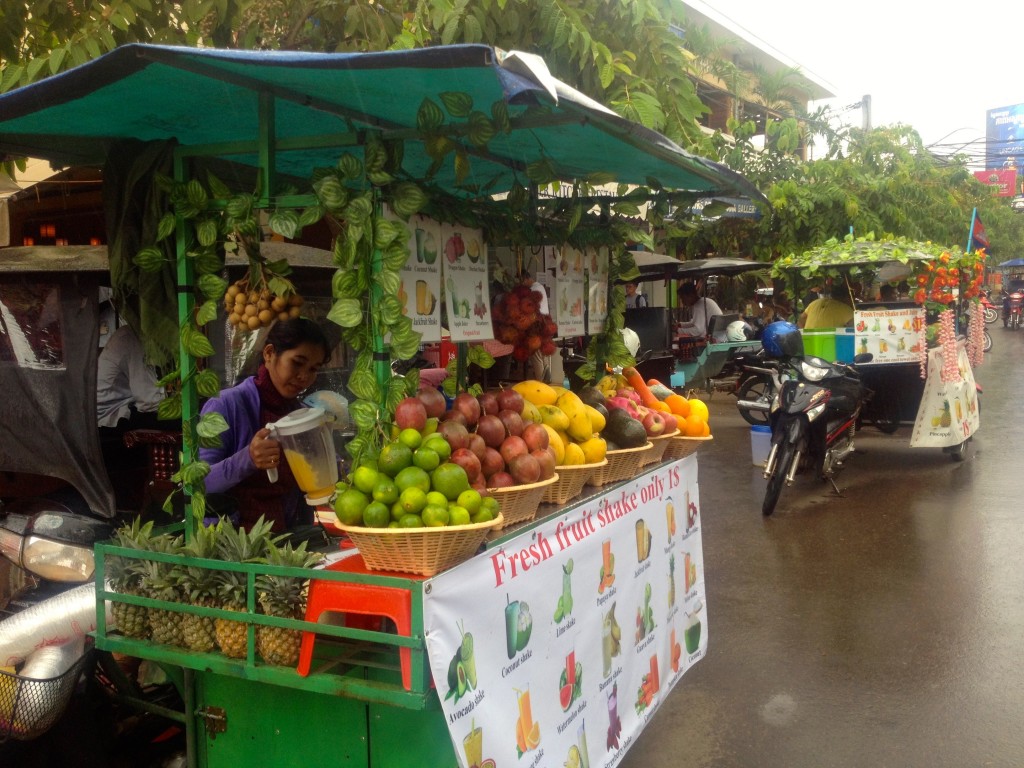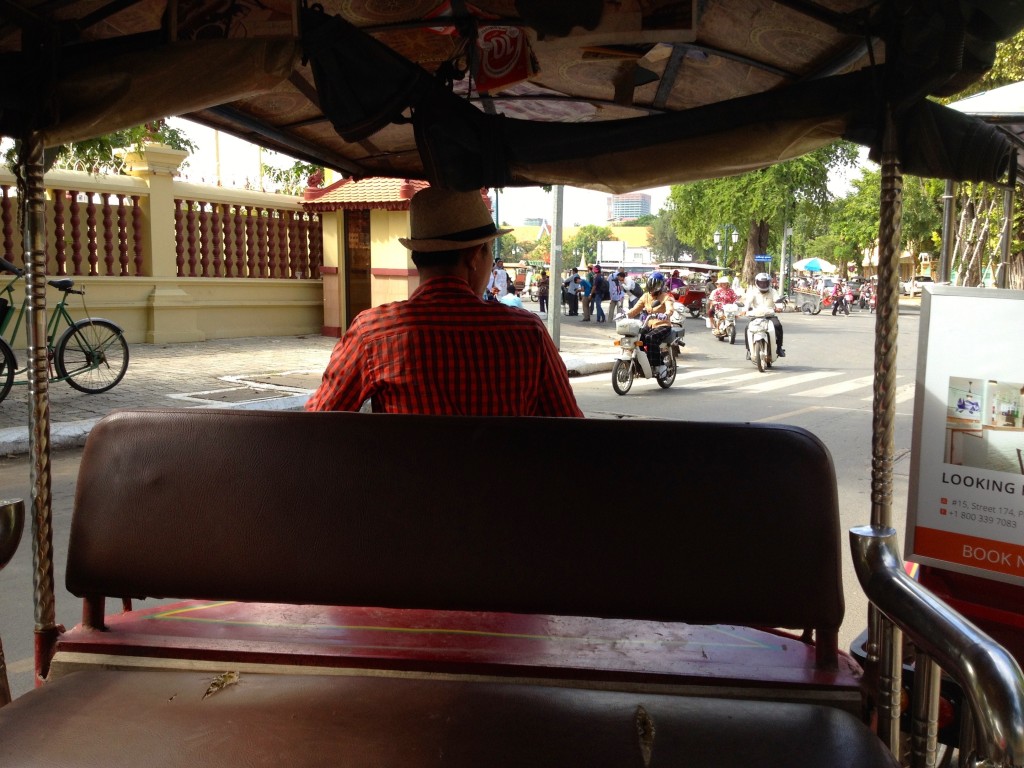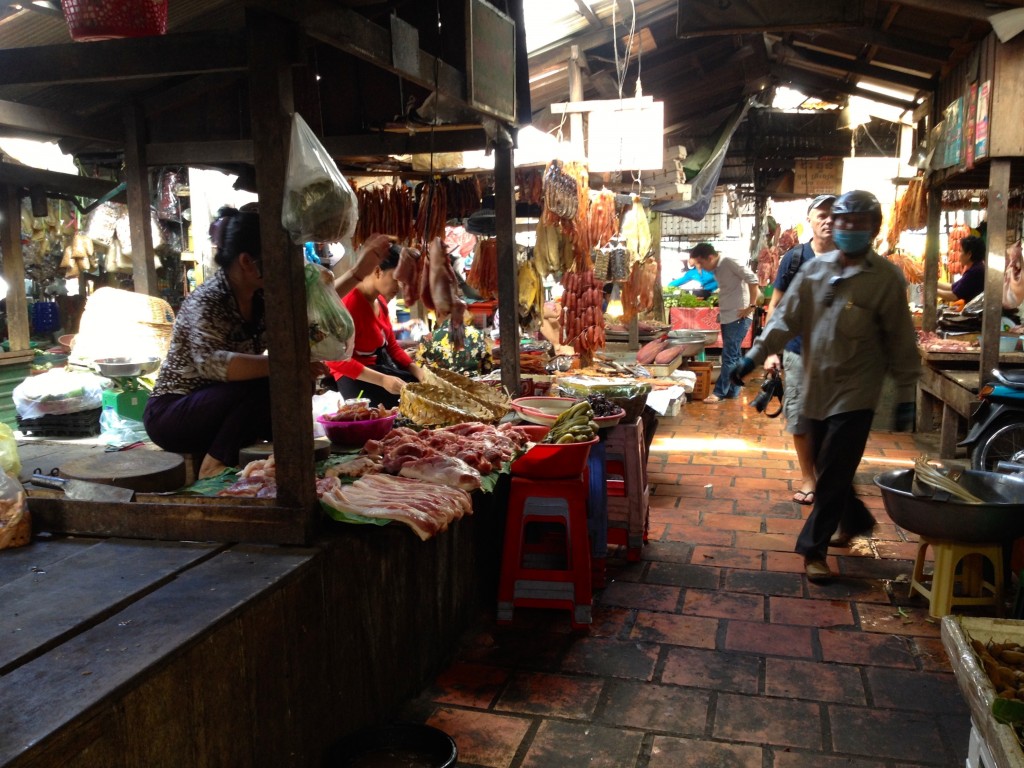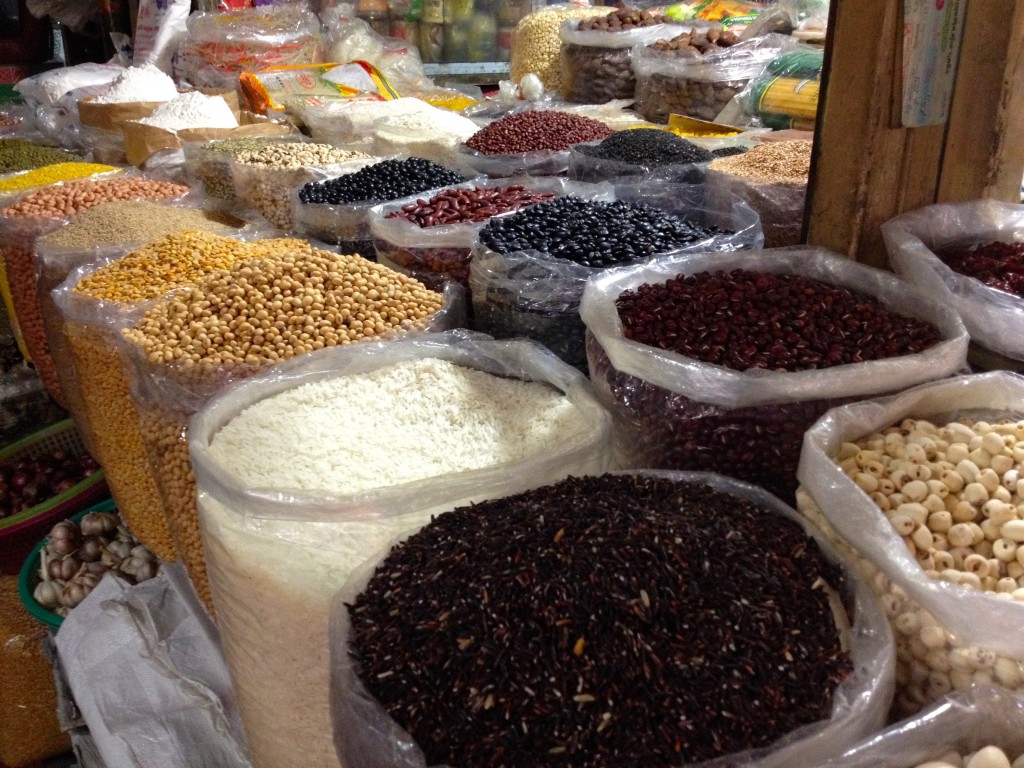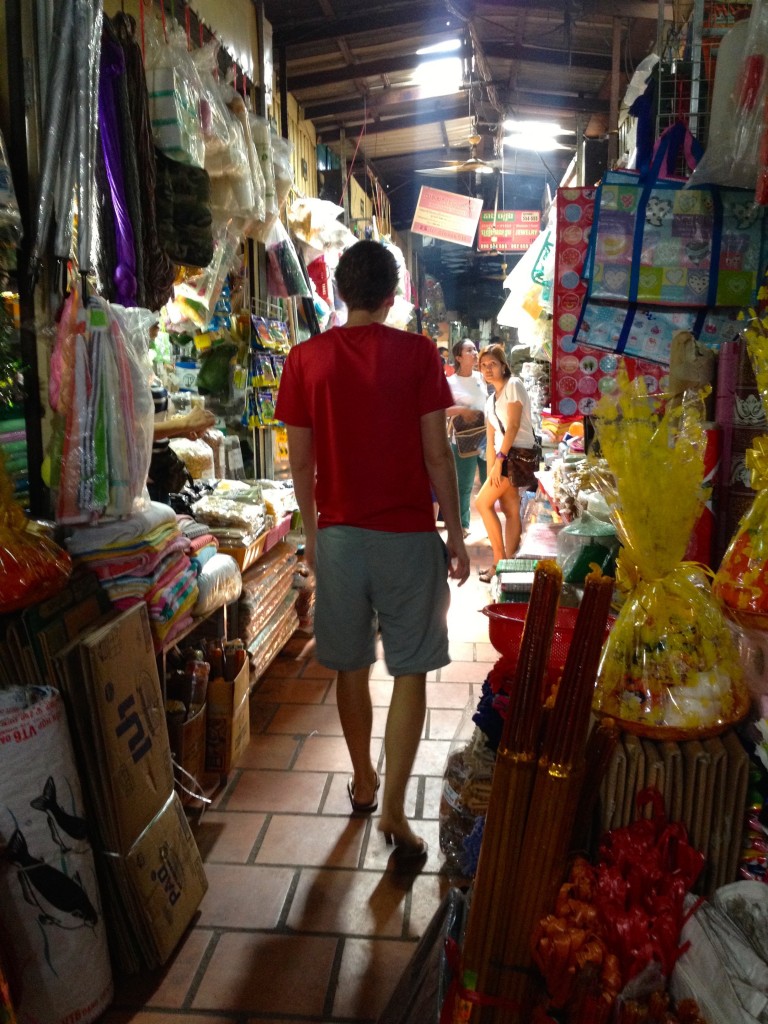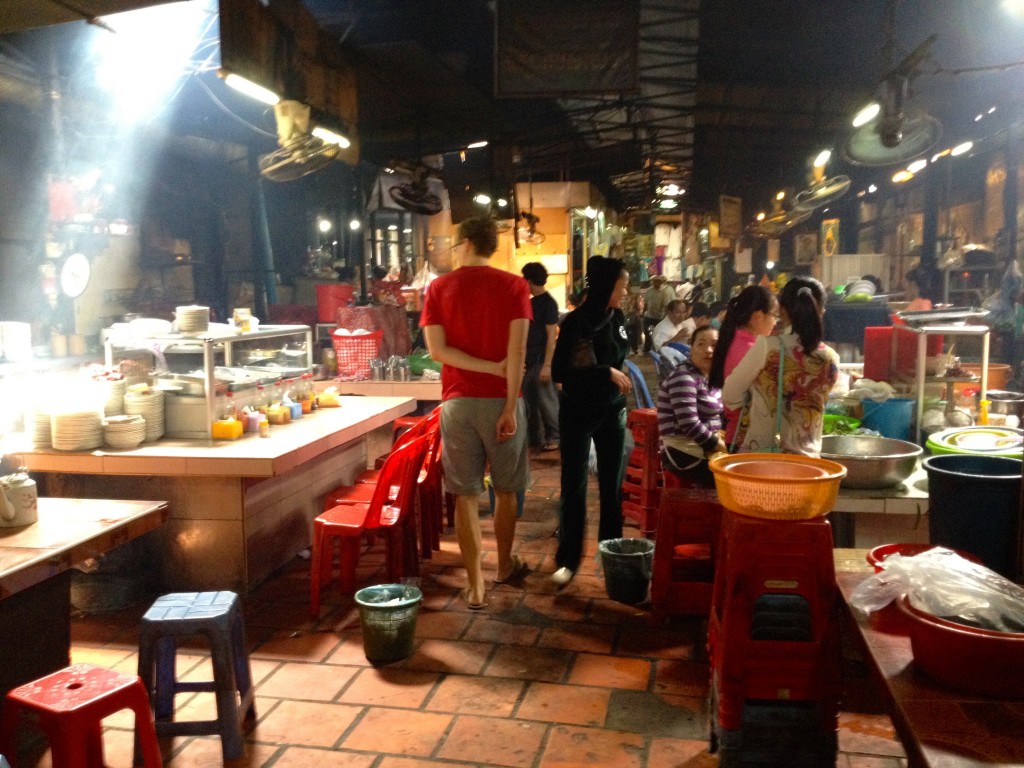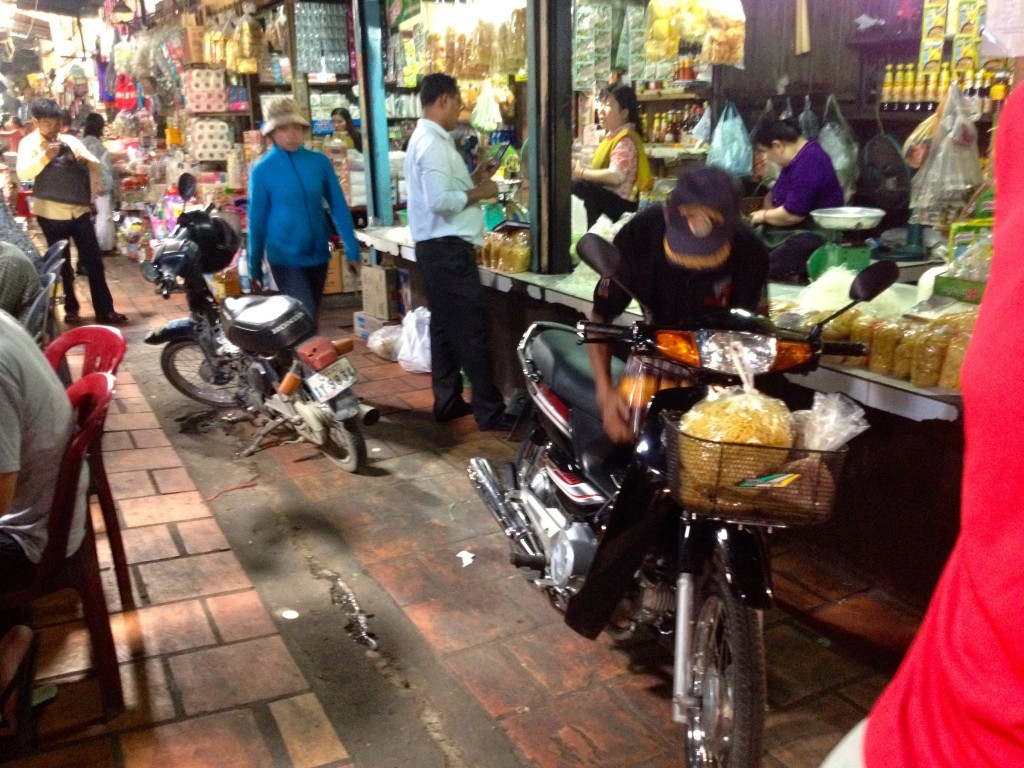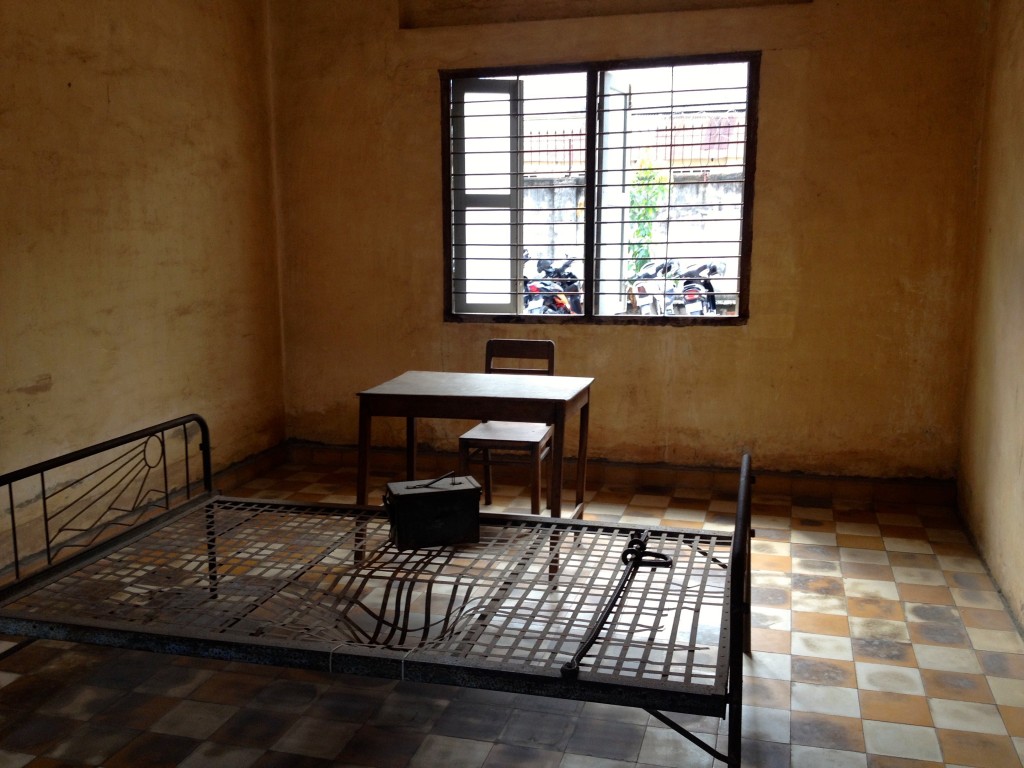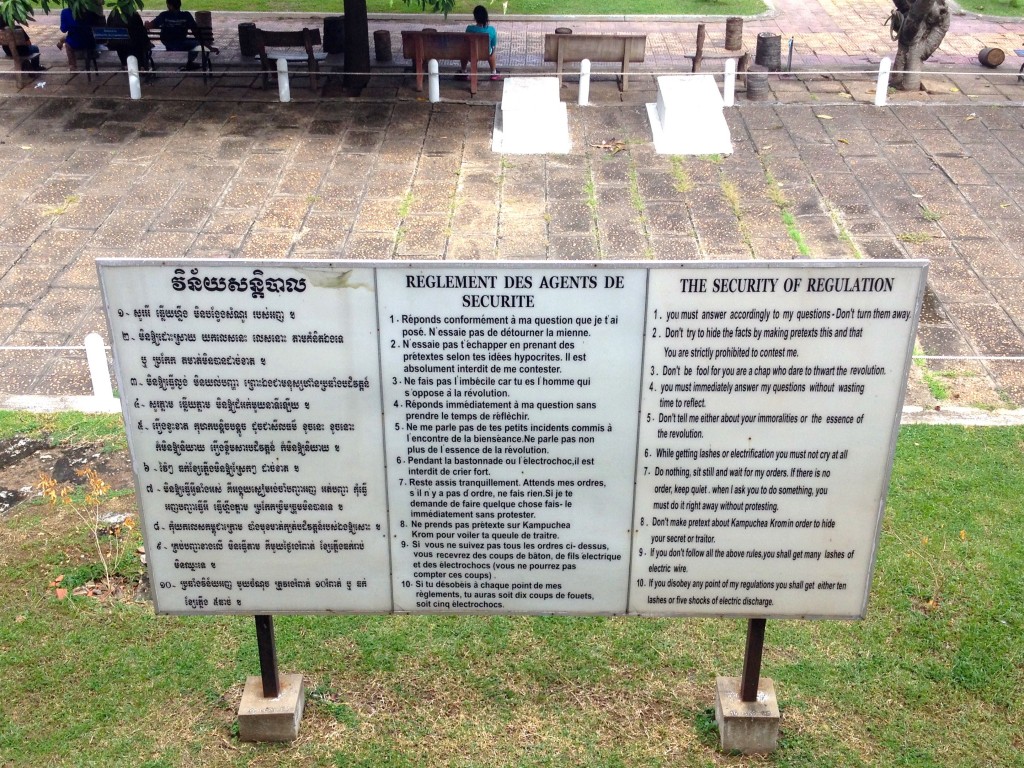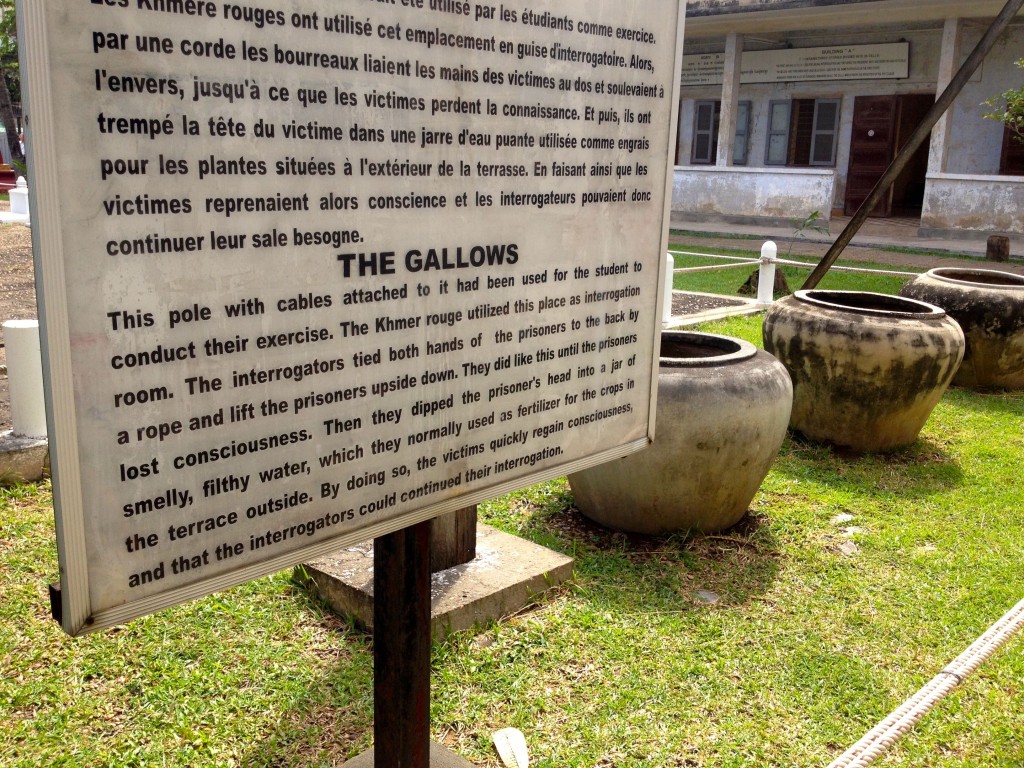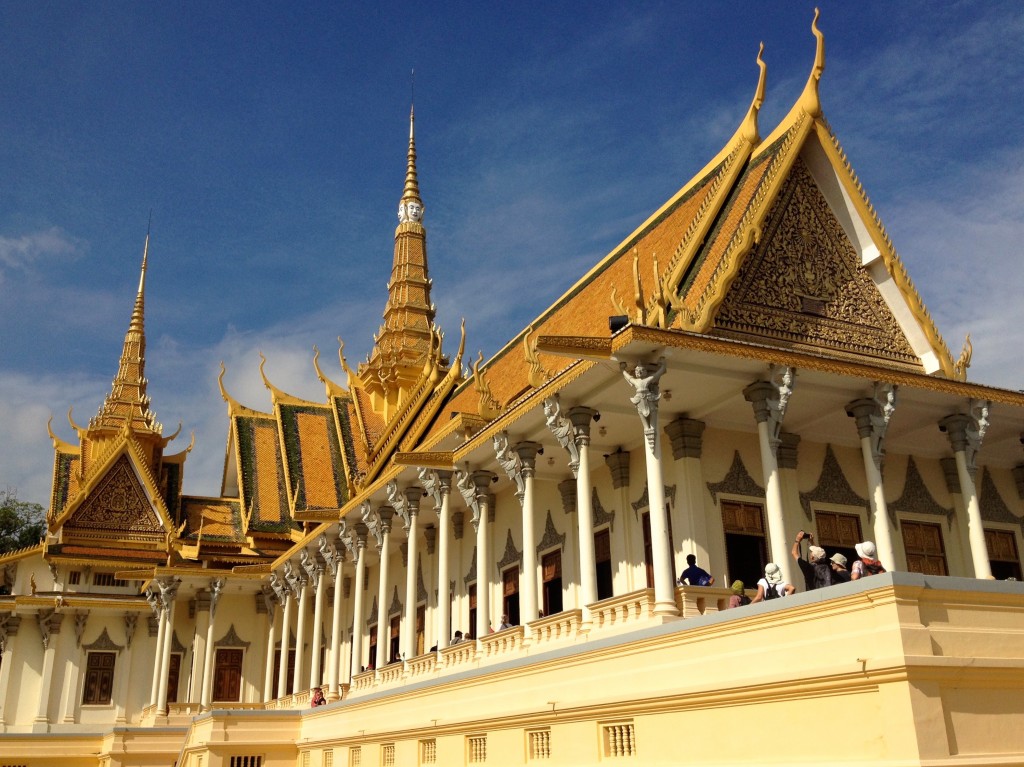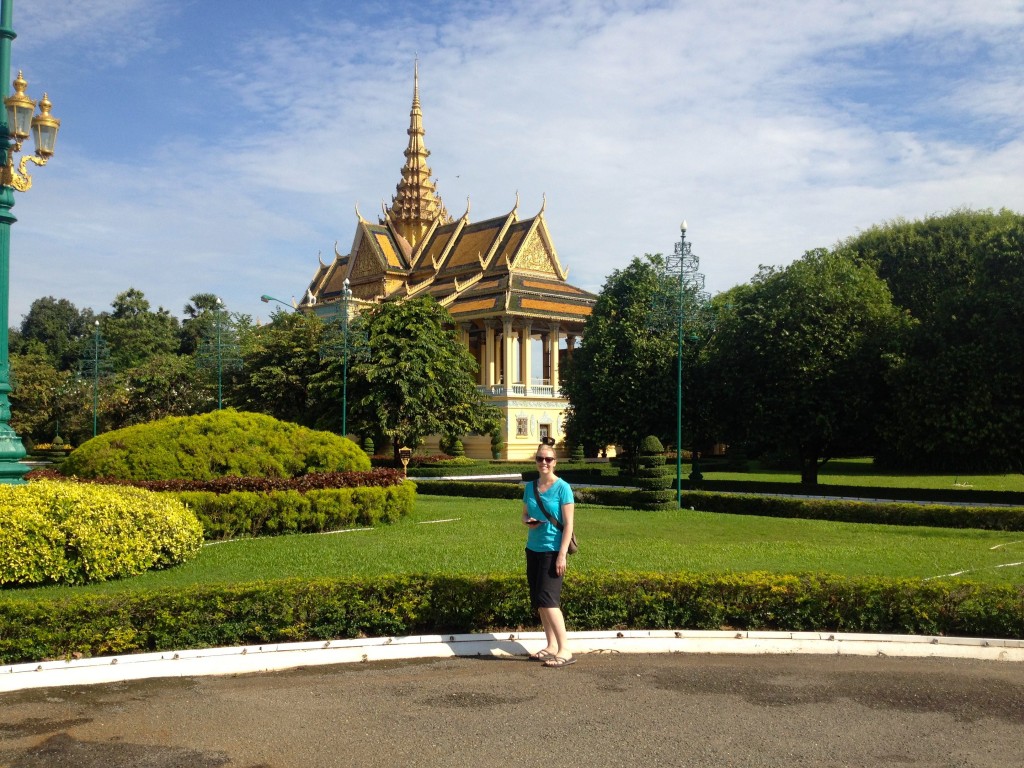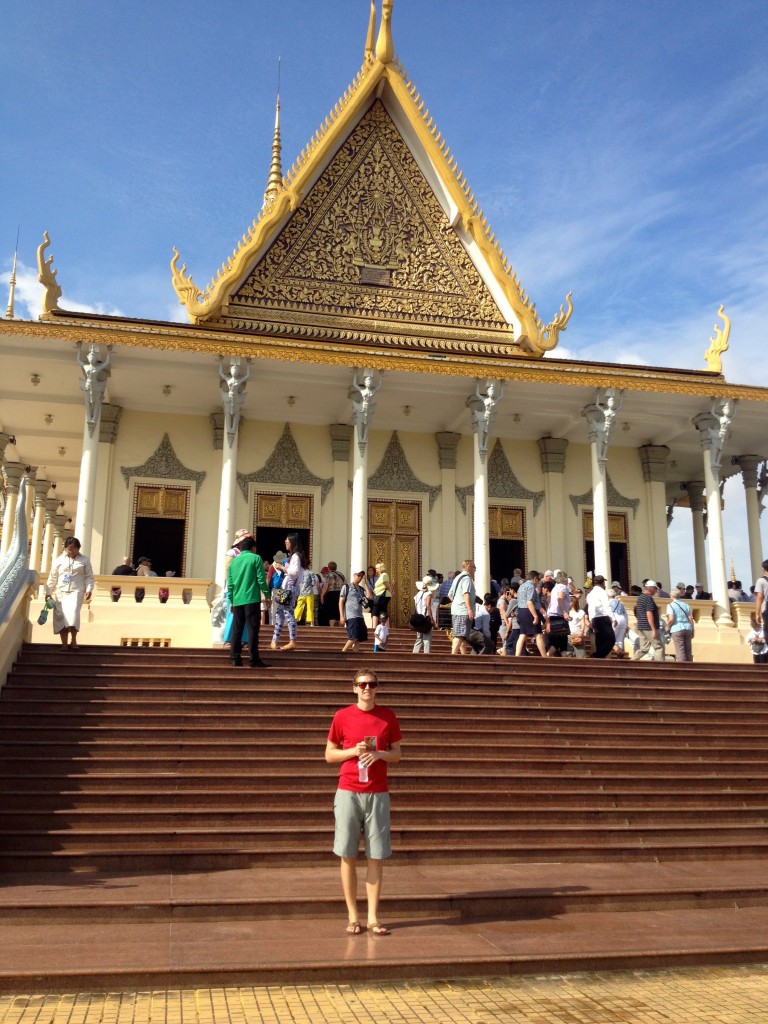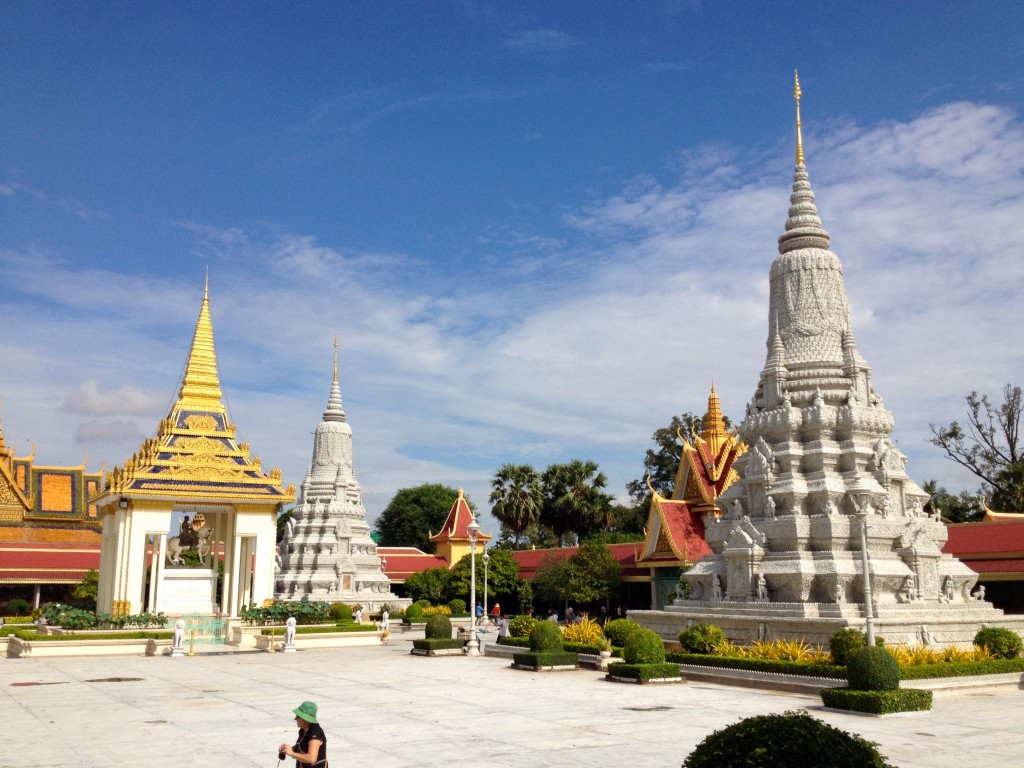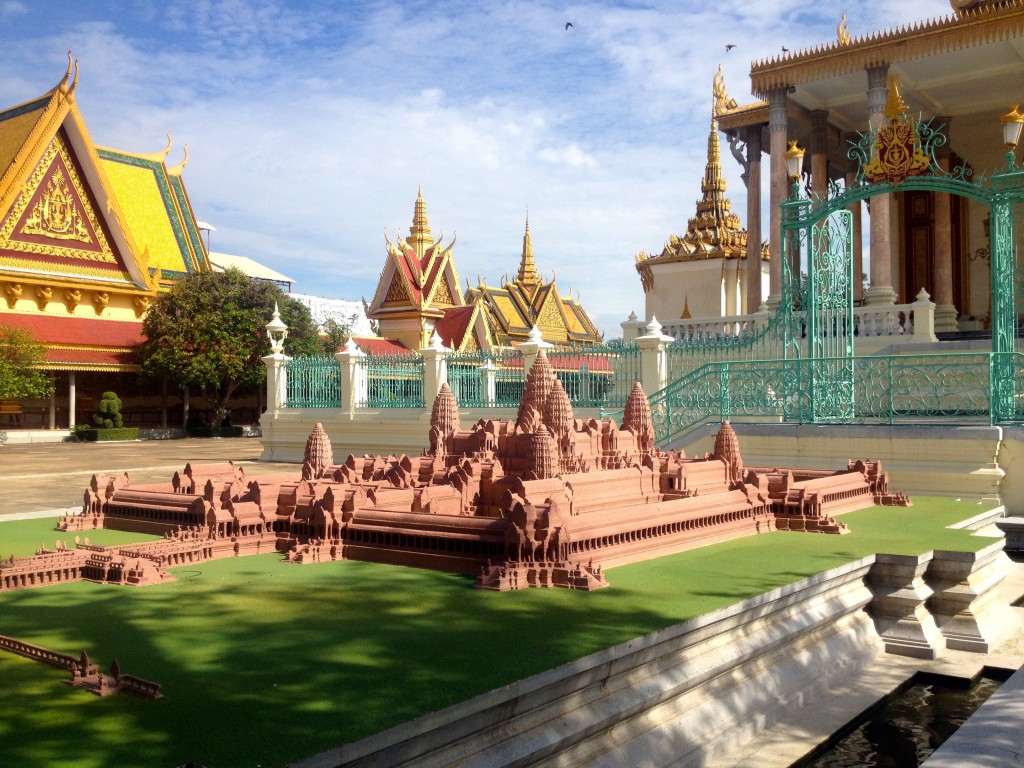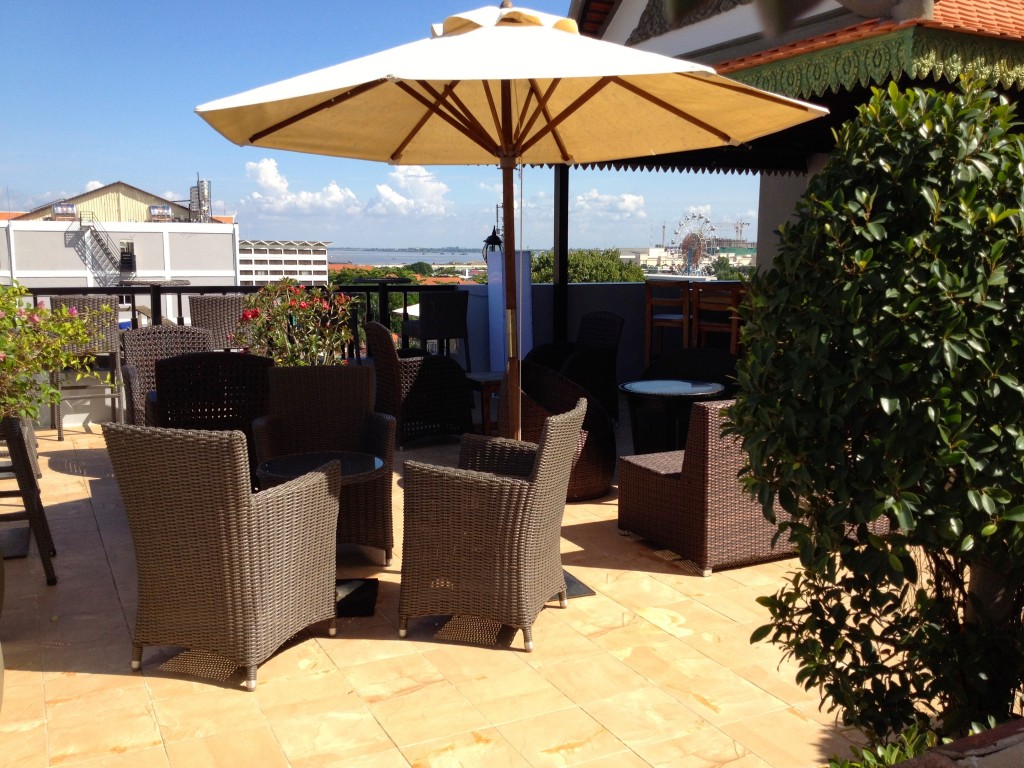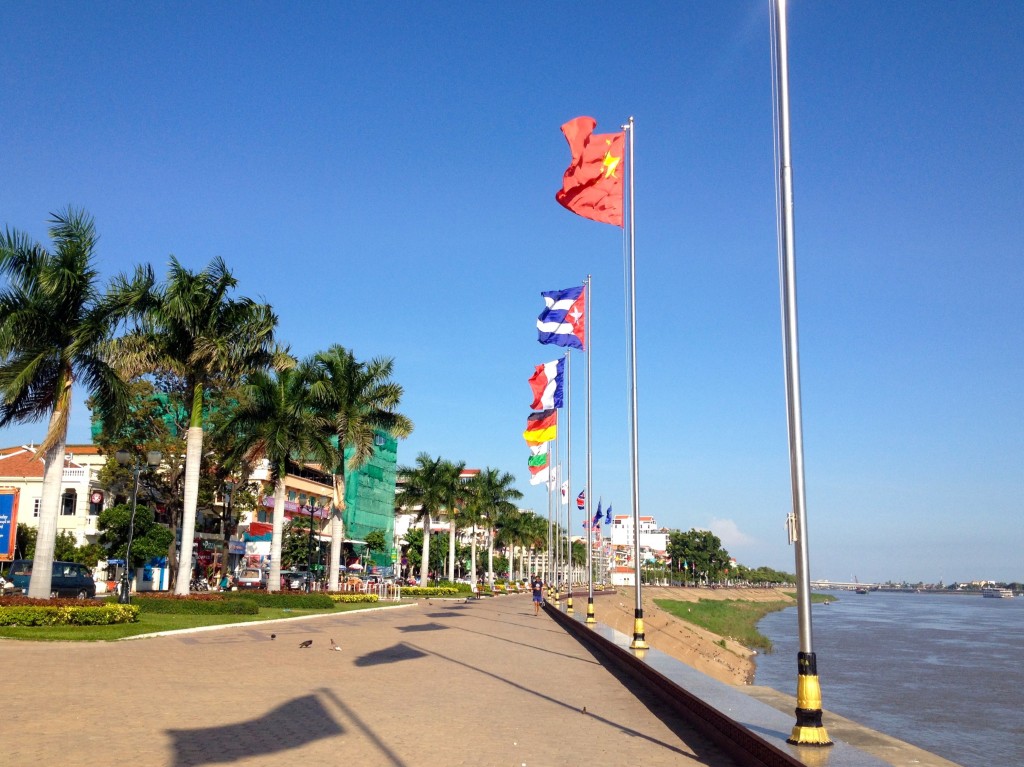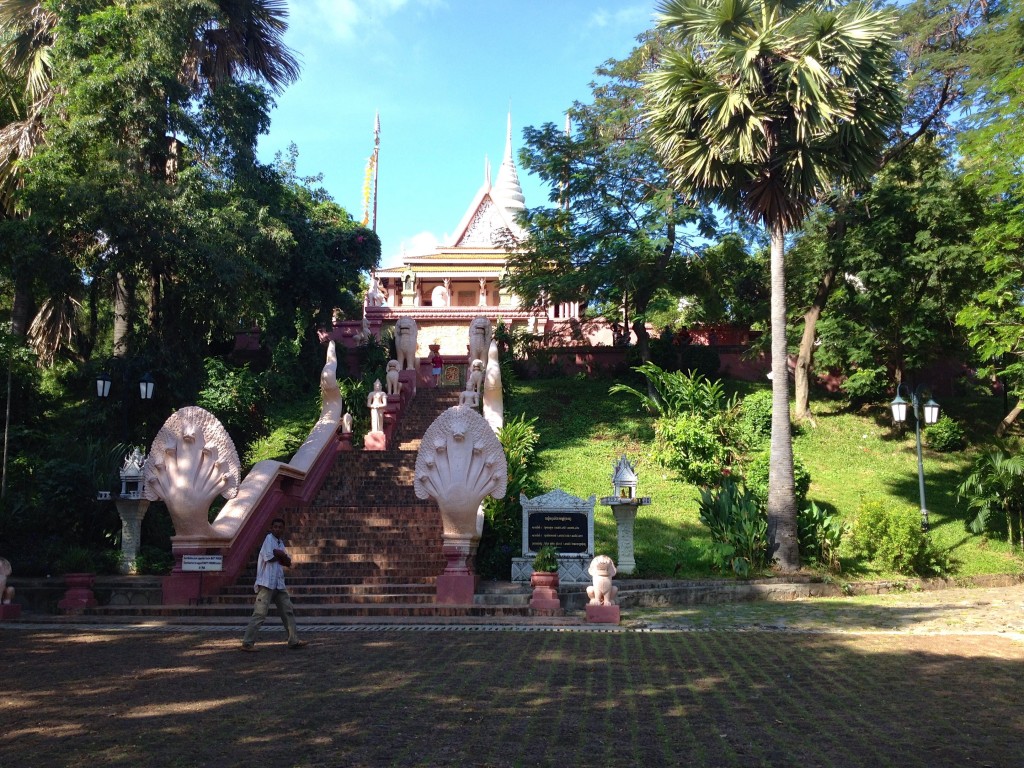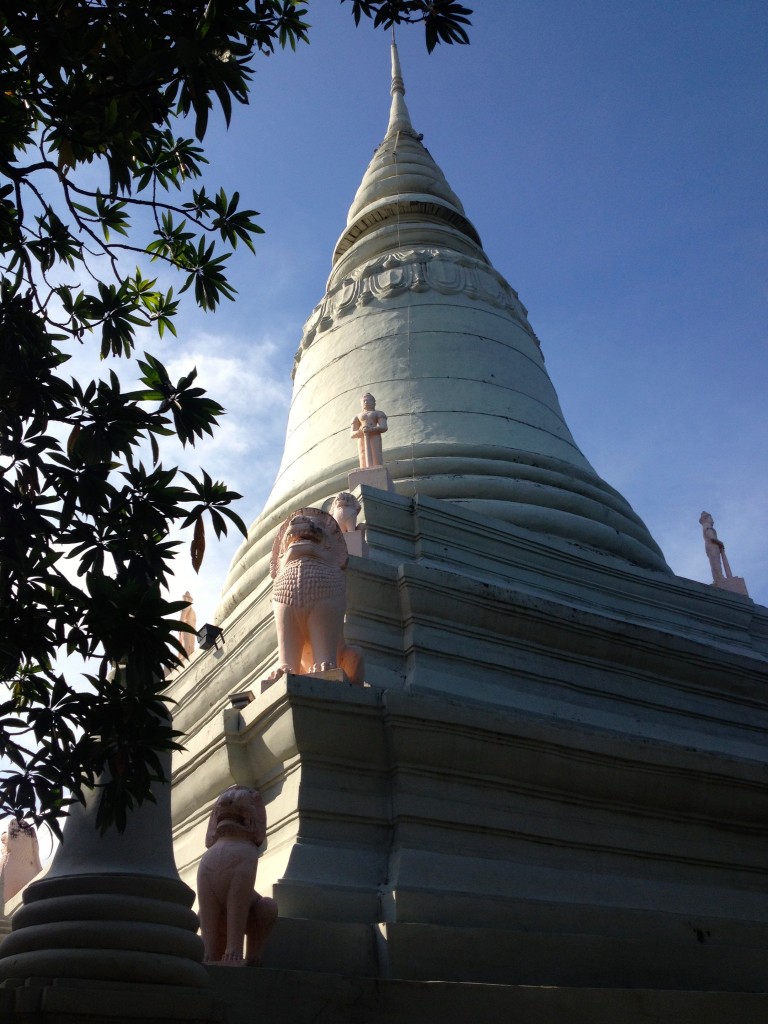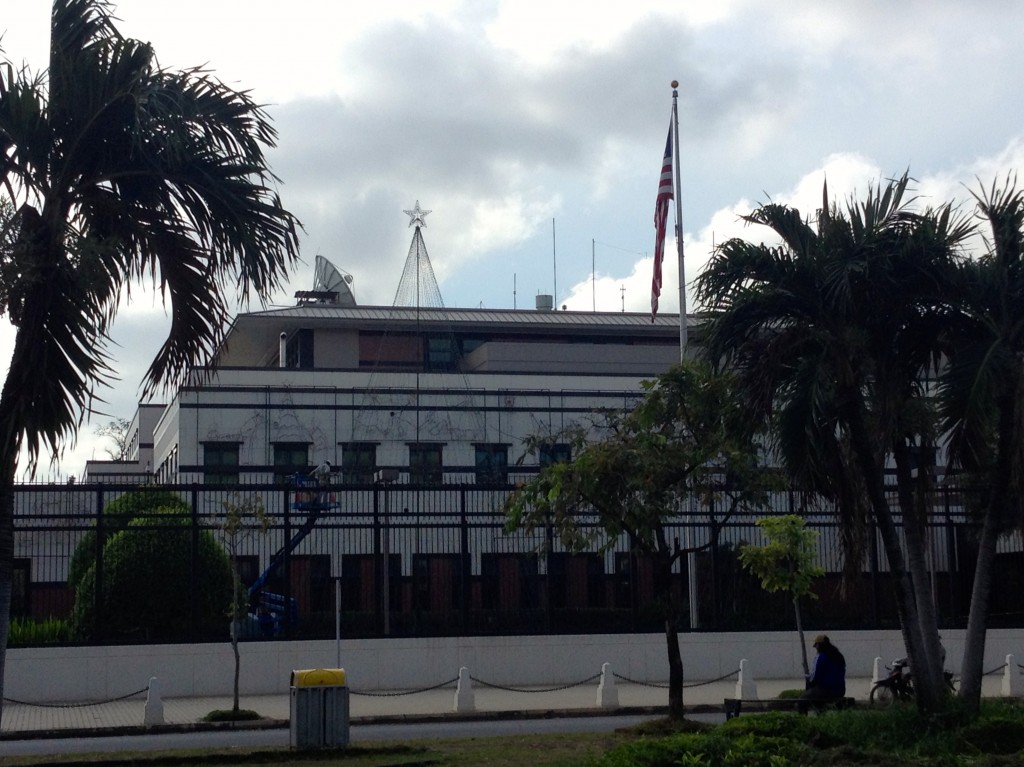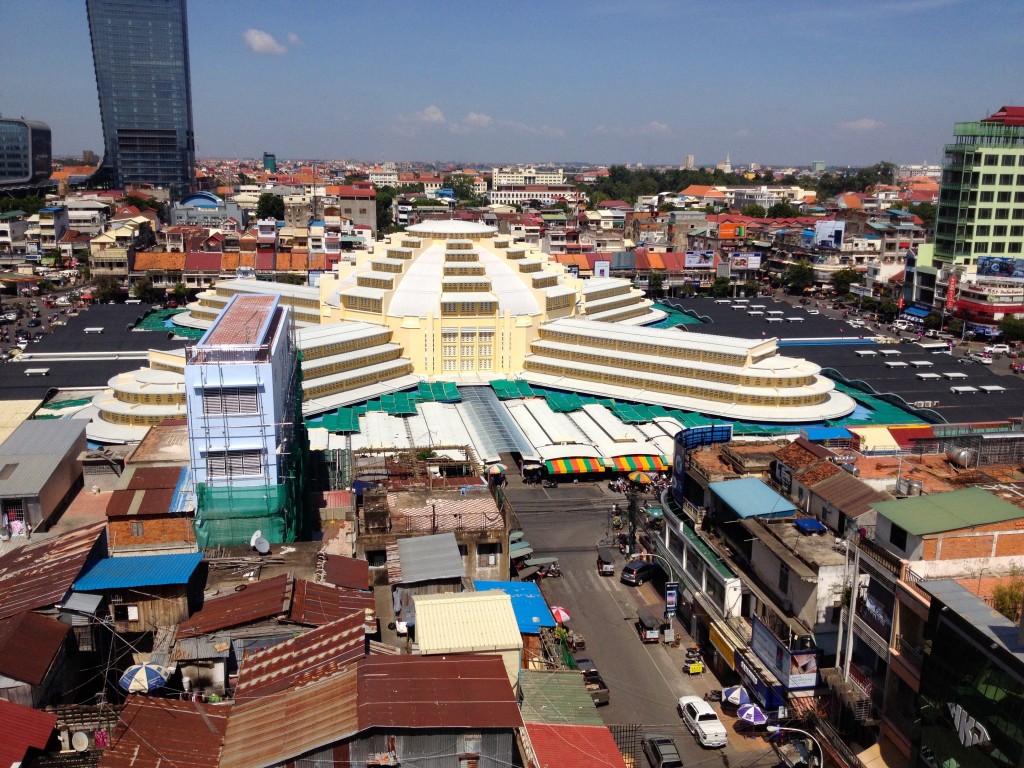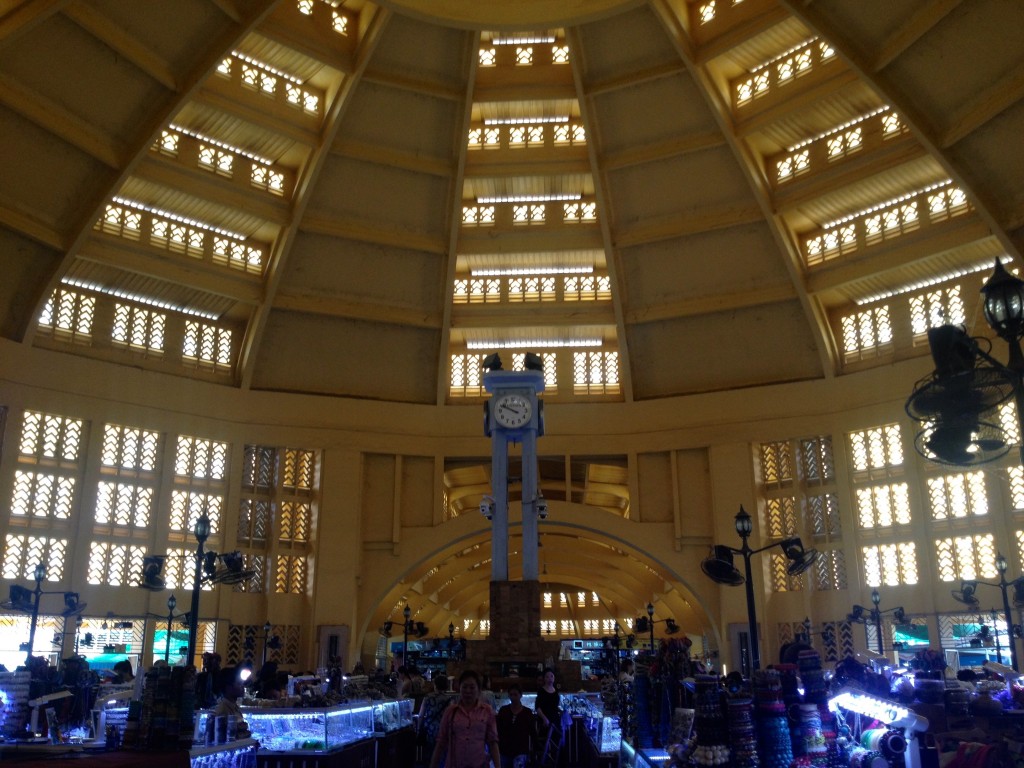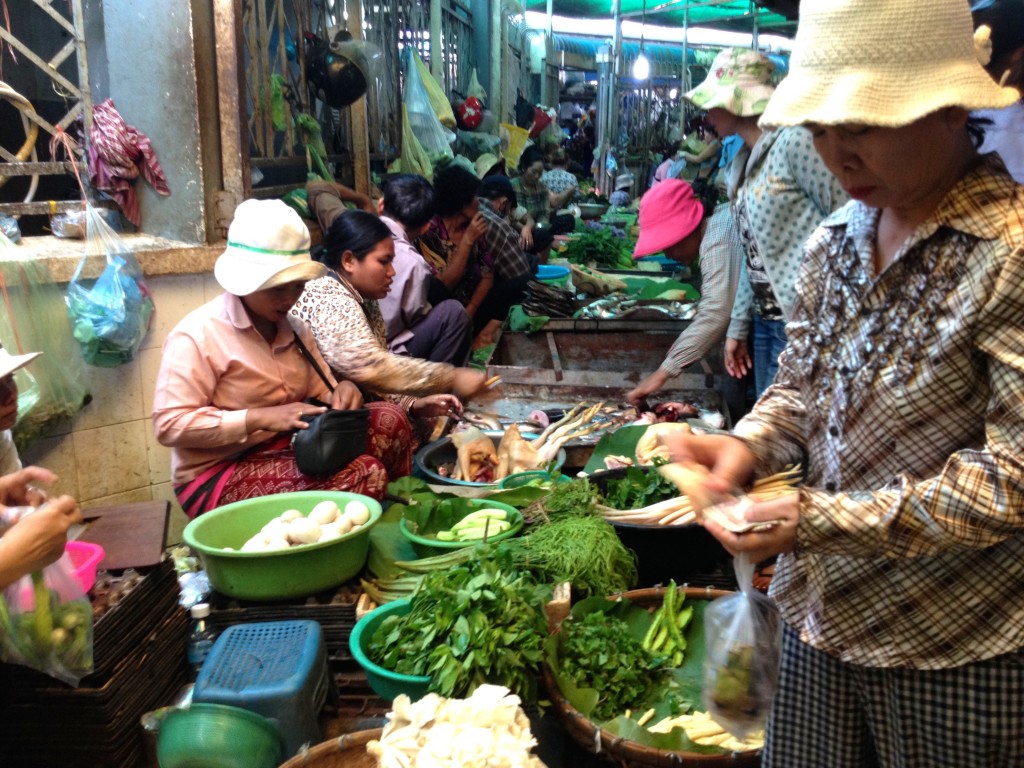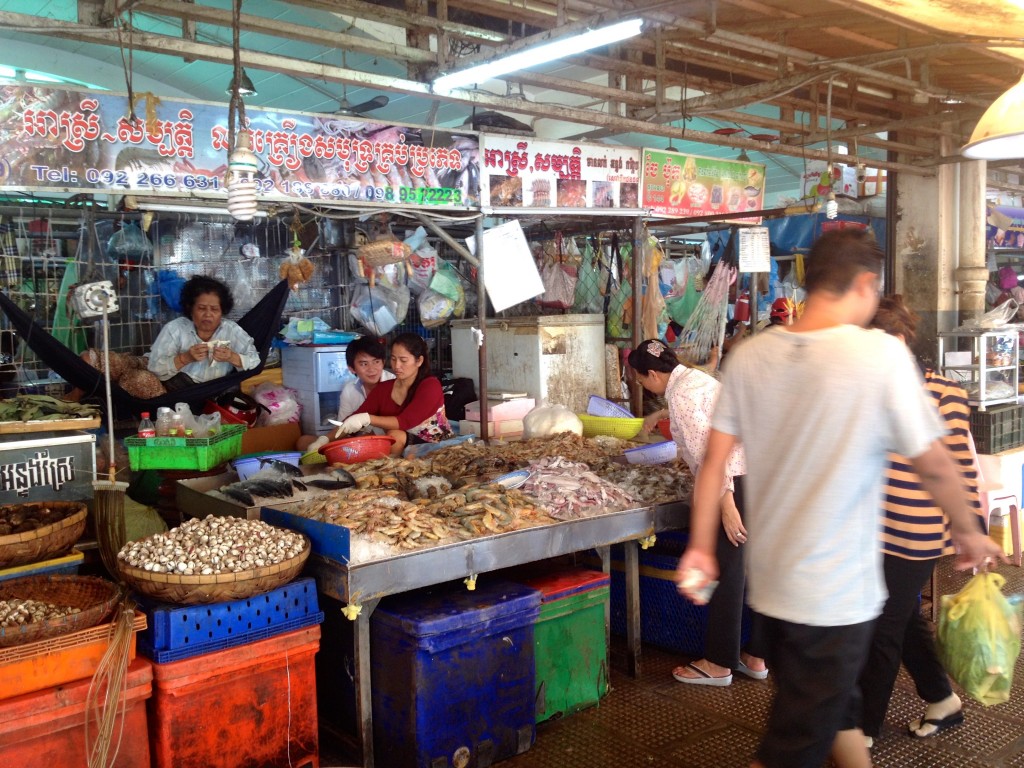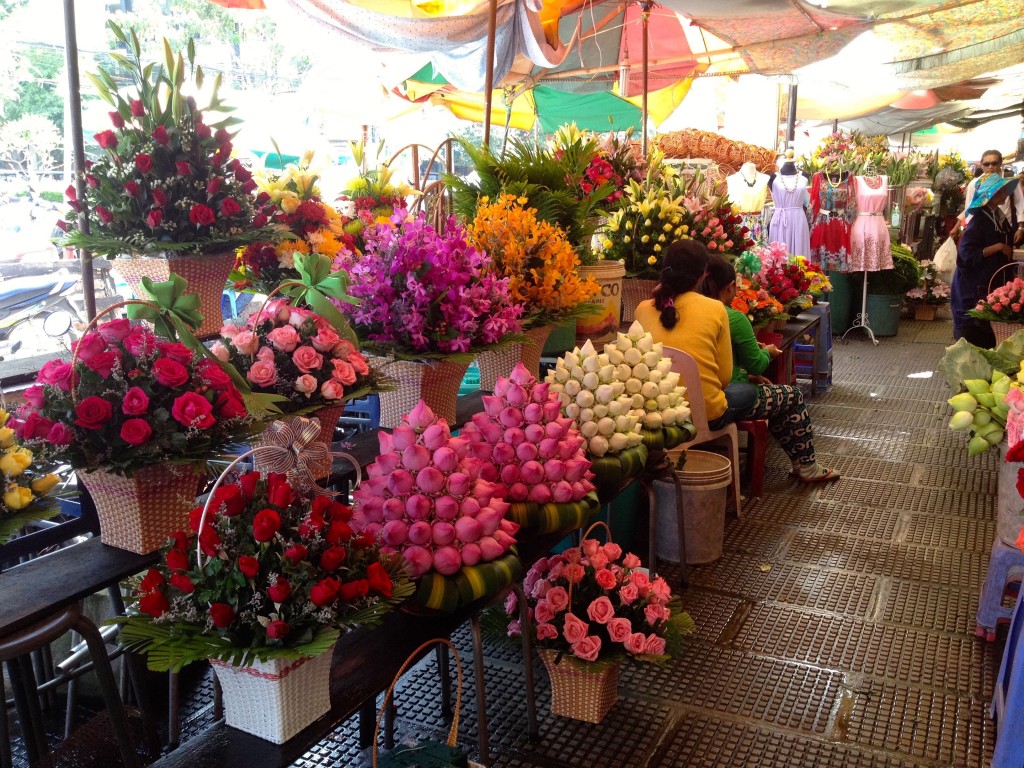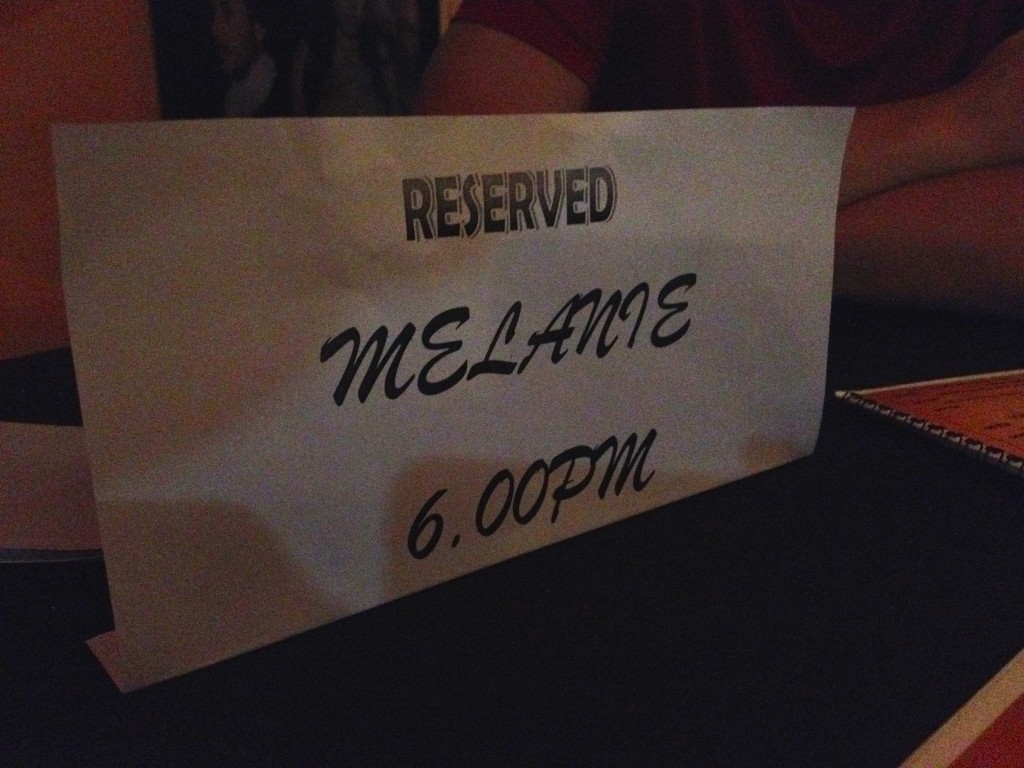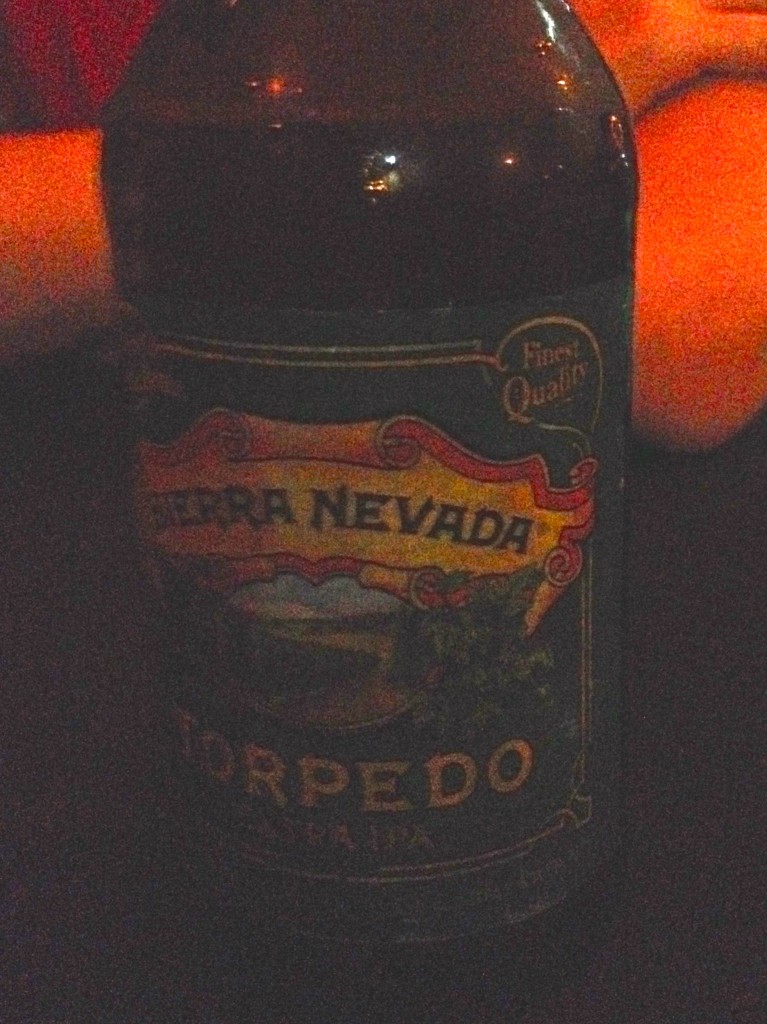The cute little town of Granada, Spain is perhaps best known for its star attraction, the Alhambra. It’s a huge, impressive Moorish palace that can attract up to 8,000 visitors a day during high season, so we felt pretty smug about our decision to visit in the dead of winter. Little did we know that temperatures would drop down into the 20s (Fahrenheit) overnight and “extreme cold temperature” warnings would be issued during our visit. At one point, it even snowed! We were like human icicles. Let’s just quietly add this onto the list of our huge mistakes…
In spite of the cold, we lucked out and got some sunny weather for exploring the city. We put on our ridiculous-looking puffy coats from a thrift store in Paris, donned our $1 gloves from a hardware store in Thailand, wore our knock-off United Colors of Benetton scarves from Chiang Mai, and ventured our double-socked feet out into the cold. What we found was a lively bar scene where you get free tapas with your drinks, a confusing mish-mash of food terminology, an outrageously politically incorrect Cathedral, and a thriving hippie scene in the hillside Albayzin neighborhood. It was pretty weird.
A Glimpse at Granada, Spain
Granada is an easy 3-hour train ride east of Sevilla, our home base here in Southern Spain. We love train travel in Europe, and while train travel here in Spain seems surprisingly expensive, the beautiful countryside almost makes up for it. We rode past rolling hills covered with olive tree orchards, through cute little Spanish towns with churches poking up over the horizon, and even saw handfuls of palm trees here or there! But our favorite part was the slow approach to the snow-capped Sierra Nevada mountains. It was a beautiful train ride!
We stayed at the Hotel Molinos, which we later learned holds (or at one point held) the record for the narrowest hotel in the Guinness Book of World Records! What a weird record to seek out.
Anyone who knows me knows that I’m one of Rick Steves’ biggest fans (which makes me sound approximately 75 years old), so we definitely explored Granada with help from his fantastic walking tour:
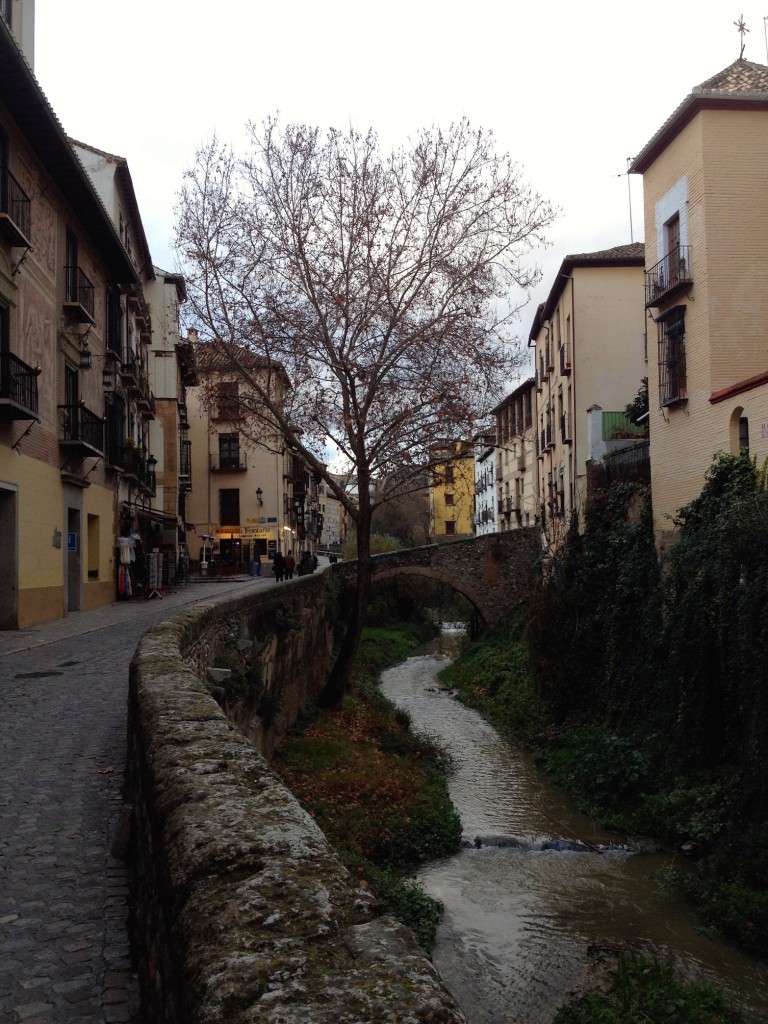
We strolled along Granada’s Darro River, a cute little stream that runs between the town’s two big hills.
The Alhambra
The first thing you need to know about the Alhambra is that they have a giant doorway called the Puerta del Vino, which translates to Wine Gate. Let me put your hopes down right now – there is, in fact, no free wine on tap at the Wine Gate as I had hoped. DREAM CRUSHED.
My love of wine has deepend here in Spain, due mainly to the endless selection of 1-euro bottles of delicious vino tinto (red wine) available at every market. I’m not sure what I’ll do when I go through I’m-unable-to-have-wine phases in my life. I suspect there will be an uptick in grape juice demand in the greater Seattle metropolitan area.
Back to the Alhambra! This is the last and greatest Moorish palace, and is THE reason most people visit Granada. It was the last Moorish stronghold in Europe as the Christian Reconquista moved south, and didn’t fall until 1492 when the last sitting Sultan in Spain, Boabdil, signed surrender papers. Years later, in the same room where those infamous surrender papers were signed, Christopher Columbus received permission from King Ferdinand and Queen Isabel to go on his infamous journey around the globe!
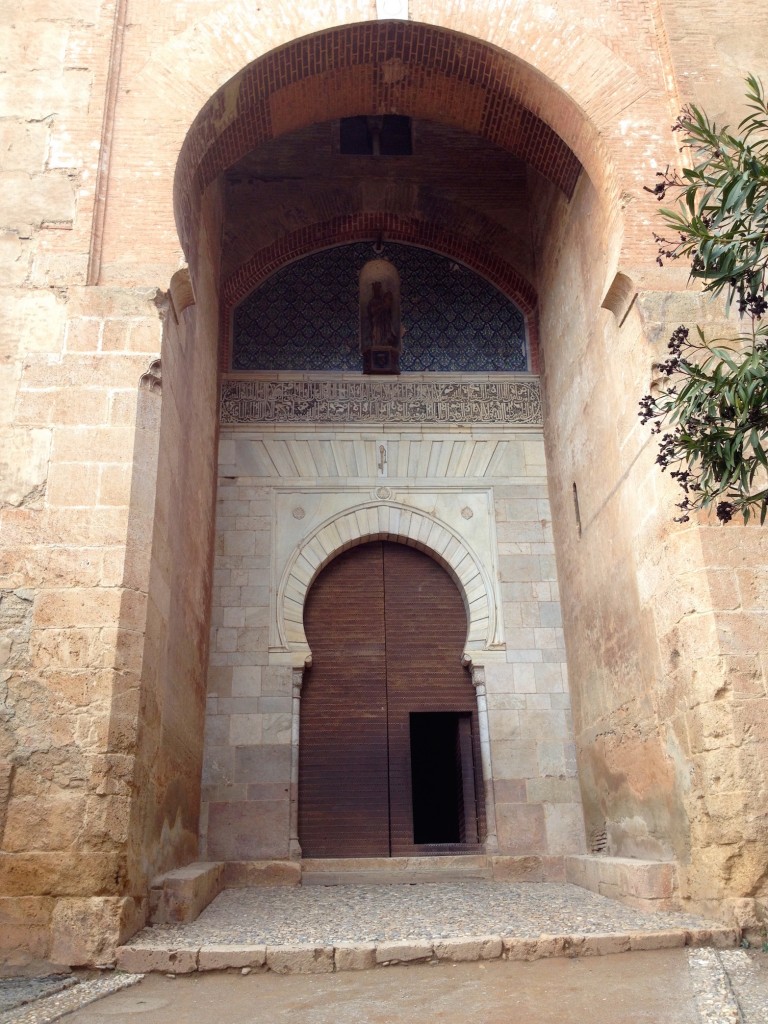
This is the Alhambra’s Justice Gate. I wonder if someone was being clever when they made a key-hole shaped door inside a key-hole shaped stone alcove. It’s like a key-hole within a key-hole within a key-hole.
To visit the Alhambra, it’s necessary to make a reservation days or weeks in advance. In fact, you are required to reserve a specific time slot at the Nazarid Palaces, and will not be admitted if you show up at the wrong time! They do this to keep things from getting too crowded, a move which I support fully. If you’re planning a visit, do your research and book your tickets before you go, or you may be disappointed once you arrive.
The Alhambra is absolutely packed full of history, but we found ourselves enjoying the beautiful buildings, the fantastic views, and the awesome gardens the most. Here’s a peek at some of our favorite sites at The Alhambra:
The Alcazaba
This part of the Alhambra is the oldest and most ruined part of the whole complex. It was the fort from which soldiers defended the Alhambra, and offered incredible views of the entire town of Granada! The spots with the best views definitely had me hoping that restoration efforts were going flawlessly on this part of the Alhambra…
Here are some of our favorite Alcazaba photos (click to enlarge):
- The Interior of the Alcazaba
- My Husband, the Archer on Top of the Alcazaba
- Four Flags! Blue is for the E.U., green and white for Andalucia, red and yellow for Spain, and red and green for Granada.
- Downtown Granada – You Can See the Cathedral in the Very Center.
The Palacios Nazaries (Nazarid Palaces)
The opulent Nazarid Palaces, built mostly in the 14th century, are the main attraction here at the Alhambra. They offer an interesting look back into Moorish civilization and culture. Throughout the palaces, there is a striking absence of figural images (forbidden by the Quran), but the rooms are not lacking in ornamentation. The ceilings, tilework, and fountains are amazingly elaborate and detailed.
- Beautiful elaborate ceiling in the Hall of the Abencerrajes. It is based on the eight-sided Muslim star.
- A fountain in the Courtyard of the Lions.
- The elaborate ceiling in the Grand Hall of the Ambassadors, which was the Sultan’s throne room.
- An awesome door in the Courtyard of the Myrtles.
- The Courtyard of the Myrtles. We learned that the wooden screens on the windows allowed cloistered women to look out without being clearly seen.
- Kevin’s checking out the ceiling in the Sultan’s throne room.
The room with the most interesting story was the Hall of the Abencerrajes. According to good ol’ Rick Steves, the name of this room comes from a legend of the 16th century. The father of Boabdil (the last Moorish Sultan, whose reign ended in surrender in 1492) took a new wife and wanted to disinherit the children of his first marriage, one of whom was Boabdil. To do this, the sultan killed nearly all of the pre-Boabdil Abencerraje family members, thinking this would pave the way for the son of his new wife to be the next sultan. The legend says that he stacked 36 Abencerraje heads in the fountain shown below. His scheme ultimately failed because Boabdil eventually did assume the throne. According to Rick, “bloody power struggles like this were the norm here in the Alhambra.” …And I thought it was rough that I had the smallest bedroom growing up. Sheesh!
The Gardens at the Alhambra
The gardens at the Alhambra are amazing (I imagine they’d be breathtaking in the Summertime). We roamed around the Partal Gardens, which are just next door to the Nazarid Palaces:
Then we made our way to the Generalife Gardens, which were the sultan’s vegetable and fruit orchards and his summer retreat. Let me save you some embarrassment if you ever visit the Alhambra: Generalife is pronounced heh-neh-raw-LEE-fay. I was WAY off.
- A Courtyard in the Generalife Gardens
- Generalife Gardens
Eventually, we got tired of all the opulence, and things got weird:
- Just a weirdo in the Generalife Gardens.
- Who let this crazy woman into the Alhambra?!
We need to work on our palace stamina.
Charles V’s Palace
While this is probably one of the least interesting buildings at the Alhambra complex, it’s worth a visit because it’s Free and it’s not crowded. The central outdoor area also has great acoustics, so you can make fun of all the random tourists who walk out to the center of the courtyard and clap their hands. (Don’t worry, we did it too.)
- And here’s Kevin, at Charles V’s Palace
- The Circular Courtyard in Charles V’s Palace
The Charles V Palace also has a free little museum with some really old artifacts on display, including some amazing intricately carved doors. You know I can’t resist a beautiful door…
Granada’s Politically Incorrect Cathedral
The Granada Cathedral is enormous, the second largest cathedral in Spain after Sevilla’s cathedral. It also has an enormously politically incorrect history. It was built over the remains of a mosque that was destroyed during the Inquisition, when Jews and Muslims were evicted or forced to convert to Catholicism. Even though there was better soil just 500 yards away that would’ve made for an easier spot to build the cathedral, the Christian conquerers refused to build there because they wanted to assert their power by destroying the mosque and building here on the sandy soil. Kind of a dick move, if you ask me.
Inside, there is even a statue of “St. James the Moor-Slayer” with his sword raised high and an armored Moor trampled under his horse’s hooves. Sigh.
In spite of its slightly distasteful history, the Cathedral is still fun to see, if for no other reason than it has a beautiful interior with some badass organ pipes:
- The Impressive Altar
- Check out these organ pipes!
- The organ pipes are unique in that some are horizontal rather than vertical.
- This is the door to the Royal Chapel. Looks like a big mouth waiting to eat anyone who passes through!
The Albayzin
The Albayzin is a cute little neighborhood perched on a hillside in Granada, and is perhaps Spain’s best old Moorish quarter, according to all the tourist books. It’s full of Moroccan tea shops and eateries, fun little cafes, narrow winding lanes, and hippies. There is no shortage here of young adults sporting dreadlocks and harem pants – I almost felt like we had teleported back to Thailand.
It’s a great neighborhood to explore on foot:
- A Moorish-style house in the Albayzin
- Fantastic views from the San Nicolas Viewpoint. Bill Clinton brought his family here in 1997.
- Some hippies at the Viewpoint. We sat and let the sound of guitar music and smell of weed waft over us while we enjoyed the view.
- A cute street in the Albayzin
Stop for a cup of tea in one of the Albayzin’s many tea shops. We managed to find the weirdest one of them all. The owner was French, but spoke fluent Spanish and English. It was decorated in Moorish style, but french music was playing, and we drank Indian Chai Tea. I think I got cultural whiplash!
- At least we got to warm up by the fire!
- Enjoying our Indian tea at the French-owned Moorish-themed tea shop in Spain
The Tapas Scene in Granada
Several towns in Spain are known for free tapas. Order a drink, get a free tapa! It’s magical. We tried a handful of spots around Granada, but knew immediately that Bodegas Casteñeda would be our fave. Aside from delicious drinks and food, they have two things that are essential at a good tapas bar:
- Thing #1: Cured Pork Hanging from the Ceiling
- Thing #2: A Bull Mounted on the Wall
They also have a variety of local vermouths on tap in wooden barrels. Kevin fell in love with the house Calicasas cocktail, a concoction of local vermouths, soda water, and magical deliciousness.
- Looks like quiche, right? WRONG! This is a “Tortilla Española”. Mind blown. Tortillas in Spain are something totally different than in Mexico.
- The house Calicasas Cocktail, with the vermouth barrels in the background.
- We got red wine our first visit, which came with a free tapa of egg salad with bread. (Warning: once you order food, your free tapas will stop! Stick to drinks at first!)
Other Food in Granada
Shawarma
One cannot subsist on free tapas alone, especially since you have to drink quite a bit to get enough food to fill you up. Lucky for us, Granada is also a hotbed of kebab, shawarma, and falafel eateries! It was like I had died and gone to heaven. We were only in Granada for 50 hours, but we had Shawarma no less than three times…
It almost lived up to the high expectations set by our favorite kebab spot in Seattle, Aladdin’s Gyrocery in the University District. Almost.
Desayunos
We also had our first traditional desayunos, or Spanish Breakfast. I already mentioned the confusion that is the Spanish Tortilla (see the tapas section above). Now I’m going to blow your mind. Think you know what a tostada is? Think again – in Spain it’s a breakfast food! A Tostada here is a long toasted sandwich roll that can come with butter and jam, olive oil and tomato, honey, or a number of other things.
For about 3 euros, you can get a tostada, cafe con leche (coffee with milk), and fresh squeezed orange juice!
- Nothing beats fresh squeezed orange juice in Spain. Nothing.
- Morning Coffees in Spain
- My Breakfast Tostada, with butter and orange marmalade.
To continue our food terminology confusion, we also ordered the Tortilla Española Bocadillo, which is essentially the potato quiche on a sandwich loaf. Because nothing says “healthy morning” like putting a starchy dish between two slices of bread, AMIRITE.
- Breakfast Carb Coma
- Tortilla Española Bocadillo
Our Biggest Mistake Yet: Chocolate and Churros
If you love greasy fried things dipped in fattening low quality chocolate, have I got something for you. Spain’s famous “Chocolate con Churros” dish.
Honestly, churros just belong in a theme park. I’m not sure who let them out into mainstream cafe culture here in Spain, but I am not a fan. The waiter was sure we would each want our own order but we insisted on sharing. We couldn’t even finish it between the two of us – I was afraid I’d soak up enough grease and slip off of my chair. Try them if you must, but set the bar low. I’m mentally adding churros into our big mistakes column.
